#li dongshan
Explore tagged Tumblr posts
Text

Unshakable Faith (2023)
Episode 18 Breakdown
Officer Tongbin interrogates the messenger but he admits to only passing letters for money and isn't a spy. Security Captain Li threatens Lai Guangrun now that he is exposed, and is told that his sweetheart is a spy and that there was never going to be money or passports arranged for him, but when Security Captain Li threatens to destroy his paintings, Lai Guangrun offers up his own hidden money and fake ID from the temple on Dongshan mountain.
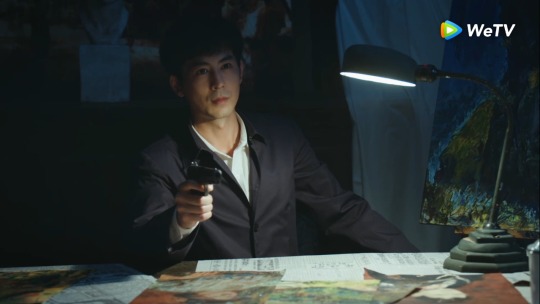
Lai Guangrun tells Dr Bai that Security Captain Li will be at the temple and to kill him as a final test from Snow Wolf. Dr Bai dismisses him, but reconsiders after he is reminded of the target on Nurse Bai. On Dongshan mountain Dr Bai watches as Officer Hongmei and the police team get to the temple first and exchange fire with Security Captain Li. After running out of bullets and fleeing from the back door, he eventually surrenders after Officer Hongmei confirms that the sweetheart he is trying to save is the spy she met in Hong Kong.
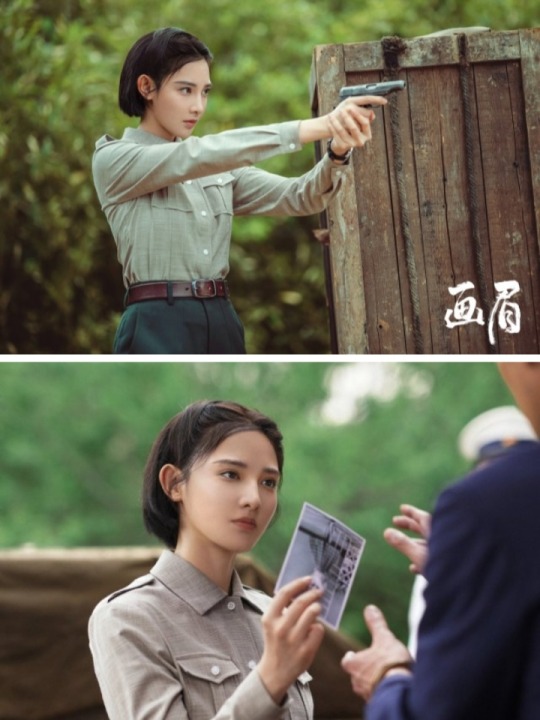
On the morning of the pool construction, Expert Chief Chu is given his medicine that Nurse Bai makes, but soon after taking it he collapses and is rushed to the hospital. Awake but weak, he appoints Ji Danyang as temporary Commander in Chief for the pool construction.
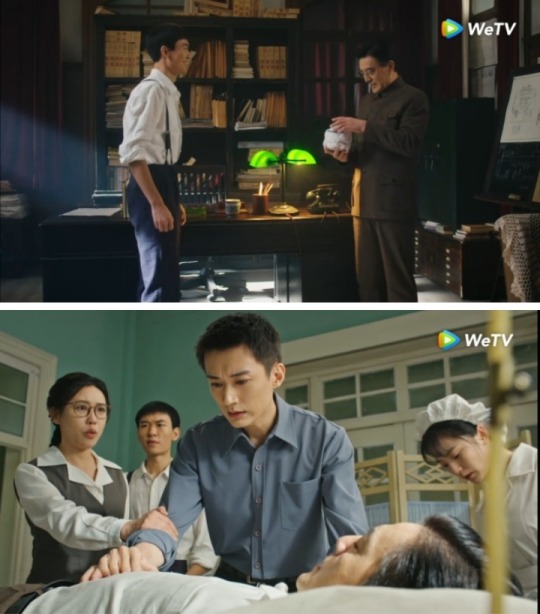
At the construction site the experts and labourers gather as Factory Chief Han and Ji Danyang rally their spirits and order the construction to begin. In the middle of mixing the concrete, Master Welder Niu brings it to their attention that it's setting too quickly, and it is soon revealed that a silicate has been added to the current concrete mix. Ji Danyang gives the order to start over and calls in more cement to be delivered from town to make sure they have enough for the pool. Lai Guangrun comes in on one of the trucks delivering concrete, but just observes.
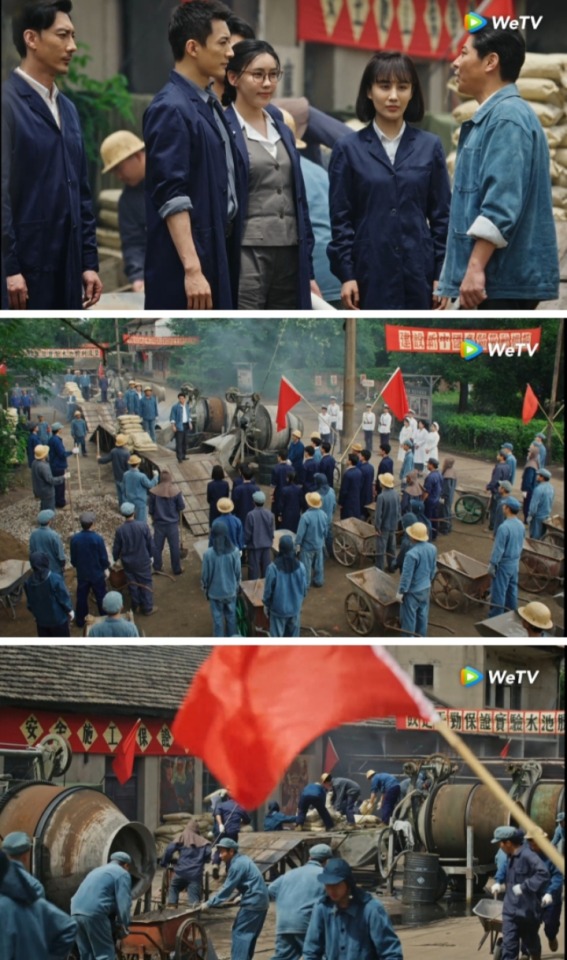
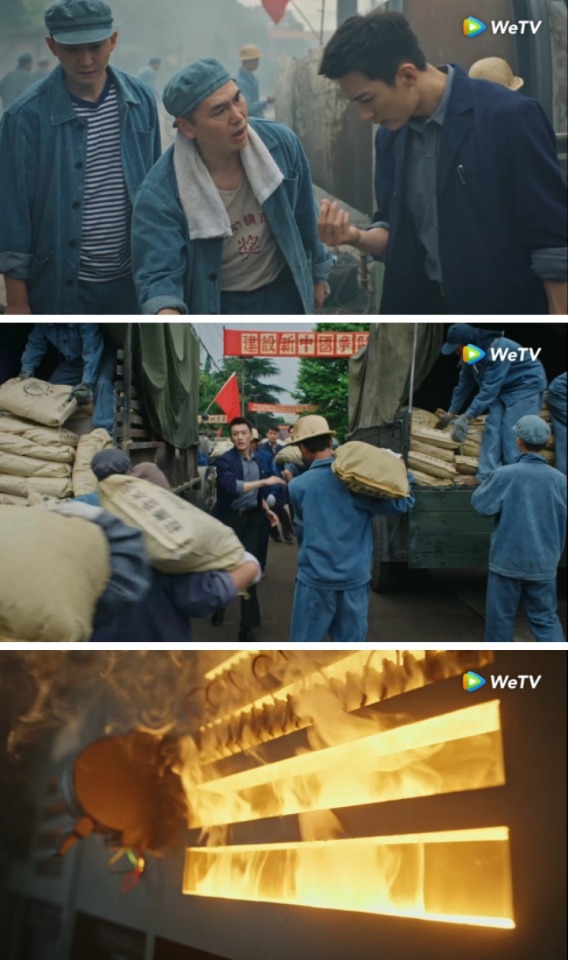
When a fire breaks out in one of the machines at the power station, all power to the site shuts off and their cement mixers stop, and it will take too long to get generators up and running so they rally to finish mixing the last of the concrete by hand.

Factory Chief Han and Ji Danyang announce the successful completion of the pool and the experts and all construction workers celebrate while Nurse Bai rushes to tend to their injuries.
The police team now have Lai Guangrun's full identity but miss catching him at the construction site, so follow him into town. He stops to see Dr Bai who confirms that Security Captain Li was taken away by the police. Even knowing that he's been compromised, Lai Guangrun still doesn't reveal to Dr Bai who Snow Wolf is. The police team eventually corner him at the art gallery in front of his painting.

........................................................
I always feel like Lai Guangrun is talking out of his butt whenever he mentions instructions from Snow Wolf because we've never seen him recieve any and they always seem to be self-serving requests.
Uh oh, who messed with the Chief's medicine to implicate Nurse Bai??? because come on, everyone knows that she's been making that medicine so she'd be stupid to sabotage it herself.
I had actually thought a couple of episodes ago that whatever they were planning on doing to sabotage the pool, the discreetest way would be to mess with the concrete proportions, because how do you track that many bags of concrete mix? And that's is exactly what they did!
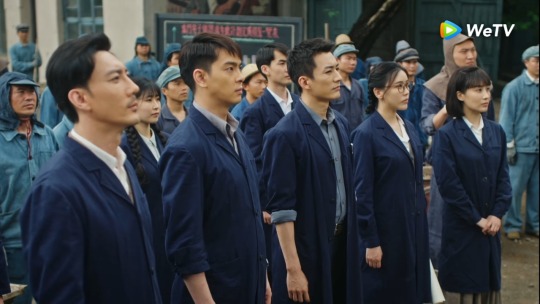
Our math man proves that he can keep his cool under pressure and leads the team to success, that'll look good on his resume. I really like the dark blue lab coats the experts have. I do find it amusing how big and glorious the music is for what is just the pouring of concrete, but hey, it makes it entertaining.

And some more queering of the AI subtitles, featuring the arrested messenger.
3 notes
·
View notes
Photo


《专属爱称》(Exclusive Love) | 木及少年 Muji Shaonian (audio)
#muji shaonian#idolproducernet#zhang dayuan#wang yilong#su er#li mingxuan#yang boyi#lin yadong#li dongshan#exclusive love#lyrics#idk if i have a lyrics tag lmao
14 notes
·
View notes
Text
The Thunder Concluding Thoughts
So I finished watching The Thunder (《破冰行动》) in about a week. I have to say this drama is definitely NOT the disappointment that people say it is. It's pretty good. I’m recommending it to the cdrama fans out there who like crime dramas with a dark and serious story. Just be aware that it does not have an official English subtitle or fansubs (so far as I know).
Anyway, this post will be very very very long (4500+ words, in fact), filled with spoilers and my opinions. If you are planning on watching, please skip this post. I’m hiding everything else so this post won’t be hogging space on anyone’s dashboard.
Storytelling
Considering the story is about an operation to raid a whole village involved in drug trafficking (inspired by real events of Boshe village/博社村) and bring the criminals to justice, it is bound to be dark and gritty, filled with tragedies. But it’s also surprisingly not very gruesome.
The entire plot is separated into many different storylines, which merge and intersect with each other at different times throughout the drama. Here’s the main four:
The first (main) one follows the main character Li Fei/李飞 as he tries to avenge his friend and partner’s murder by finding evidence to bring down the big bad, with help from Chen Ke/陈珂, Ma Wen/马雯, and numerous others.
The second one follows Li Weimin/李维民 and Zhao Jialiang/赵嘉良 (real name Li Jianzhong/李建中), who are the two most experienced people on the law enforcement side in dealing with drug traffickers. Since the former is a director and the latter is an informant/undercover agent who reports directly to the former, their individual story lines only merged after the midpoint.
The third one follows the third branch of the Lin clan (mostly Lin Zonghui/林宗辉) and how it was half destroyed by the main branch and second branch, which culminates in Lin Zonghui’s decision to turn informant.
The fourth one follows Ma Yunbo/马云波, the Deputy Director of Dongshan City Police Department, as he slowly realizes the error of his ways and tries to earn his redemption.
There are other more minor storylines, but I won’t be listing them all out since this isn’t a wiki article lol. Anyway there are a lot of different storylines in this drama, and the ways in which they intersect are interesting, though rather predictable. These intersections also roughly separate out the drama into a few sections, which allows the drama to have a good pacing overall.
However, the way this drama establishes the backgrounds of the characters and storylines is slightly problematic, since nearly all of it is done with flashback sequences. Flashback sequences are a staple in crime dramas of any kind, because it satisfies the viewers’ curiosity, but the constant sudden scene changes were disorienting and broke the flow of storytelling. I guess flashbacks are an easy way to stick to the “show, don’t tell” rule, but I do think some flashback sequences can be told by characters in the “present time”, and this may even help to flesh out those characters more, depending on how they “tell” viewers about the past.
Another thing that was noticeable was amount of closeup shots used, especially in the interrogation scenes in the first half. They do give actors the opportunity to use micro expressions and their eyes to convey the characters’ true emotions. On the downside.....too many closeup shots tend to make me uncomfortable, so......I guess I both liked it and disliked it.
-----(this is the divider because I don’t know html lol)----------
Characters and Acting
Hoooo boy, where to start. I would say this is the best thing about the drama overall. The characters are what really drove me to sacrifice sleep just to binge the entire thing in a week. These characters aren’t exactly unique in the genre, but they made up the heart of the drama, no questions about that.
I guess I’ll start with the main cast here and ramble talk about both the character and the portrayal together. Because this drama had a rough “cops vs. criminals” setup, the main cast was sort of “locked in” to specific character archetypes, and that left little space for the actors themselves to perform freely. Despite this, most of the main cast were able to do pretty well:
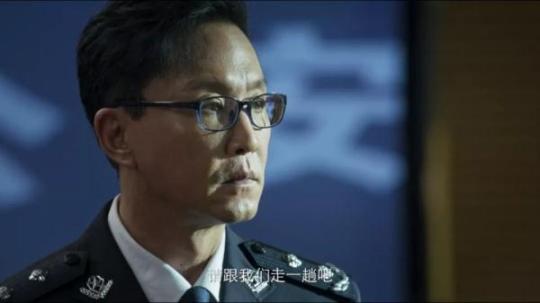
Li Weimin/李维民 (portrayed by Wu Gang/吴刚):
In my opinion, Li Weimin was the best portrayed character out of the main cast. Some people said that Wu Gang overacted in certain scenes where Li Weimin got upset or displayed his eccentric side, but to be honest, I don’t think it’s bad at all. I'm pretty sure the dramatic approach is due to Wu Gang's acting style and training, since he was a theater actor first, and transitioned to an actor for TV/cinema later in his career. Wu Gang’s constant little physical movements-- whether it was fidgeting with something or playing hopscotch with his feet--gave Li Weimin a certain air of eccentricity that I liked. Li Weimin wasn’t without his faults, of course, he’s rather quick-tempered and was too eager to see results, which Wu Gang illustrated with his dramatic line delivery in the scene where he was furious at Ma Yunbo for not ending all drug trafficking in Dongshan city in 3 years. The most noticeable flaws in Wu Gang’s performance (to me) was his salute (seriously can he just straighten that wrist lol) and his voice, because his voice had that smooth quality of a documentary narration, so occasionally it felt like he’s just flat out describing things. Not that I’m complaining, his voice is very pleasing to the ear, but it just doesn’t fit the scene sometimes. His best scenes for me were: 1) when he stubbornly refused Li Fei’s offer to buy a hoodie for him because it made him look too young (can relate because I have an older relative who’s exactly like that lol); 2) when he was questioning Cai Yongqiang while nonchalantly playing with his shoelaces; 3) when he had a sorrowful inner monologue about how he would be all alone if both Li Fei and Li Jianzhong died like all of his other comrades; and 4) when he suffered the loss of his friend during the climax, and had to try hard to stop himself from losing control to grief before the operation was over, because he was the frontline commander and was thus responsible for all of the agents.
-------------------------------------------------
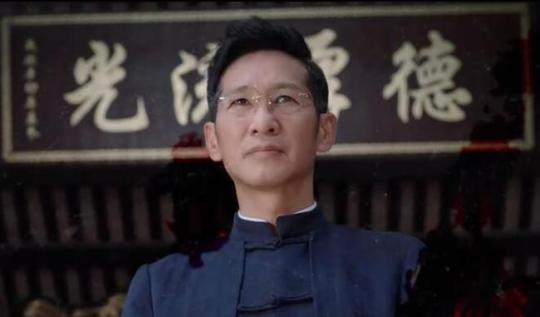
Lin Yaodong/林耀东 (portrayed by Wang Jinsong/王劲松):
Wang Jinsong never disappointed in any role he’s been in, really. He’s the actor who played Marquis Yan Que in Nirvana in Fire and the unforgettable eunuch Yang Jinshui in Ming Dynasty in 1566. I don’t think Lin Yaodong was his best performance (the best had to be Yang Jinshui in Ming Dynasty in 1566, hands down) but it was still very good. The way Wang Jinsong played Lin Yaodong (especially the even line delivery and the deliberate body movements) gave him a dignified air befitting a powerful elder. It was also thanks to Wang Jinsong’s great performance that I realized what Lin Yaodong was: he wasn’t just a drug lord, he was a hypocrite. He kept stressing the importance of clan and family, yet he was the one of the people responsible for deaths of half the third branch family; he kept reiterating that he brought wealth to Tazhai village, but what he did was slowly eroding the villagers’ motivation to do any honest work; he kept emphasizing the need to protect the Lin clan, yet the drug trafficking he introduced to the village literally ruined the young people of the village. To Lin Yaodong, the clan was nothing but a means to an end that benefits him, otherwise he would not be exclusively using members of the second branch family to do all the dirty work.
-------------------------------------------------
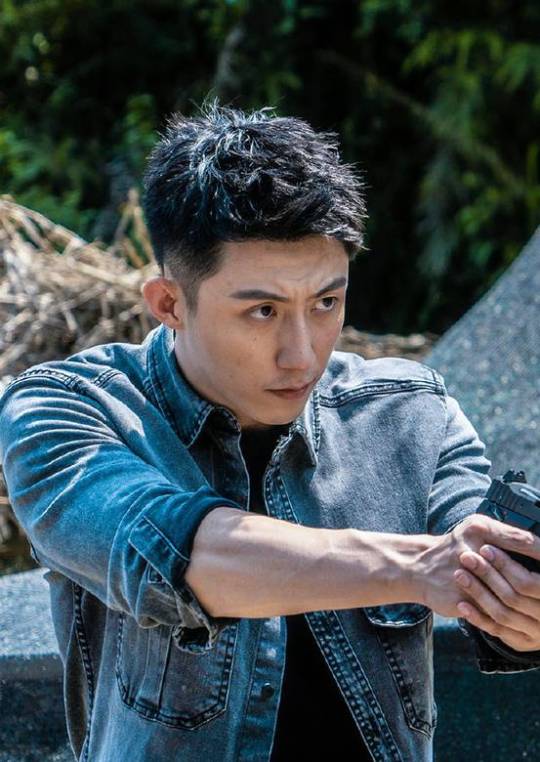
Li Fei/李飞 (portrayed by Huang Jingyu/黄��瑜):
Li Fei is apparently quite controversial despite being the undisputed main character of the show. A lot of people think his character was “unnecessary”, “badly written”, and there were even gossip floating around about how the character was just a way to “get Huang Jingyu onboard”. Seeing all of those comments made me pretty confused, because I thought Huang Jingyu did a pretty good job for someone who didn’t have a lot of experience in acting. Before anyone says though, I am not a Huang Jingyu fan, just want to get that out of the way first. This is literally the first drama I’ve seen him in. I think his portrayal was easier for younger audiences (by that I mean early to mid 20s viewers like me) to relate to. Li Fei’s outpour of grief upon seeing his partner getting murdered right in front of him, his clever interrogation of drug dealers, his goofy little tricks that outsmarted the criminals, his dejected disregard for his own life when he expressed desire to go to Tazhai village alone; his shock and anguished headbanging on the car window upon seeing his father getting murdered (also right in front of him); and finally his emotional numbness while saying goodbye to the father he never got a chance to know.......all of it was done convincingly. I’ve laughed with him, I’ve cried (a little) with him, and for me that’s good enough. There were other comments about how Li Fei was too hot-headed to the extent of being frustrating, but I think that’s just how the character was meant to be (Li Fei was supposed to be in his early 20s). That said, I do think Huang Jingyu needs work on two things: enunciation and facial expressions. He did well when a scene required him to convey a particular emotion, but he wasn’t able to convey a mixture of different emotions (I will give an example later). If he could make improvements in these two areas, I’m sure he would become a much better actor.
-------------------------------------------------
Now for memorable supporting characters. In my honest opinion, the supporting characters are the ones who really made this drama good. These actors’ performances regularly steal the limelight away from the main cast.
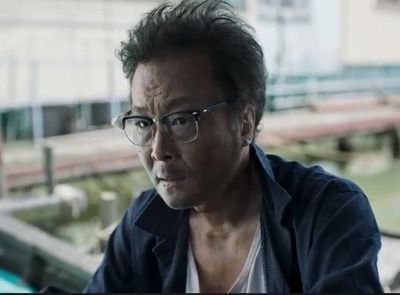
Lin Shuibo/林水伯 (portrayed by Qian Bo/钱波):
Lin Shuibo was a once-respected teacher who became addicted in a desperate attempt to save his addict son, and was thrown out of Tazhai village for being an addict after his son died from overdose (was revealed to be murder). Later he devoted his life to take care of a homeless drug addict teen he met on the streets. I have to say, Lin Shuibo was the first supporting character that really caught my attention and made me cry. Qian Bo nailed this character. The dejected slump of his shoulders, the hopelessness and anxiety in his darting eyes, weeping for his son with tears leaving tracks on his dirty face, explaining that he tried drugs so he could set an example of successful rehab for his son......this character may not be more than just a plot device, but he actually tore at my heart. Teaching was a highly respected profession in China, so for a teacher to fall into addiction and homelessness, resort to picking garbage for a living, that’s literally falling out of paradise and straight into hell. Despite this, Lin Shuibo never lost his kindness or capability to love, and that's what saved him in the end.
-------------------------------------------------
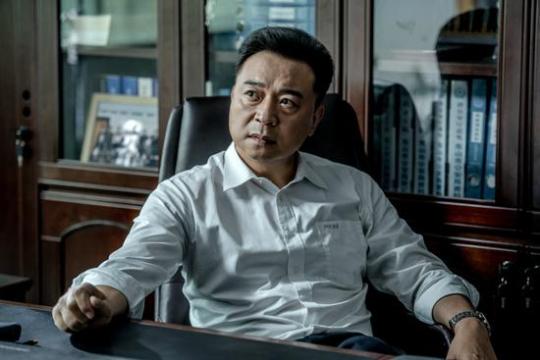
Ma Yunbo/马云波 (portrayed by Zhang Xilin/张晞临):
Originally I was going to put Lin Shengwu as the second of the memorable supporting characters, but then Ma Yunbo’s best scenes happened and made me change my mind. Ma Yunbo was a pretty interesting and complex character, since he started the drama as a “good guy”, but as the story went on, it was revealed that he was the corrupted cop. Then as the viewer learned more about the character, we started to see that he was not simply in it for the money like Chen Guangrong (another corrupted cop). He was more or less coerced into it by Lin Yaodong because of his wife’s debilitating chronic pain, which was in turn the consequence of taking a shotgun blast meant for him. Before the start of the story, the pain had grown too much for his wife to bear, so she turned to heroin for relief, and Lin Yaodong took the opportunity to become her supplier. This was a major problem for Ma Yunbo, since he was seen as a hero who served justice to drug traffickers and was the pride of his shifu Li Weimin. Here, both the drama and many viewers say that Ma Yunbo’s greatest weakness was pride, and that was why he became corrupted, but I disagree. I don’t think Ma Yunbo’s most important trait was pride, I think it was love. I think he loved his wife deeply and that was the only reason why he started dealing with Lin Yaodong. If he was as prideful as people say, I think he might refuse his wife's request instead. In fact, his wife's suicide was what finally unshackled him from his constant internal conflict. Thus, his internal conflict was really a three way conflict of pride vs. love vs. doing what’s right. Zhang Xilin’s approach to such a complex character was subtle, conveying most of the internal conflict with facial expressions. The way he could seem to make his face age instantly with an expression was brilliant.
-------------------------------------------------
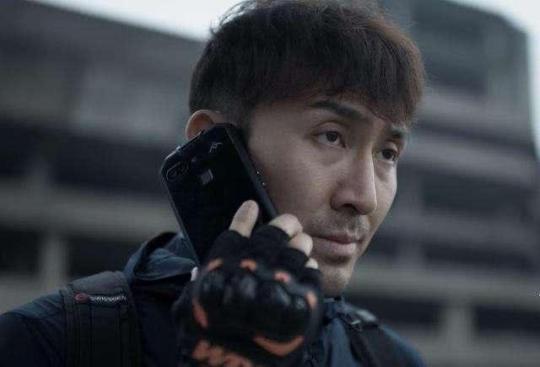
Lin Shengwu/林胜武 (portrayed by Zhao Xuan/赵煊):
First, this character was pretty much a plot device. Lin Shengwu really only served 3 purposes in the story: to delay the video evidence from getting to Li Fei until the time is right (to manage pacing); to cement the people from the main branch and second branch of the Lin clan as the big bads of the drama; and to serve as a reason for Lin Zonghui’s eventual decision to become an informant. The first one is pretty straightforward, but the second and third purposes require acting skills to achieve, because the audience needs to be able to pity Lin Shengwu. And boy did Zhao Xuan deliver. Lin Shengwu’s death was the second time I got emotional while watching this drama (first time was that scene of Lin Shuibo I mentioned). The scene where a wounded Lin Shengwu called asking Lin Zonghui to take care of his children and telling him “if there’s a next life, you will still be my Uncle Hui” with a quivering voice just straight up broke my heart. Lin Shengwu was certainly not a good guy (he was the one who destroyed the evidence at the very beginning, and probably participated in drug dealing), but he really did love his family and tried to protect them, unlike Lin Yaodong. Unfortunately, his family was already in the grips of the devil from the very start, so he was destined to lose everything.
-------------------------------------------------
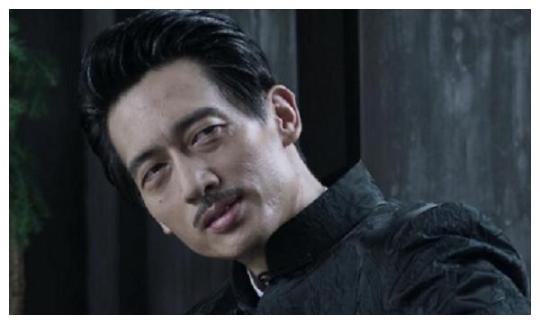
Lin Zonghui/林宗辉 (portrayed by Gong Lei/公磊)
Of the two most conflicted characters in the drama, one is Ma Yunbo, and the other is definitely Lin Zonghui. As the family head of the third branch in the Lin clan, he was forced to watch as members of his family died at the hands of his relatives, but because he tried to stay out of trouble, he could neither say nor do anything about it. Plus, like most other members of the third branch family, he was a person who actually cared about the clan. As time went on and more people close to him died, his internal conflict changed from self preservation vs. avenging his family to protecting the Lin clan vs. doing what’s right. I don’t feel that his death at the end was really necessary to the plot (it was probably done to further expose Lin Yaodong’s hypocrisy), but given everything his cousins Lin Yaodong and Lin Yaohua have done, he’s more than justified to confront them. Acting-wise, like Zhang Xilin, Gong Lei also conveyed Lin Zonghui’s internal conflict mostly with facial expressions and body movements. There was always a slump in his shoulders, and the way his eyes alternate between looking powerless and burning with fury was really great. However, I didn’t quite like his approach to the climactic confrontation scenes, because I felt that he was a little overdramatic there, especially the line delivery, which briefly broke my immersion.
-------------------------------------------------
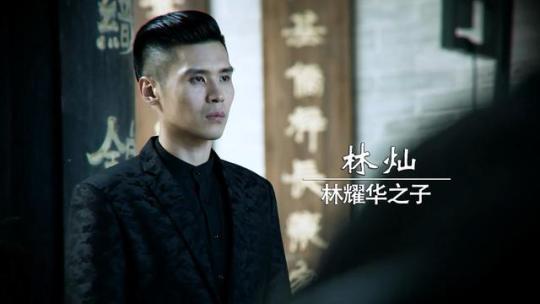
Lin Can/林灿 (portrayed by Song Hanhuan/宋撼寰)
If I’m only talking about the acting, then I might rank Song Hanhuan’s performance as the second best in the supporting cast, right behind Zhang Xilin. I do admit that I’m rather biased towards the good guys and complex characters, but no matter which way you cut it, Lin Can deserves a mention. The first time I noticed him was very late in the story, right at the climax where Lin Can and Li Fei were both threatening to kill the other’s father. Huang Jingyu was not able to convey Li Fei’s emotions well enough (again, his facial expression needs work), but in contrast, Song Hanhuan really conveyed a wide range of emotions just in a few seconds, from fear to desperation to even a little hint of regret. In fact, he looked as if he was on the verge of total mental breakdown. That scene prompted me to go back and revisit his other scenes after I finished the drama, and that was when I realized Lin Can actually cried a little bit when Lin Shengwu died. At the time when I first saw the scene, I thought Lin Can was just shocked to see Lin Shengwu commit suicide, but now, thinking back on Lin Can’s lines about how he and Lin Shengwu grew up together as playmates, I think Lin Can actually felt sad there, however briefly that emotion lasted. That single tear was a very simple (and easy to miss!) gesture that added a whole other dimension to what would otherwise be a rather flat henchman character.
-------------------------------------------------
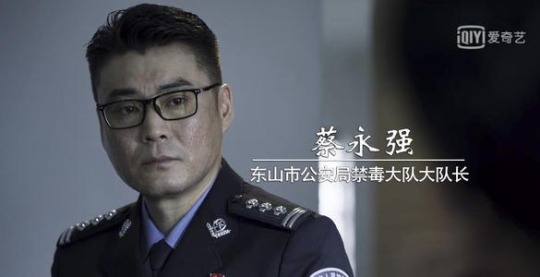
Cai Yongqiang/蔡永强 (portrayed by Tang Xu/唐旭)
I do wish the writers could have given Cai Yongqiang more scenes, because the few scenes he appeared in were all great. The scenes where Li Weimin questioned Cai Yongqiang were the among the best in the entire drama. At the time in the story, Cai Yongqiang and Li Weimin didn’t trust each other (although it was later revealed that they were both good guys), and were both trying to see if the other person was corrupted. This led to a few interesting exchanges between them filled with quotable lines, but the best part has to be Cai Yongqiang’s answer to Li Weimin’s last question about Cai Yongqiang’s evaluation of himself and the drug control division. The way Tang Xu delivered these lines (his voice was quivering with emotion almost the whole time) was really touching:
“For drug control officers like us, there’s two dangers. The first is mortal danger, because our opponents are people who would bid their lives for money. It’s not just our own lives in danger, but also the lives of our partners, our families”......”The second is temptation. Money making is easy for drug traffickers. To save their own skins, they would try their damnedest to bribe us. Tens of thousands (yuan), hundreds of thousands, even a few million at a time. For them, a few million is the profit they earn in a few days, but for young officers who earn a measly 2-3k per month and has to pay mortgages and raise children with it, this contrast is too much. Not being tempted is impossible. But every officer in my division has overcame the temptation, and for that, I think they are all terrific. All of them are admirable.”.....”When you’ve been on the force for a while, you start to develop a deeper understanding of human nature. A lot of bizarre things happen every day. Sometimes, not being able to see them is a real blessing.”
-------------------------------------------------
Thoughts on Theme
The message of a story like this is obviously “drugs are bad, kids, it ain’t worth it”, but I would say the theme is conveyed pretty well here, because the story gives us all of these characters who are examples (some of which I’m sure are inspired by experiences of real people) of what may happen once you start to do/sell/make such addictive controlled/prohibited substances as crystal meth.
First is the effects of addiction on users. This part is pretty obvious, and we have many examples throughout, though there were a few different reasons for each of them coming into contact with the drug in the first place. Zaizai (Lin Shuibo’s son) was a representation of teenagers who became addicted because it’s seen as “cool” and “everyone was doing it”. Wuzai became a drug dealer, because it gave him better profits than working entry-level jobs, and eventually he became an addict as well. Then there’s women who became addicted due to severe emotional stress, like Yang Liu and Cai Xiaoling (it was hinted that her addiction may have been a major factor in her miscarriage). Of these people, Lin Shuibo was a special case, as he apparently tried drugs out of a desire to help his son quit, but became addicted as well. Out of these characters, most died either due to overdose, continued drug-abuse, or murder (from being in close contact with dangerous criminals). The only two who got a good ending were Lin Shuibo and Wuzai, since both were able to quit and earn an honest living. Of course, this could not happen if they weren’t supporting each other through the rehab process.
Second is another type of effect that the drugs had on those who made/sold them, and that is greed. The reason Lin Yaodong had so much power over everyone else in the village was because he could give them the money they desired. According to Lin Yaodong, the village used to be dirt poor, but ever since he led the villagers to manufacture crystal meth, everyone there quickly became wealthy, and all that easy money gave rise to greed. Lin Yaodong then used a combination of his own status in the clan and the greed of the villagers to control them, thus satisfying his own lust for power:
“I know whether the people of Tazhai have had a change of heart just from sitting in this car. At this hour, adults should be leaving work, and children should be leaving school, all of them going home, even the elderly lady selling produce. The fact that our car can drive forward so smoothly on this narrow road means the people of Tazhai haven’t had any change of heart.”
This lust for power was also the reason he described his goal as to build the biggest, most beautiful ancestral shrine for the Lin clan. He saw the ancestral shrine as the seat and symbol of his power, and this was apparent when the three family heads gathered there like a panel of judges at a court to announce Lin Shengwen’s punishment.
Lin Yaodong’s image as the great provider for the village then began to corrupt the younger generations of the village as well, since they all looked up to Lin Yaodong and hoped to become his henchmen. This began to destroy the real familial bonds between people in the clan and replaced it with simple trust and blind loyalty, which effectively turned the clan into a sort of mafia. Even though almost everyone in the main branch and second branch still talked about what’s good for the clan and seemingly tried to contribute in their own ways, when one compared what these characters say versus what they do, then their true motivations began to show. There’s Lin Yaohua and his two sons, Lin Can and Lin Tianhao, who would maim, torture, and kill members of their own clan just because trust was broken. For them, there’s not much real familial bond to speak of, there’s only loyalty to “Uncle Dong” (Lin Yaodong) and "Uncle Hua” (Lin Yaohua). They may still call each other “brothers”, “uncles”, but these words contain more indications of power than affection. At the same time, the blind loyalty eroded away at the humanity of the younger members of the Lin clan, and this was perfectly demonstrated with Lin Can’s sudden decision to kill Zhao Jialiang at the climax, an act that disturbed even Lin Yaodong.
-------------------------------------------------
My Criticisms & Other Thoughts
Finally, criticisms.
I agree with other people that the writing for the 3rd and 2nd to last episodes (ep 46 & 47) did not seem to have the same quality of writing as earlier episodes, but I am of the opinion that it wasn’t a huge problem. What was a problem was the overacting from some actors at the climax. Again, it wasn’t that bad, but it was enough to briefly break my suspension of disbelief. Also, the last episode was among the best in the drama.
About the complaint that Zhao Jialiang’s death was unnecessary and forced into the script, I disagree. I don’t think Zhao Jialiang ever went into Tazhai village expecting to come out alive in the first place. Dude’s there to avenge his wife and that was it. On the other hand, his death also highlights how far Lin Can had fallen. Point is, his death might feel abrupt, but it does make sense if you think about it.
About the “plot holes”. I agree with one comment I’ve seen that many of the “plot holes” people pointed out were actually explained in later episodes. They probably commented pretty early on in the drama, so that’s why certain things seemed like plot holes to them.
As for Chen Ke, again, I do agree that she may be the weakest character in the drama, but unlike some have said, I don’t think it was 100% on the actor, and I’m pretty sure it had something to do with the writing. This drama clearly aimed to be realistic, so almost all of the characters expressed some sort of shock upon seeing another character get wounded/killed, and I think that’s the reason why Chen Ke panicked when Ma Wen got blasted with a shotgun. Chen Ke was just a normal civilian who happened to be a nurse, she’s not a nurse in the army or something, of course she would be shocked if the event took place in front of her eyes. Seeing the aftermath and witnessing the event first hand are completely different things.
Everything else about the drama, cinematography, music, etc....were all ok. Nothing bad, but also nothing notable. I did like the theme song though.
(Bonus little rant about all those cdrama scenes where a character is severely ill or wounded or killed..........can we stop having all of them spit out mouthfuls of blood???? When a character got stabbed in the guts or shot through the heart, they should NOT be spitting blood, unless they are also wounded in the lungs or stomach or mouth, then ok fine, but it’s still more of a situation of coughing up blood. Seriously. When Zhao Jialiang got shot through the heart and immediately started spitting blood, I actually burst out laughing. This silly shit needs to change.)
And that is it! All in all I liked The Thunder, and I may watch it again later.
1 note
·
View note
Text
Five Days in Taipingshan, Sanxing / Dongshan, Dong’Ao, And Mingchi
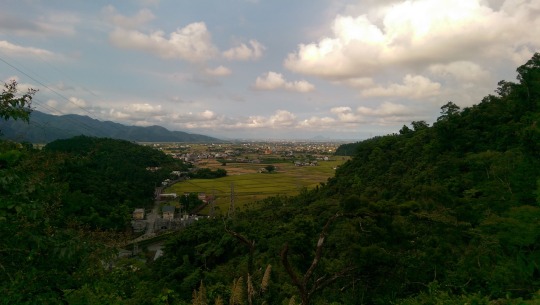
In mid-July, EVA and I took some time off work for a long overdue summer holiday away from the seat and humidity of Taipei. Our destination was one of our favourite places in Taiwan: the Yilan delta, known up north as ‘Taipei’s backyard’. Our goal was to spend a few days in the Taipingshan area up in the mountains amongst the ferns, firs, sea of clouds, and cool breezes. This is a long post so i’ve broken it down by day so readers can return to complete each section at their leisure.
DAY 1 - LUODONG TO CHILAN
Setting off from Nanggang Station amidst a pretty terrifying thunderstorm hammering the neighbourhood, we caught the Taroko Express to Luodong and arrived promptly about an hour later in the searing afternoon heat. We hired a scooter and set off on 7丙 to the Ch’i-lan Forest Amusement Field (棲蘭森林遊樂區停車場) which sits roughly at the entrance to the Taipingshan National Forest Recreation Area (太平山國家森林遊樂區). The header image to this post was taken up the hill from Tiansongpi Train Station (天送埤火車站) looking back towards Sanxing (三星鄉).
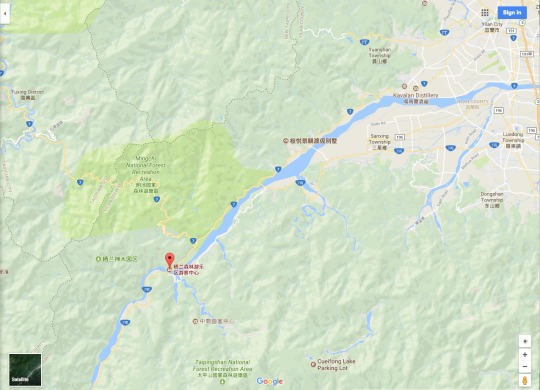
Our bike for the trip, a Yamaha 125 cc which is basically the newer version of my own trusty steed back home ...
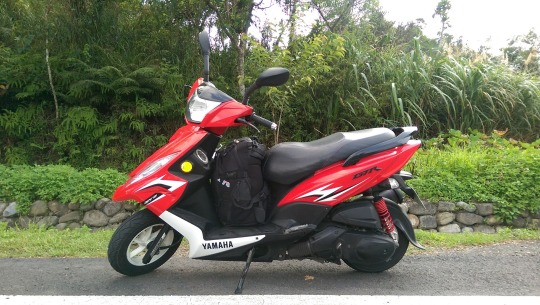
A little side story here and a note of caution. As we were riding up Highway 7 and we had noticed that watermelons seemed to be a local speciality, I casually remarked that “I don’t like watermelons” and that instant I was smacked harshly in the face by some hard bodied fly. My lesson learned, from that moment, like the Ancient Mariner, I made sure not to slander the local produce or wildlife anymore!
When we arrived at Ch’i-lan we checked in, walked a small trail up around the back of the resort for an hour (those interested can also visit one of CKS’ summer houses (蔣公行館) that sits in the resort behind the main building), and then set off to Tuchang Railway Museum. According to the Government website Tuchang was the unloading point for the Taipingshan logging industry ...
The gate of Taipingshan. Its name「Tuchang」-is a jargon in forestry which means the place where timber were unloaded and piled up. It used to be the starting point of forest railway. The parking lot next to it used to be the site for unloading timber. The old Tuchang Station is renovated and transformed into a memorial park of forest railway station including surrounding areas. A vintage locomotive carrying timber and a railway carriage are displayed here. Visitors can imagine their good old days from their well-kept appearances.
Not sure about that ‘good old days though given the extremely harsh and dangerous working conditions and the fact that the industry was based around despoiling the environment by stripping it of its oldest and largest trees. Nevertheless, as a train fan, it was nice to walk around the old engines and carriages ...
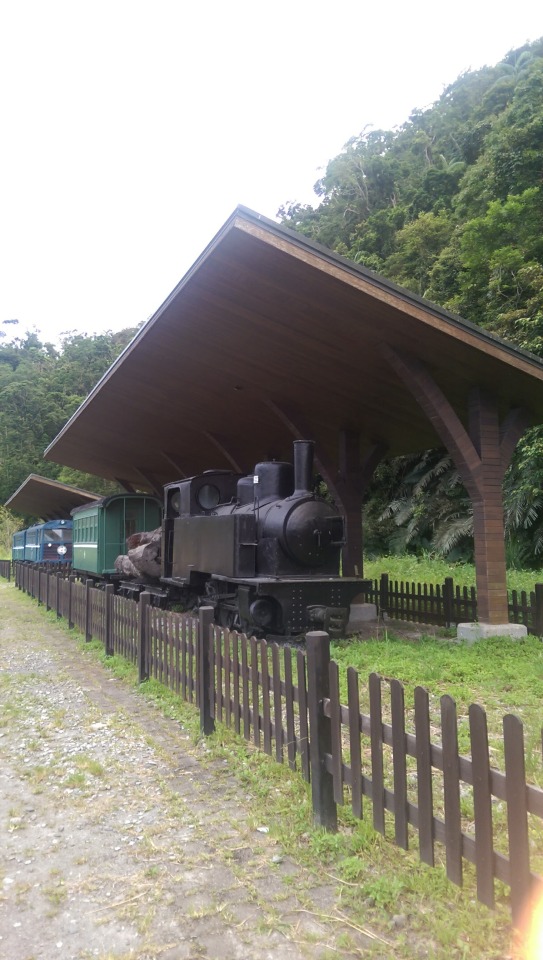
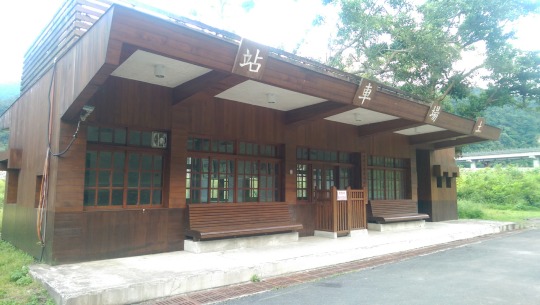
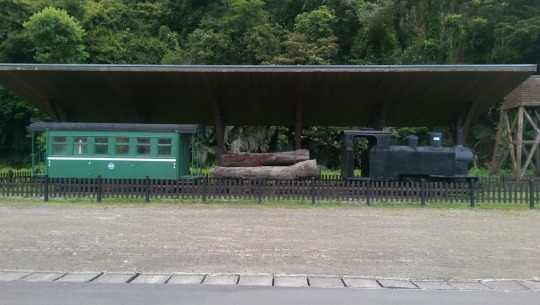

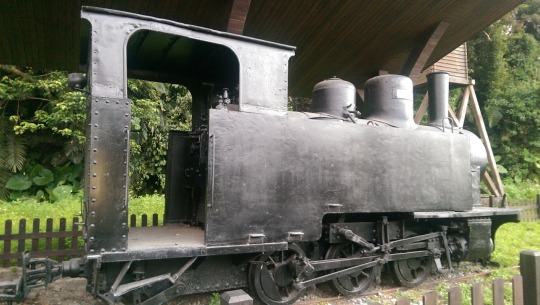
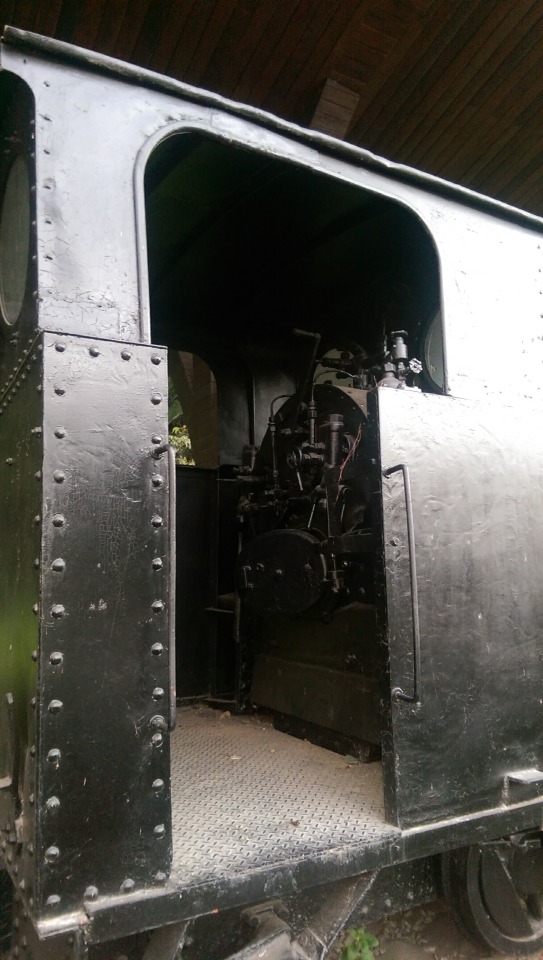
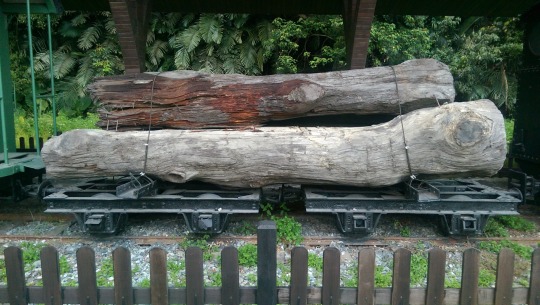

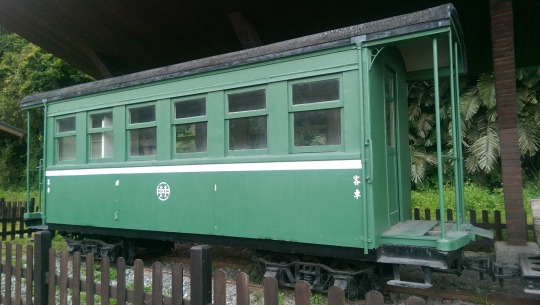
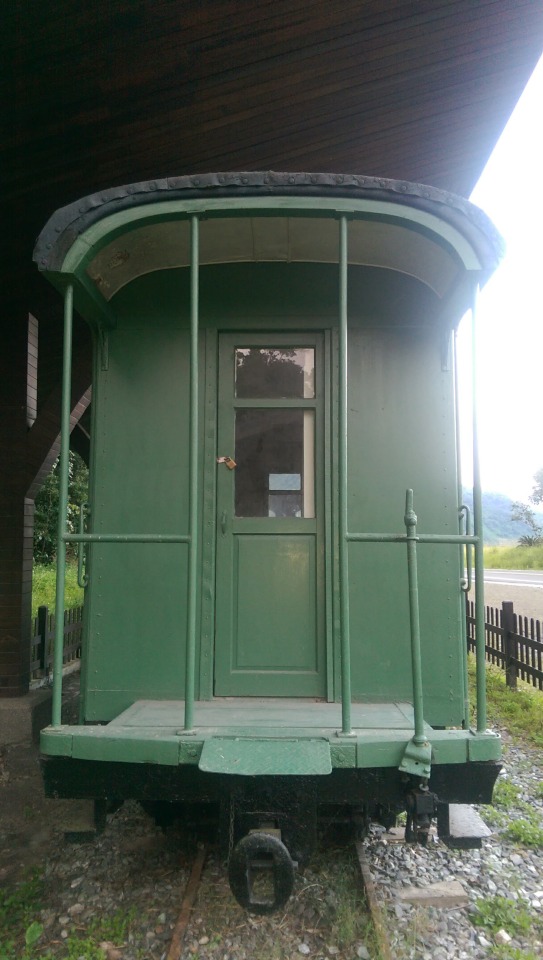
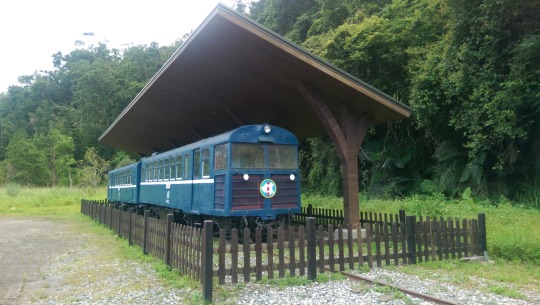
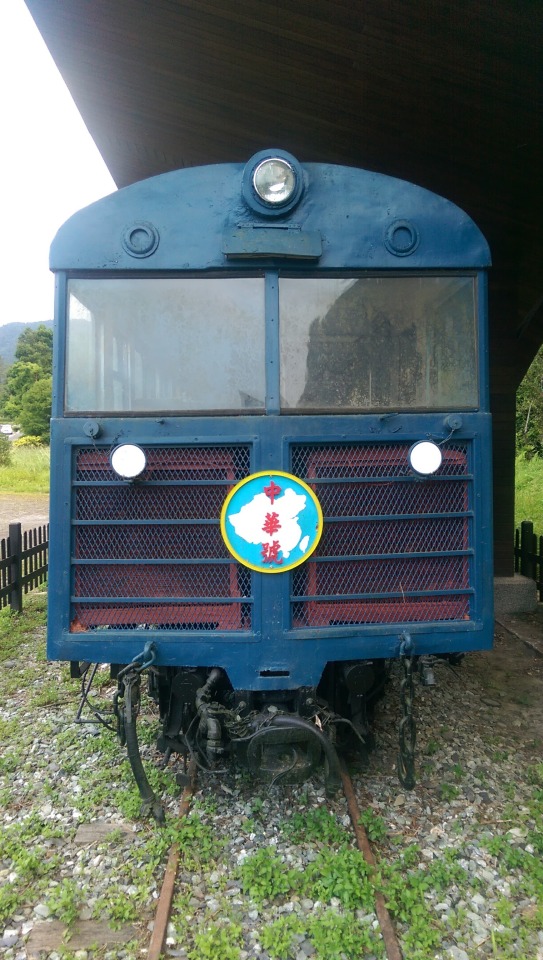
Note the badge on the front of this passenger locomotive ... it’s marked as the Zhonghua Hao (中華號) type of train which probably was an early trendsetter in the fashion of Taiwanese trains having political and motivational names ...
The Tzu-Chiang Limited Express was so-named from a phrase in an address that Chiang Kai-shek, the former President of Republic of China (Taiwan), delivered to his countrymen on 26 October 1971 in response to United Nations Resolution 2758, in which he urged the country to "Respect the Homeland, Strengthen Self ("Tzu-Chiang"); Respond to Change without Fear." U.N. Resolution 2758 formally recognized Beijing as the government of "China" and de-recognized Taipei, at the same time revoking Taipei's U.N. membership. For this reason, the Tzu-Chiang is also sometimes referred to as the "Self-Strengthening Express".
The inclusion of all of China and Mongolia on the map likely dates the train back to the 1950s before Outer Mongolia regained its independence.
Nearby, tourists are advised about prohibited behaviour ...
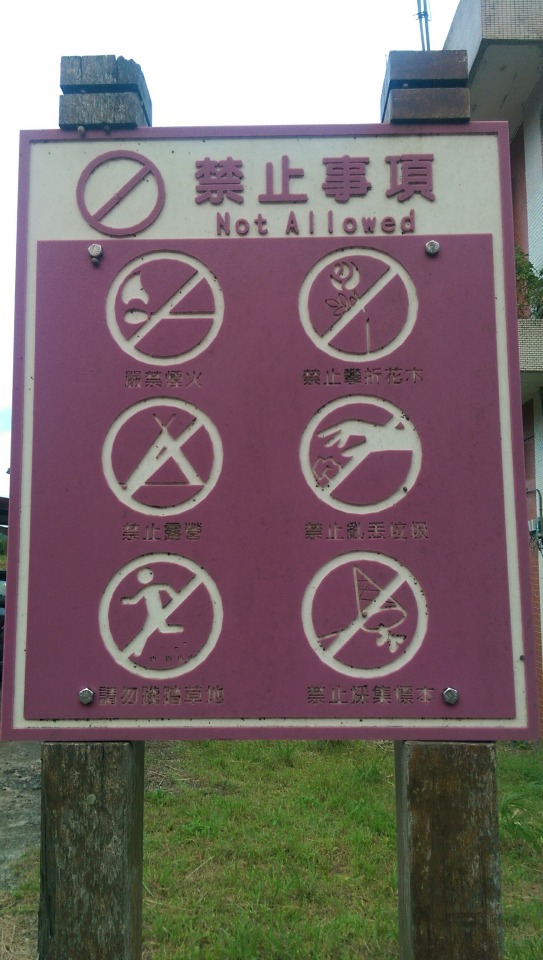
... some of which were a little unclear so they provided a written explanation ...
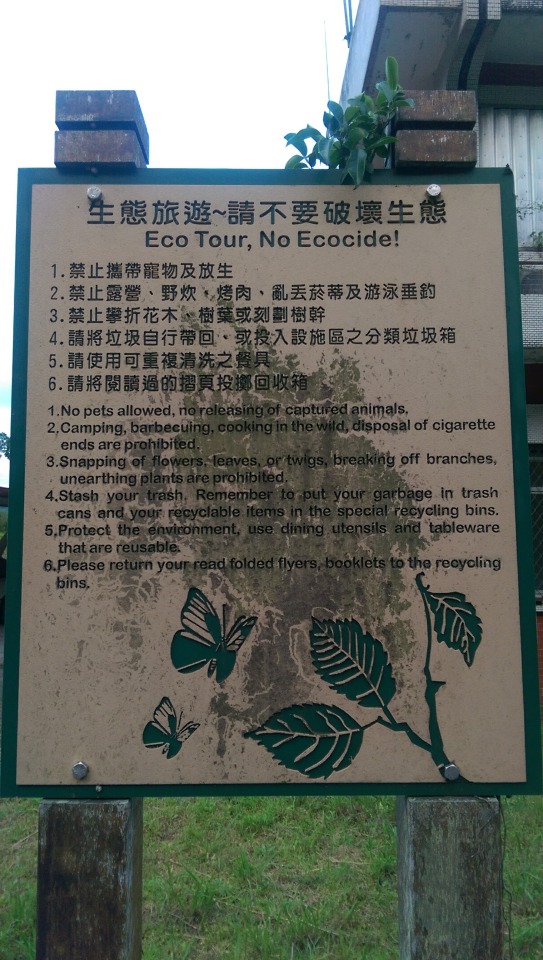
Next to the station lies one of the tributaries which feeds the immense Langyan River basin that eventually empties out to the Pacific at Qīngshuǐ Gǎng Wěi (清水港尾). As you can see, a lot of work has been done to build a flood wall here, probably mainly because of the immense damage Typhoon Soudelor did in 2015 when over 1000mm of rainfall fell in the area, almost submerging the railway station building entirely.
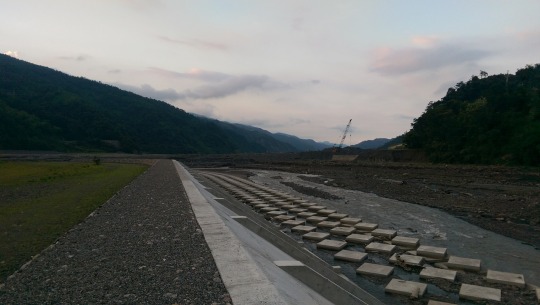
That such power can emerge to turn a steadily flowing but small stream below into a raging destructive torrent should be of no surprise given that the entire Lanyang River valley was carved by such forces over several millennia.
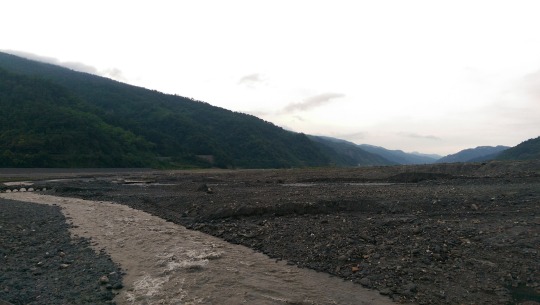
As the sun went down, we were bidden goodnight by these rather beautiful rays of light. In the Taiwanese mountains it gets dark (and cold) quickly so we popped back over the bridge and got to bed for an early start the next day...
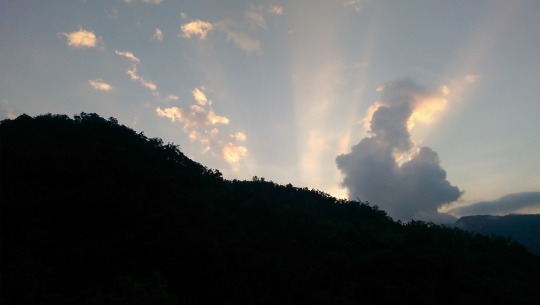
DAY 2 - WANGYANGSHAN, CUIFENGHU, TAIPINGSHAN, JIANQING BUDAO, AND JIUZHIZE
Our plan for the day was to get up at 3:30am and ride up to Taipingshan, take a short break, then ride on to Cuifenghu (翠峰湖) and from there hike up to the Wangyangshan observation deck (望洋山觀日亭) for the sunrise. We would then have all day to explore the area and get a fair amount of hiking in.
My first mistake was setting off at 4:10am. I actually hadn’t figured in the extra time it would take to get from Taipingshan to Wangyangshan. My second mistake was not bringing a heavy jacket and gloves. About thirty minutes up Taipinglin Road (太平林道) my hands were numb and EVA heroically loaned me her woollen hiking jacket on the logic that if she held on tightly behind me I would act as a wind buffer and we would both remain warm enough so that we wouldn’t fall off the edge of the mountain. I must admit, although I love mountain biking, doing a completely unfamiliar road in the cold, pitch black and with deer jumping out at me was not the most enjoyable part of the journey, and extremely tiring. Normally I would enjoy ascents because I could power up and around lots of hairpins but in this case it meant crawling along at 30~40 kph eyes fixed on the centre line and thanking the deities that we were the only ones on the road. I was more than relieved when we got to Taipingshan at 5:15am and could stop for bathroom and rewarming. This was the sight looking roughly south east ...

Sometimes the flash comes in handy ...
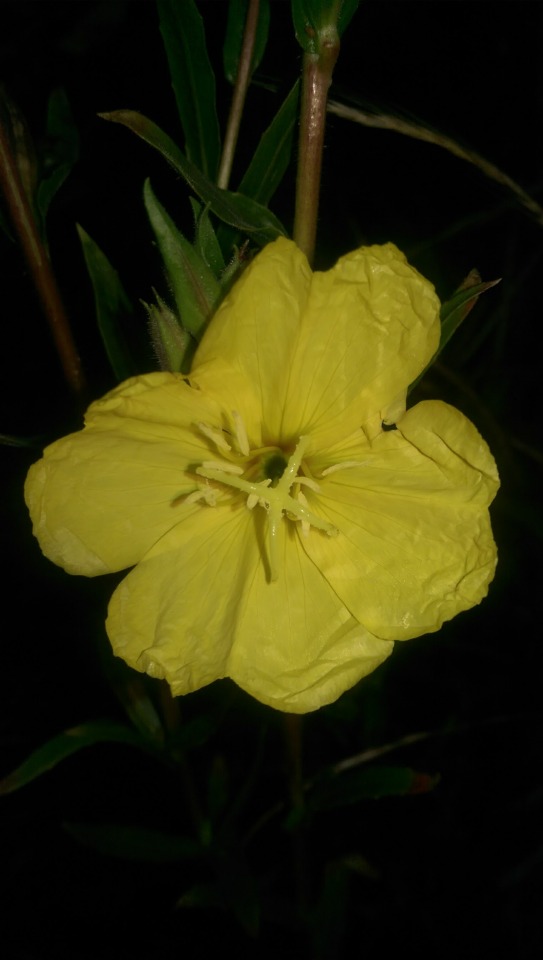
Literally a few minutes later dawn was breaking, and our hopes of seeing the sun rise over Wangyangshan dashed, especially when a local informed us it would take 40 minutes to get there ...

The main building at the base of the settlement, closed until normal people get up at a normal hour ...
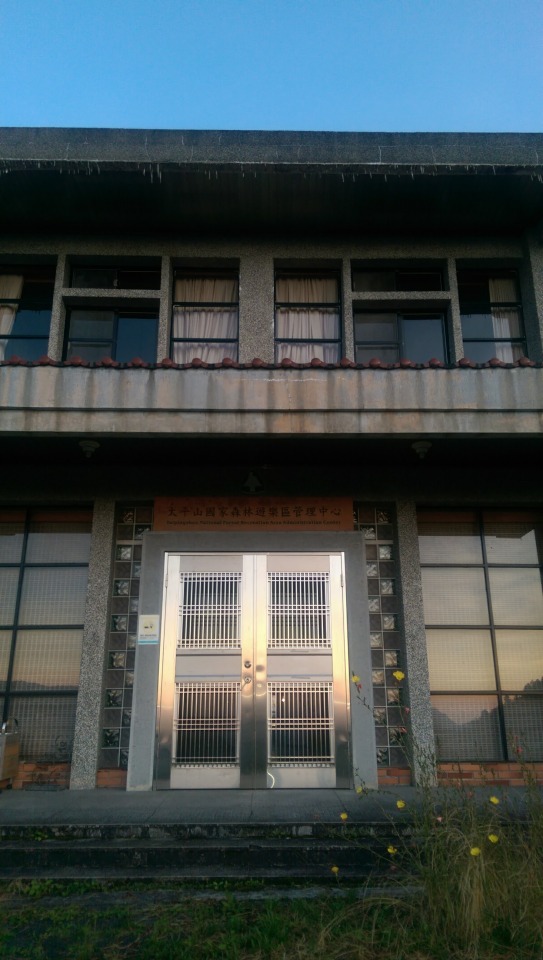
After a break, and with the sun now rising steadily, we made our way along the road to Cuifenghu and Wangyangshan, taking only 30 minutes to get to our destination, followed by an easy 45 minute hike up to the Wangyangshan viewing platform, where this was the view (left to right) at about 7am ...

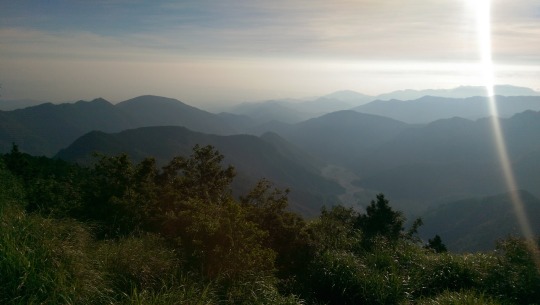
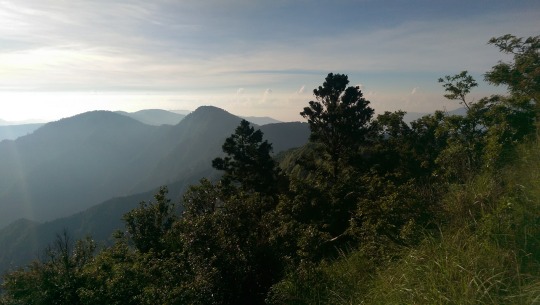
EVA takes some snaps too ...
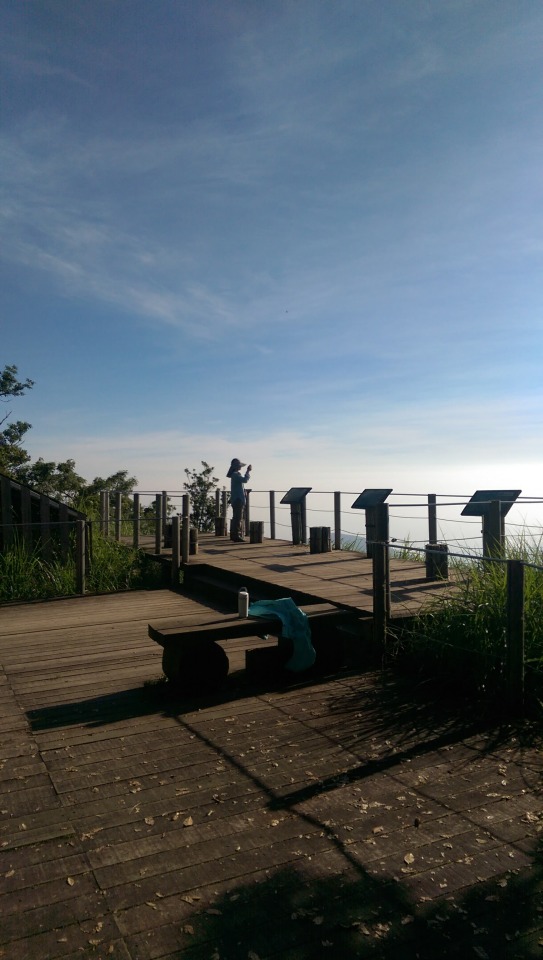
Not sure what this is but my guess is a solar powered meteorological station ...

Sunlight glistens, reflecting on the morning dew ...
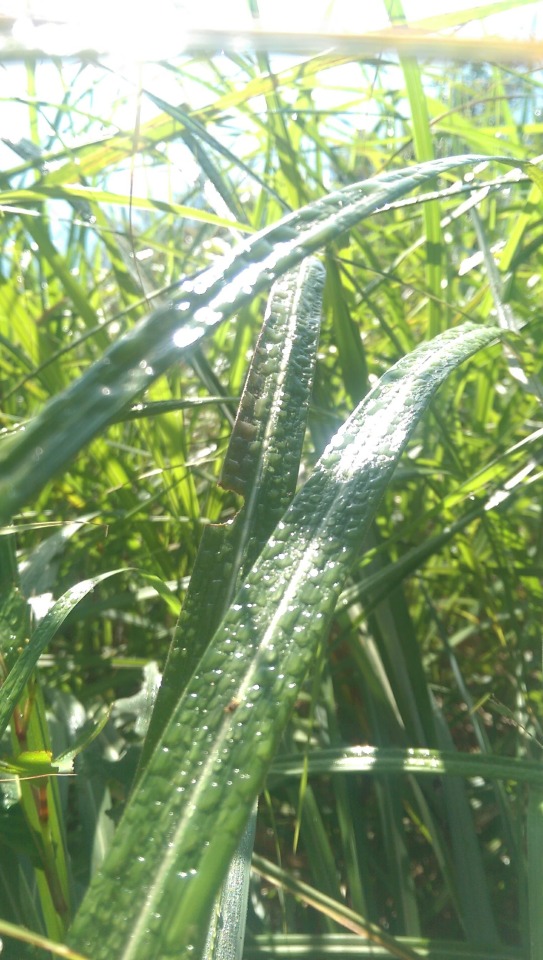
... and the green foliage contrasted nicely with the clear blue skies ...
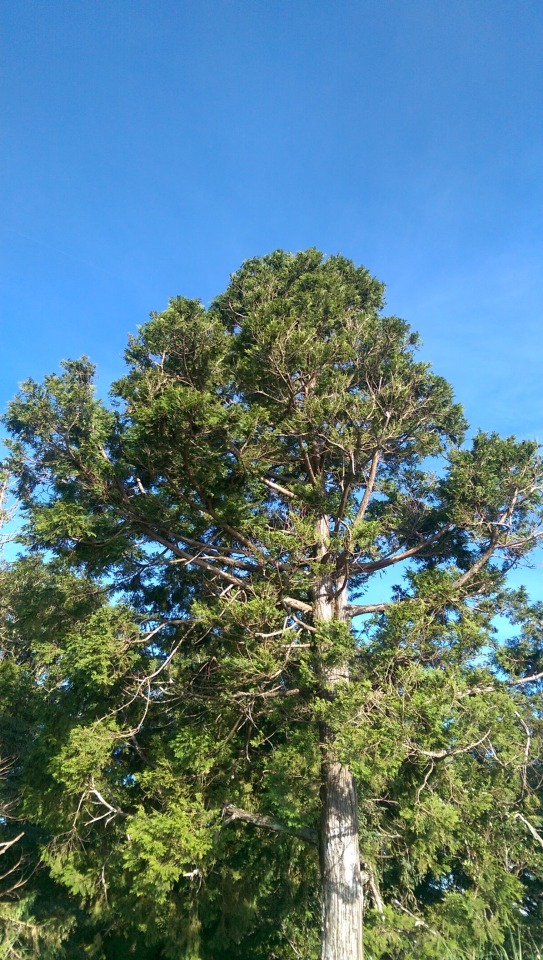
... from the deck looking back at the trail ...
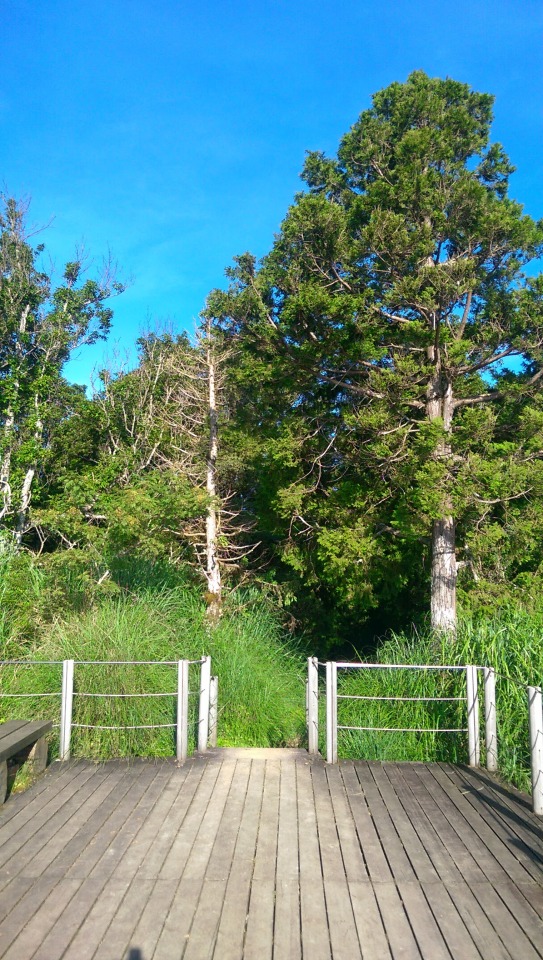
The following shots were taken on the path down from the Wangyangshan viewing platform. This has been a habit of mine recently as I’ve found not being distracted with photos is a better way to stay focused on a hike up a trail, conserving energy by keeping a steady pace rather than stopping all the time.

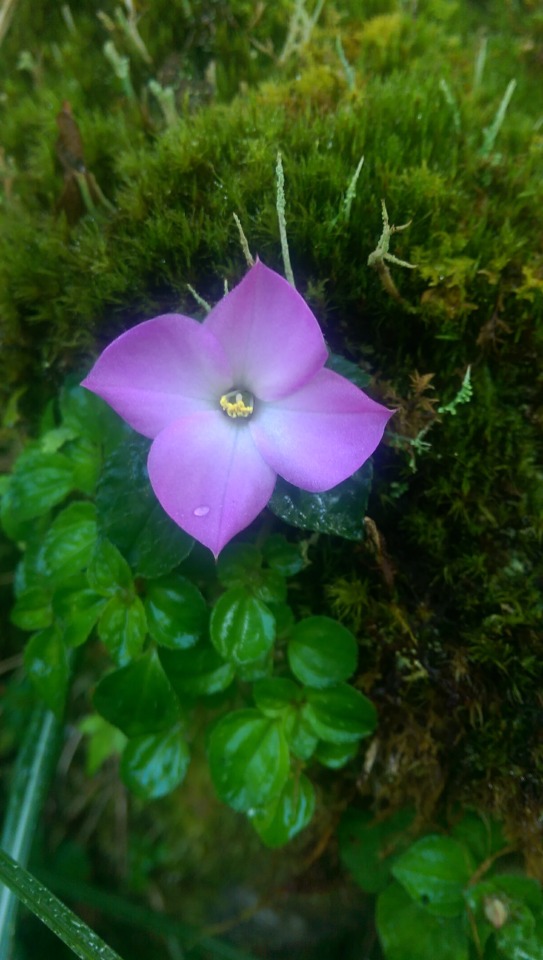
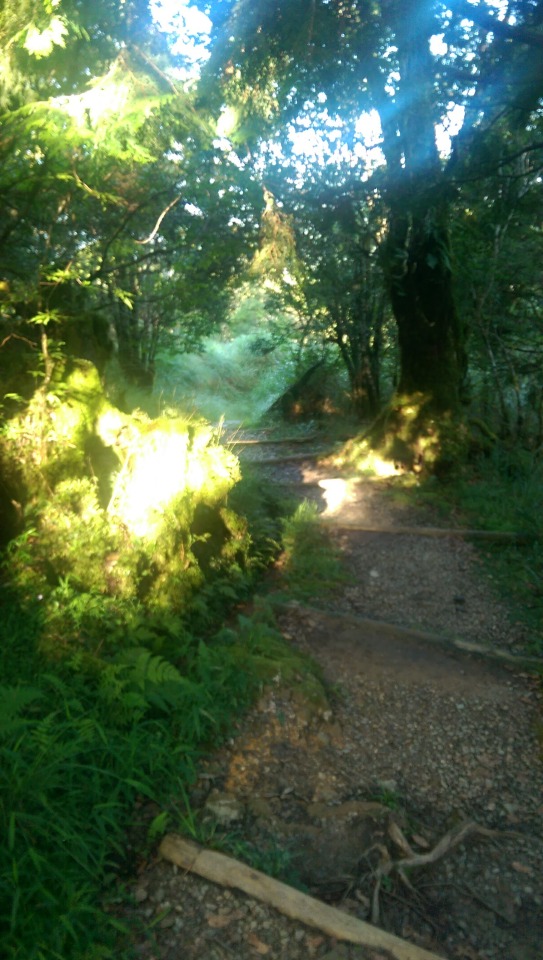



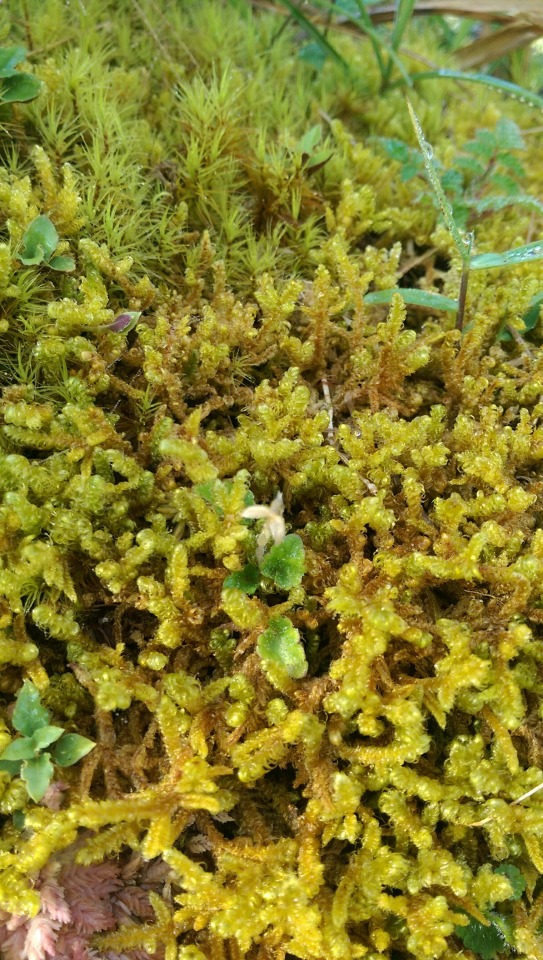
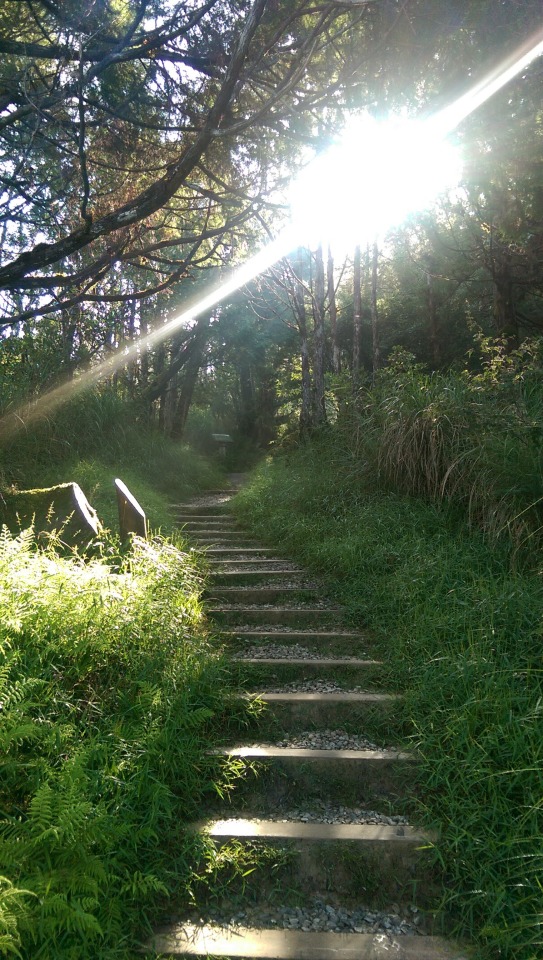

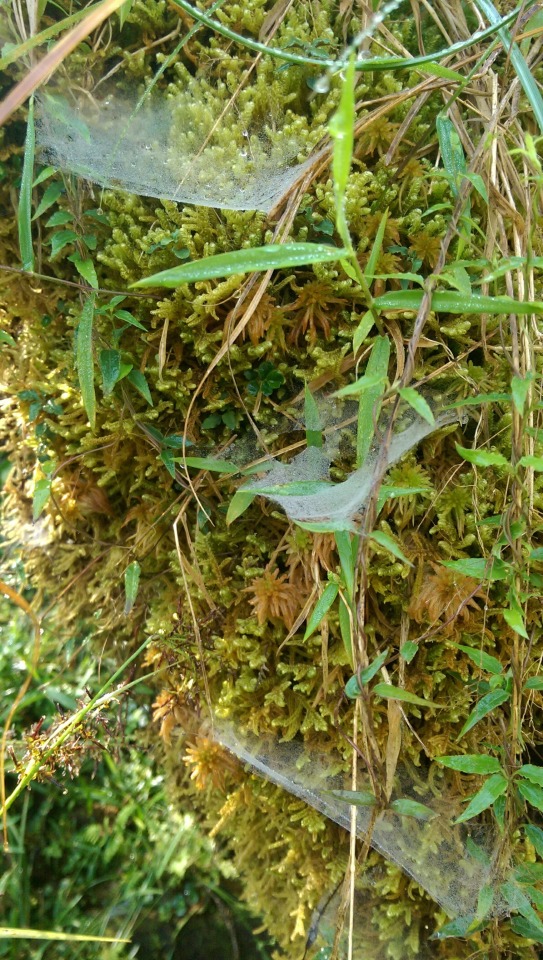

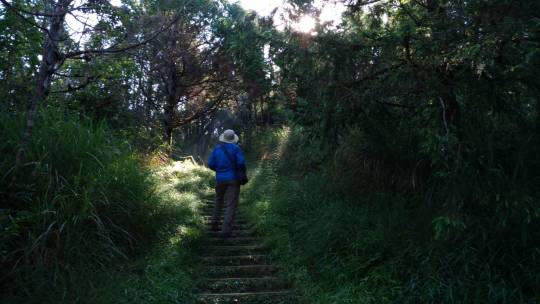
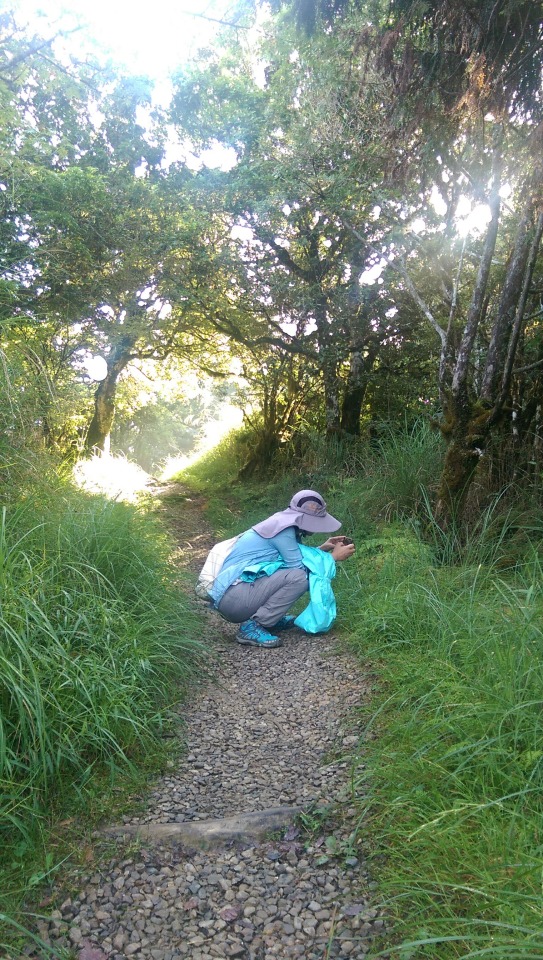
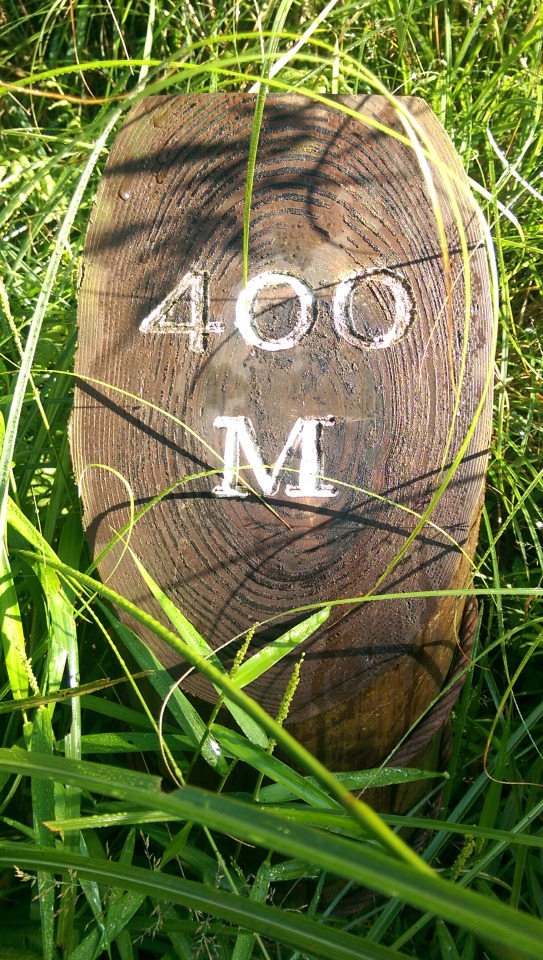

I really liked the combination of colours seen in these flowers growing amongst moss on bark ...
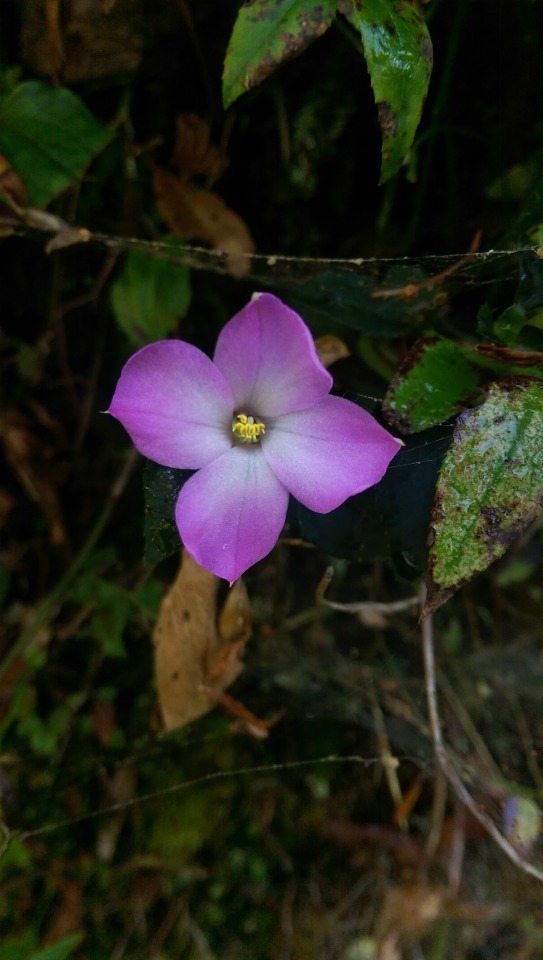
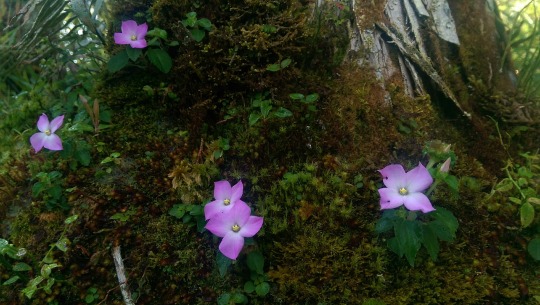
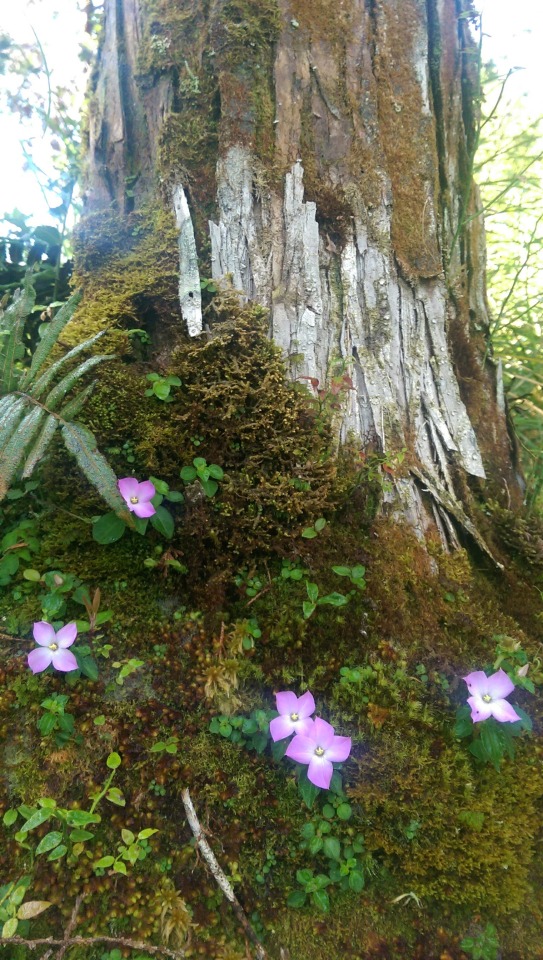
It’s a nice easy trail with great views along the way ...
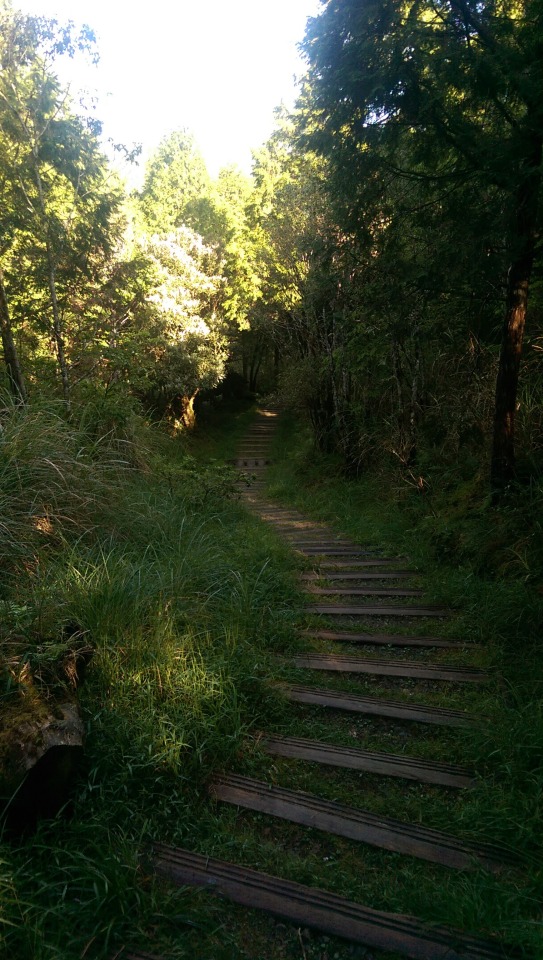
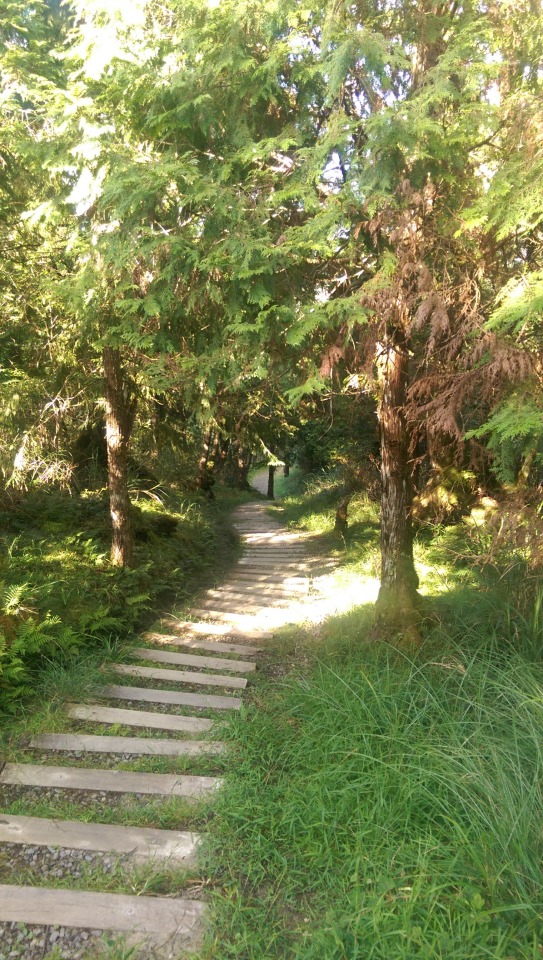
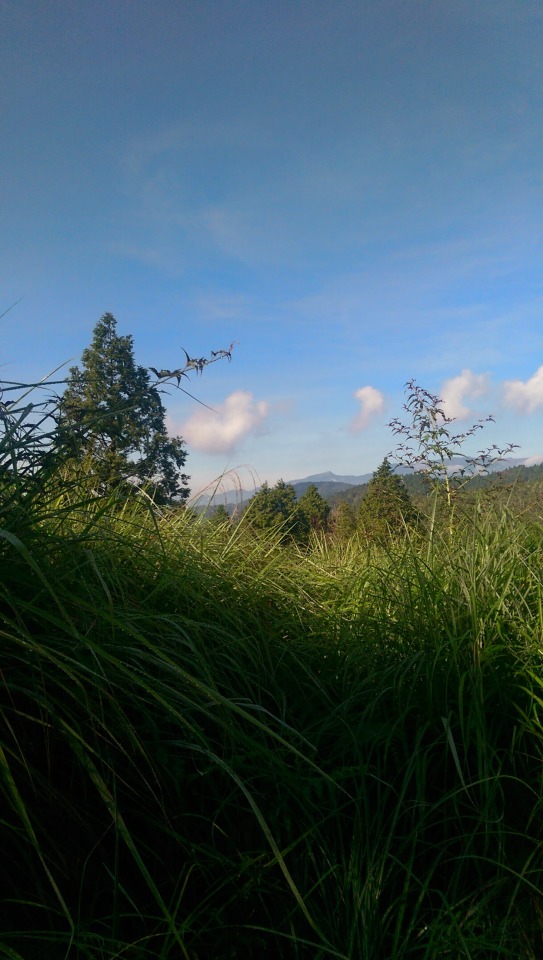
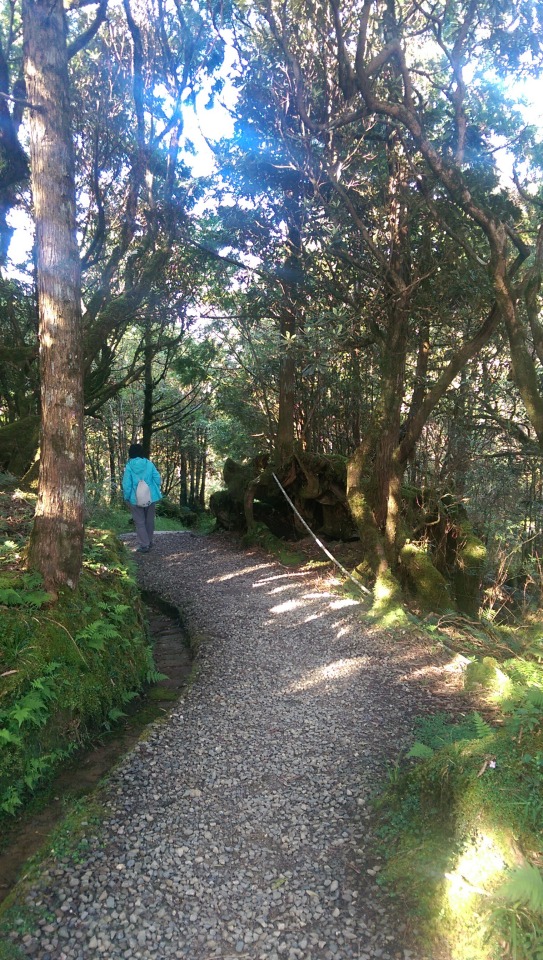
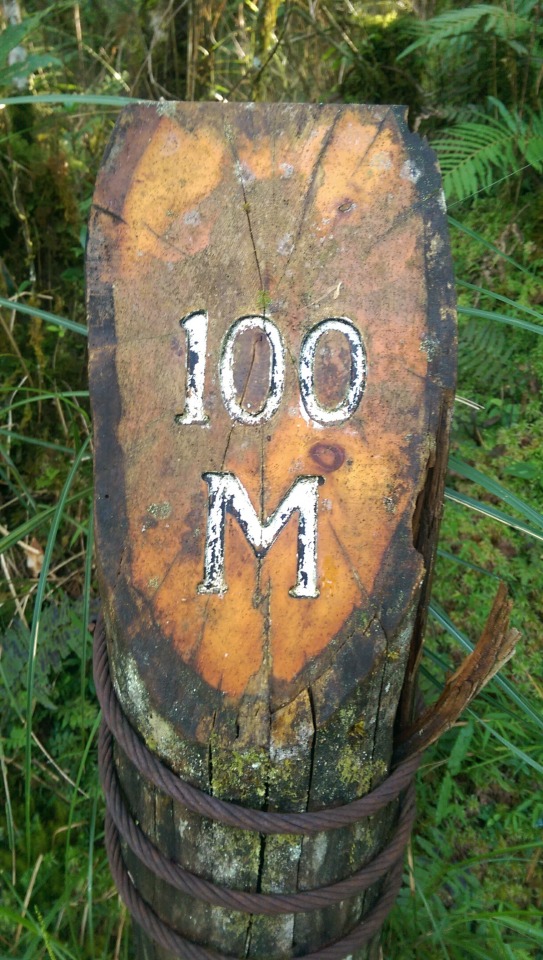
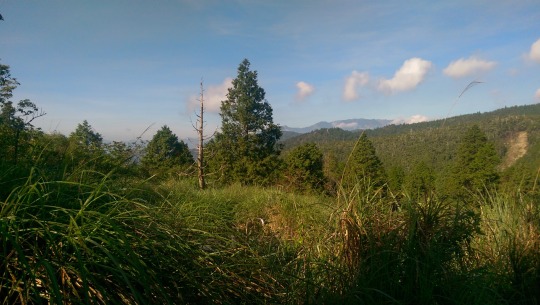
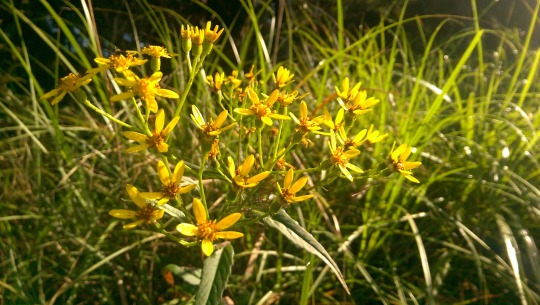
“When wet this path is very slippery. Please be careful walking”

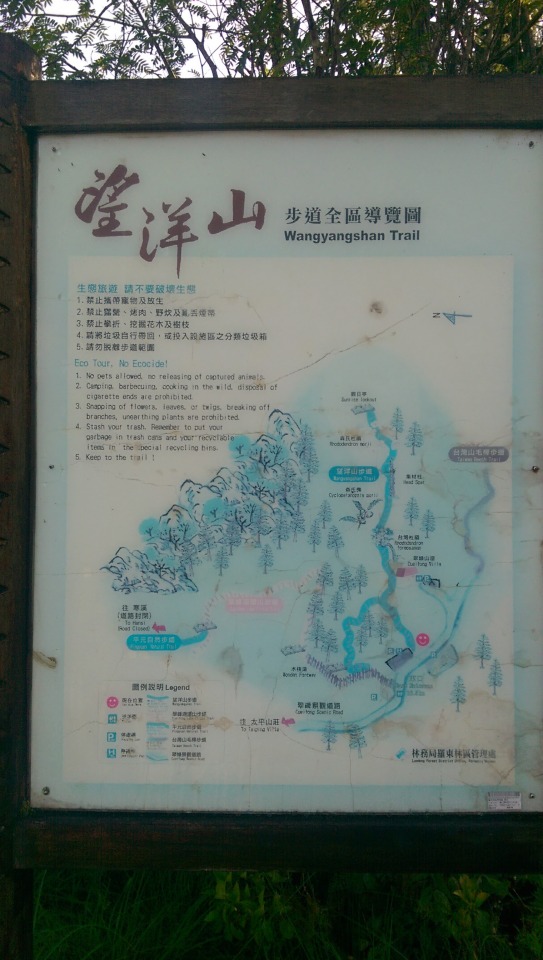
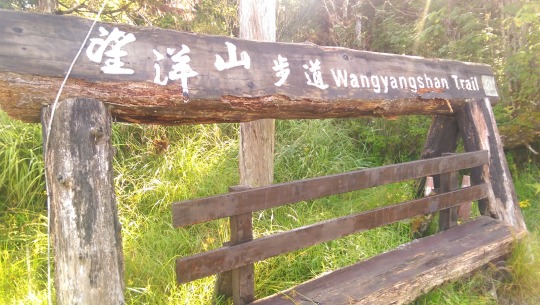
At the base of the WangYangShan Trail is a carpark that I only realised after I got back also doubled up as a helipad ...
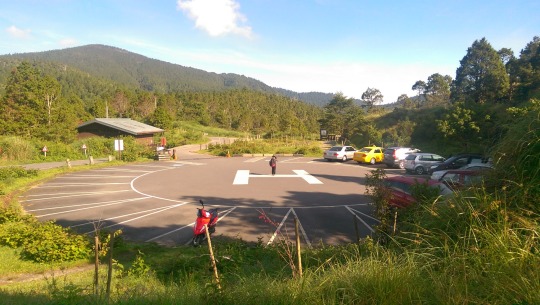
Just around the corner from here is Cuifeng Lodge翠峰山屋, marking the end of the road and from whose raised platform the views are expansive ...
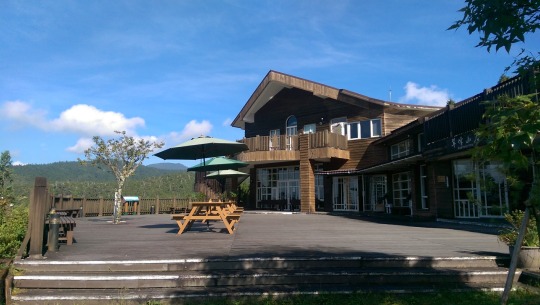
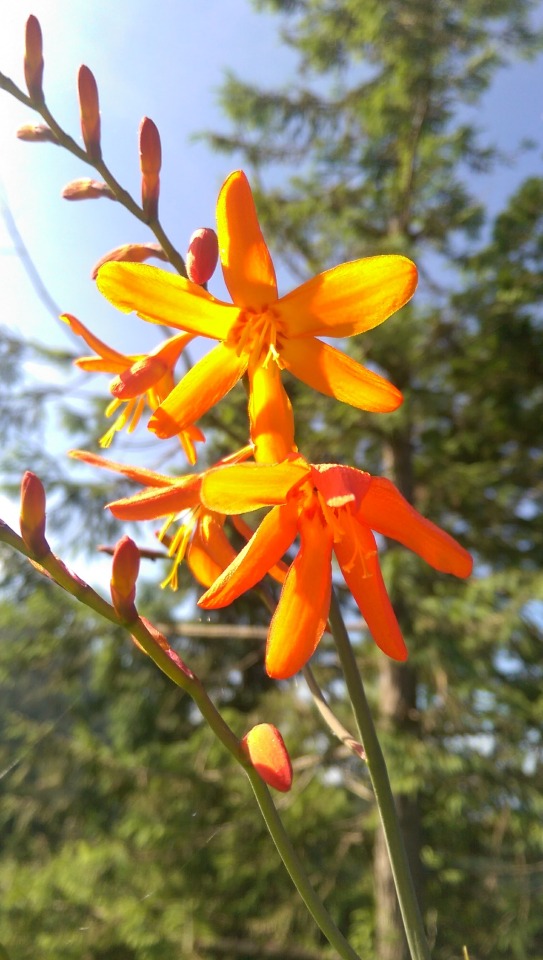
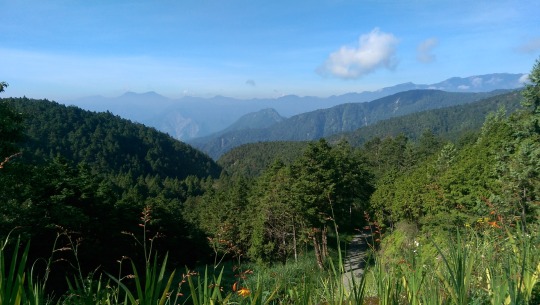
At the base of the lodge is the start of the 3 hour, 3.9 km National Beech Trail ...
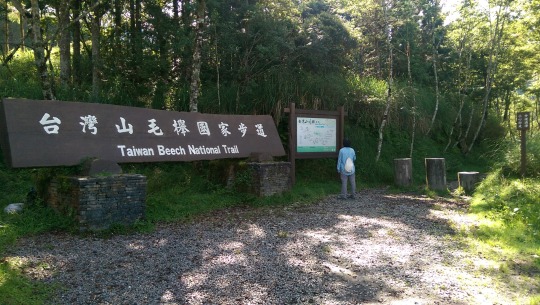

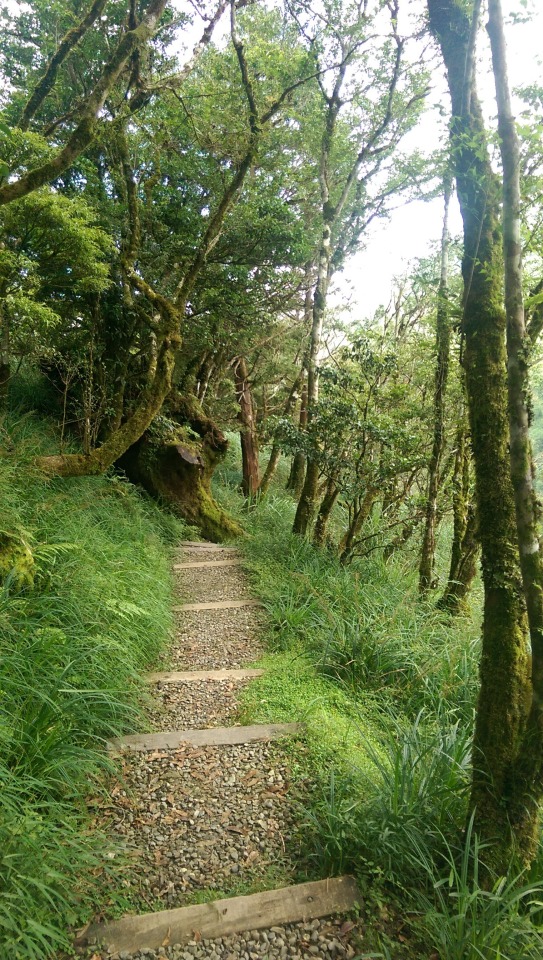
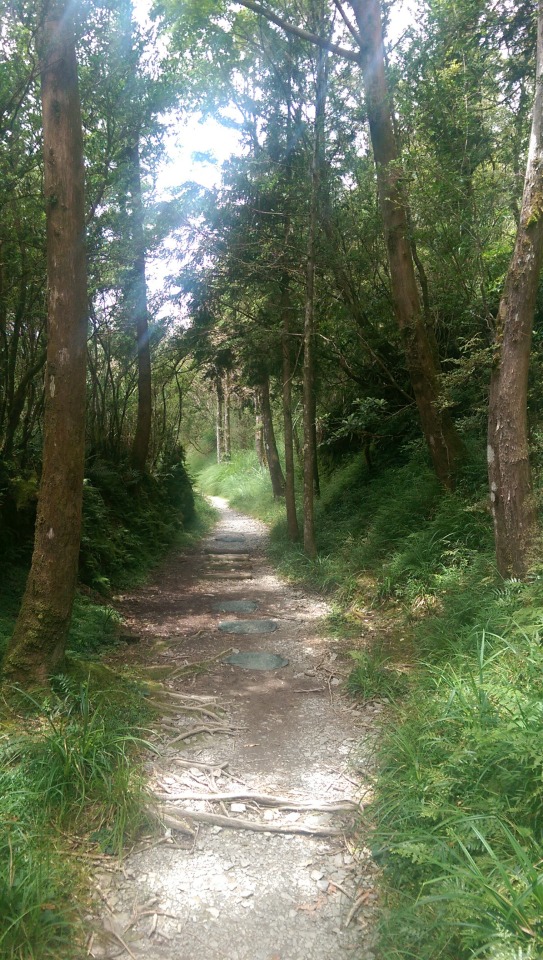
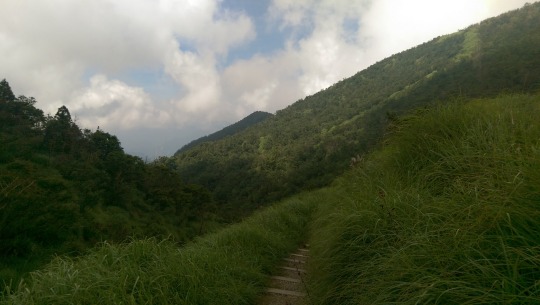
Flora and fauna alike ...
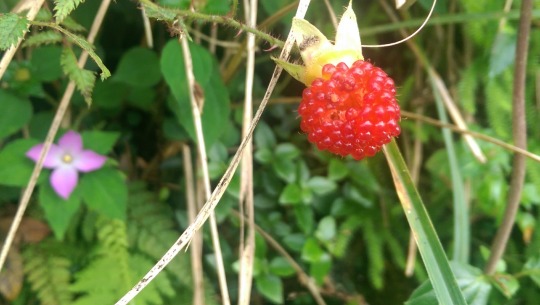
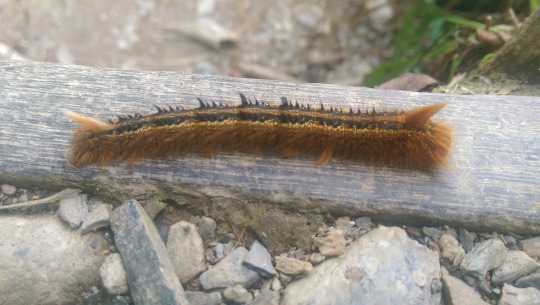
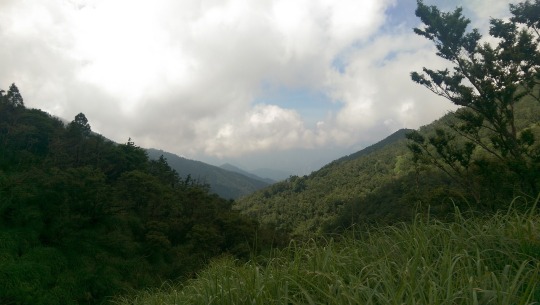
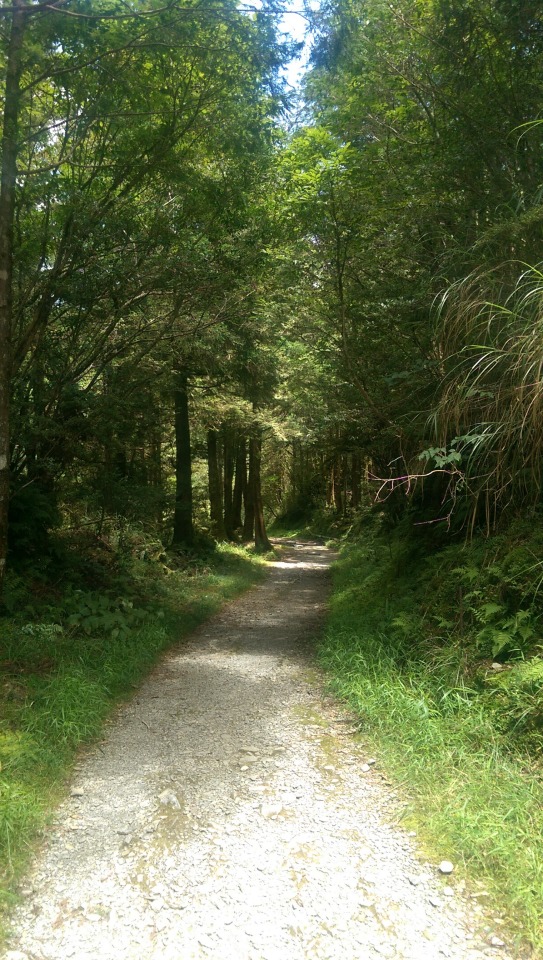
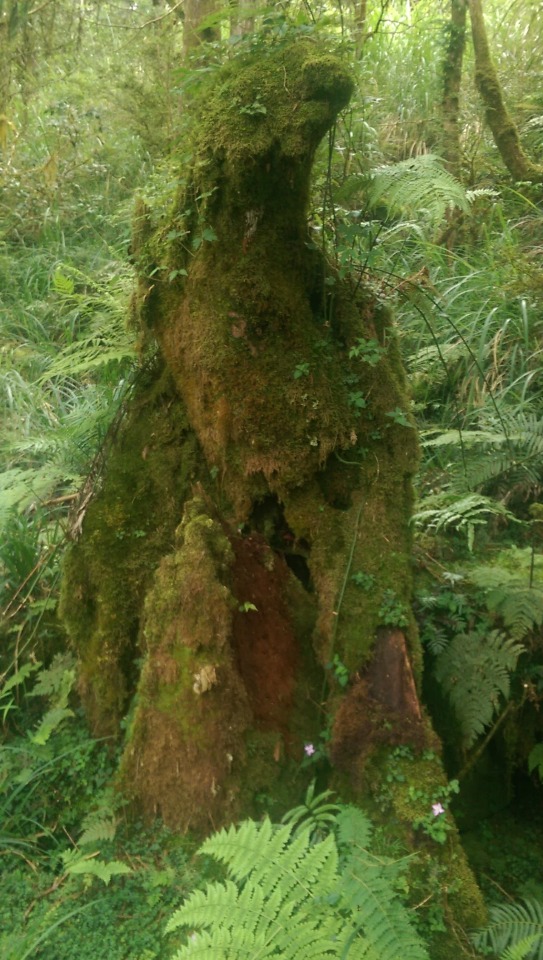
Looking back at the lodge ...
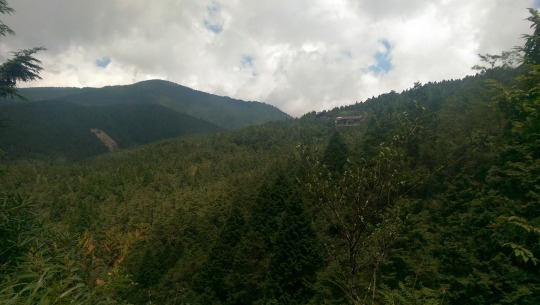
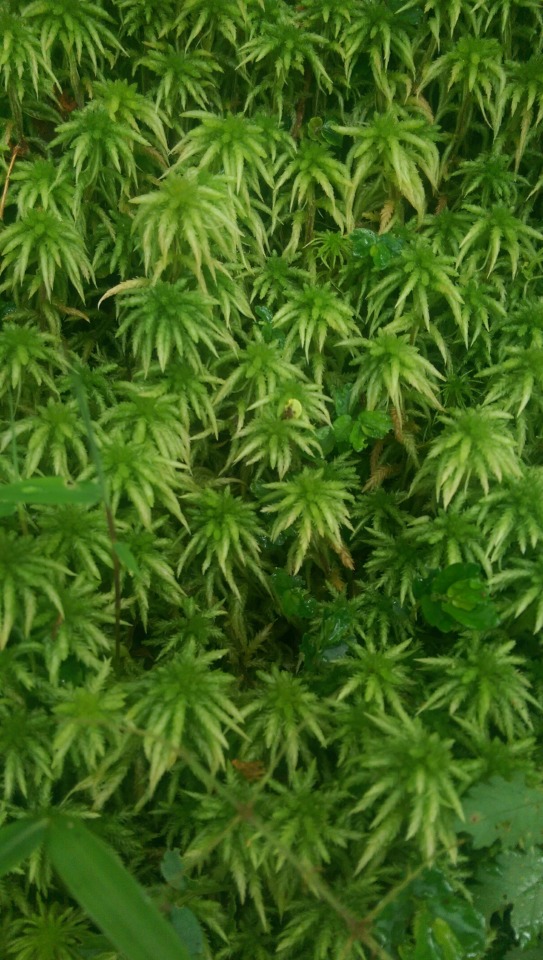

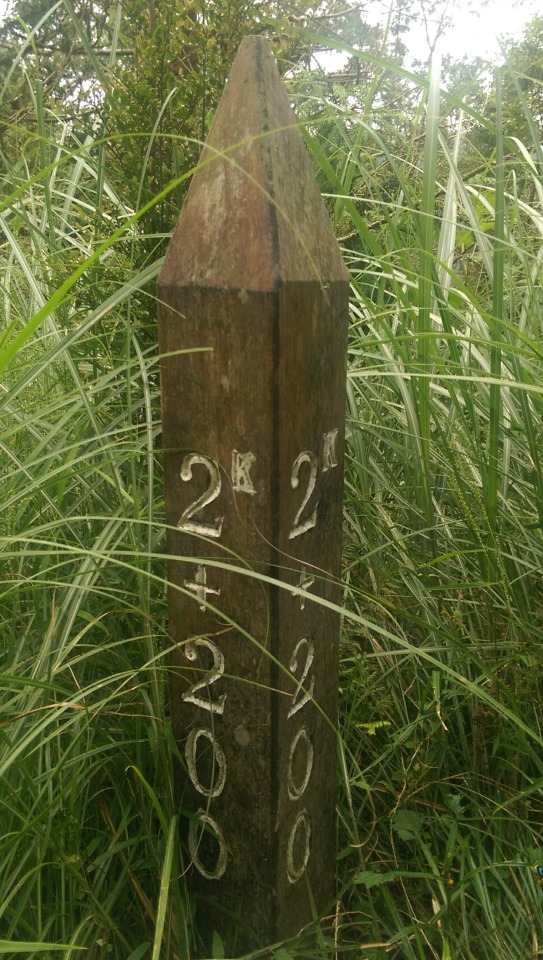
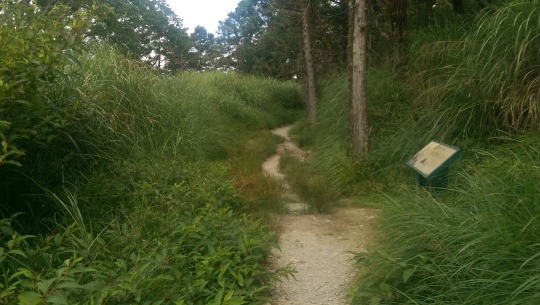
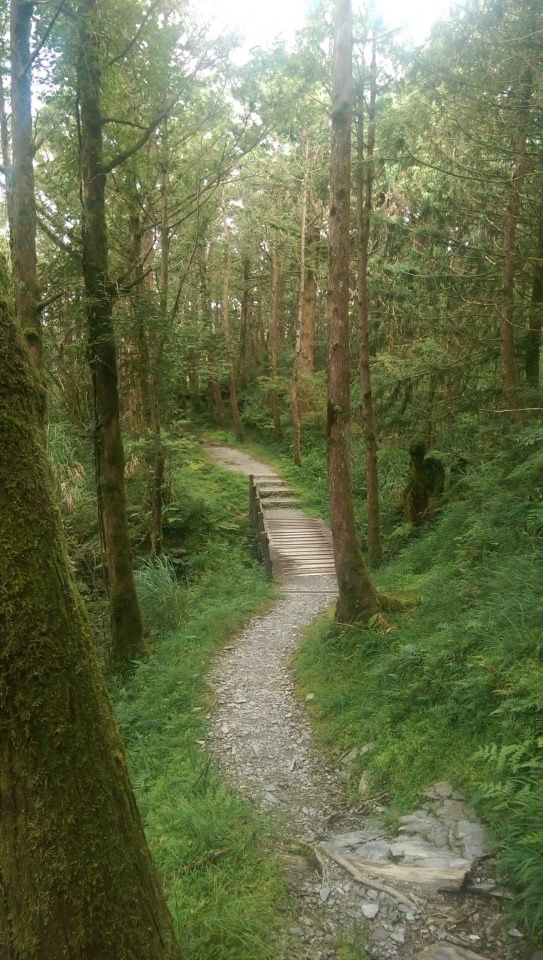
Lots of these path steps with reinforced metal grate indicate how muddy and wet the path can get ...

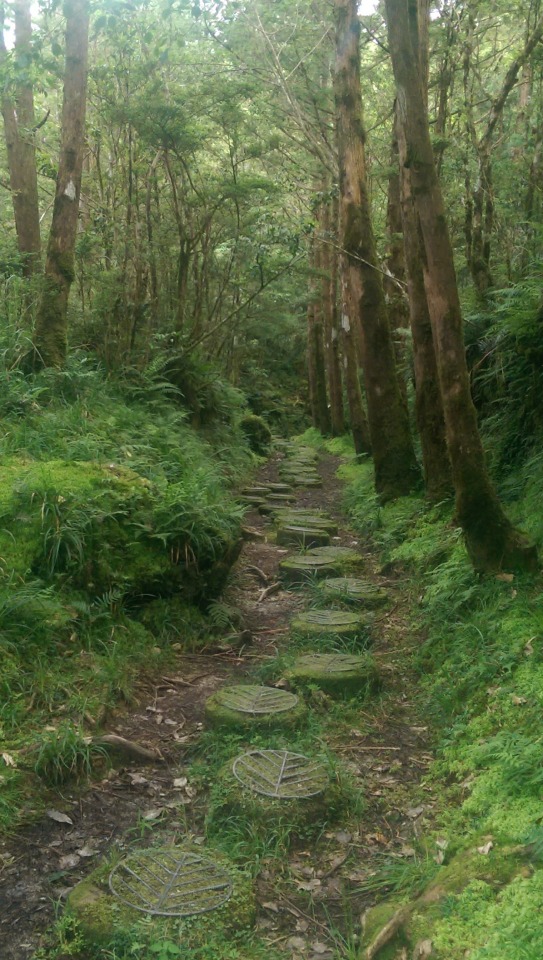
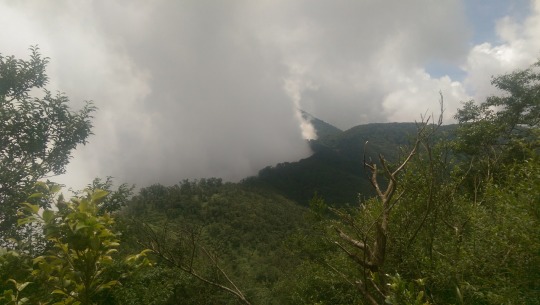
Unfortunately, at about the 3.1km mark the sea of clouds was all around us and we decided to abandon the goal of completing the remaining 0.8 km, deciding instead to return to the lodge for a much needed lunch of fried rice, boiled vegetables, and fresh cold oranges ...
Next up, and very close by was a walk around part of Cuifenghu (翠峰湖) on one of the two Cuifeng Lake Circle Trails (翠峰湖環山步道). The lake is the highest situated in Taiwan and is entirely fed by rainwater, meaning that much of it drains to low levels outside of the rain season or absent any recent typhoons. We enjoined the trail up the side of the lake and walked to and from viewing platforms, the path again having originally been carved out for the logging industry.
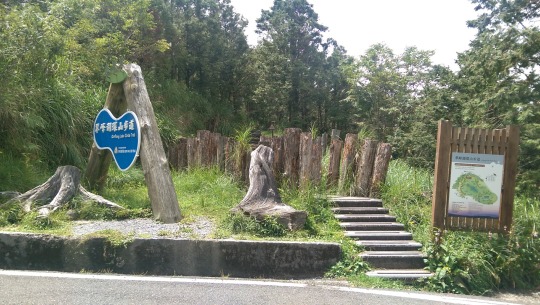
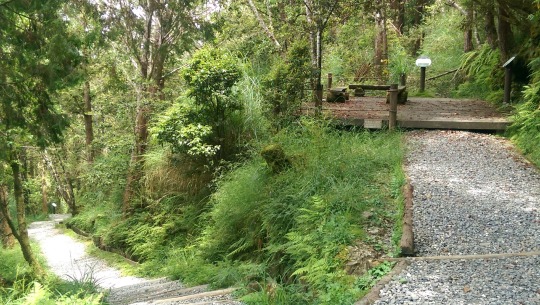
It’s a well tended and solidly paved trail designed for a lot of foot traffic ...
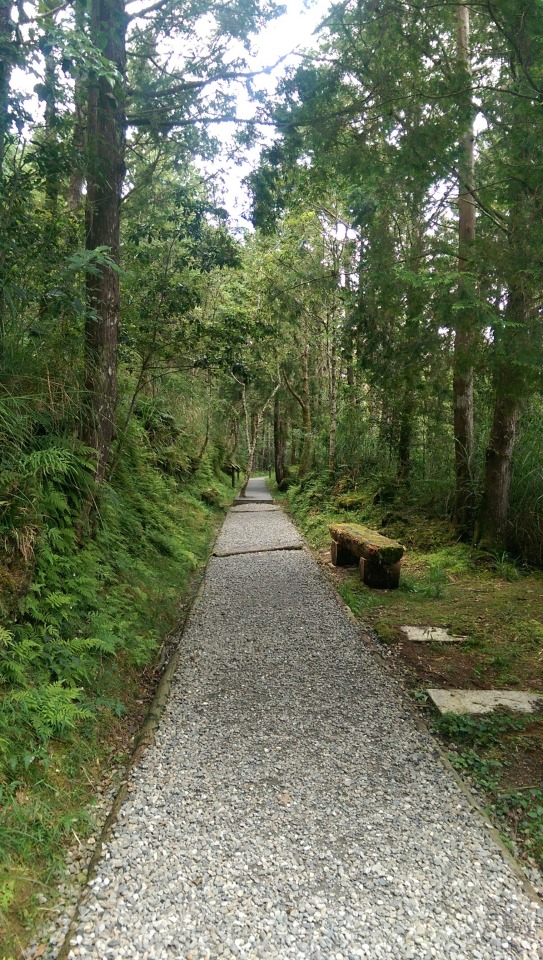
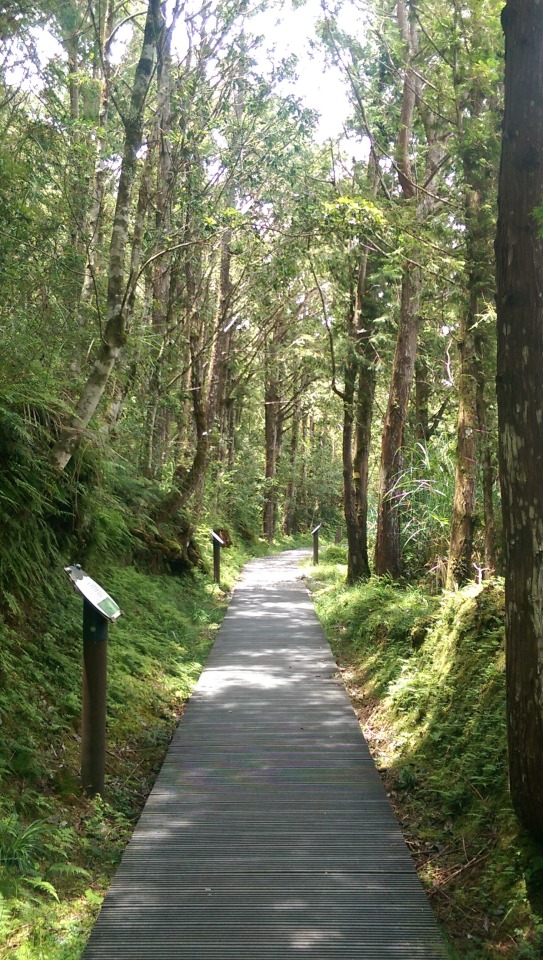
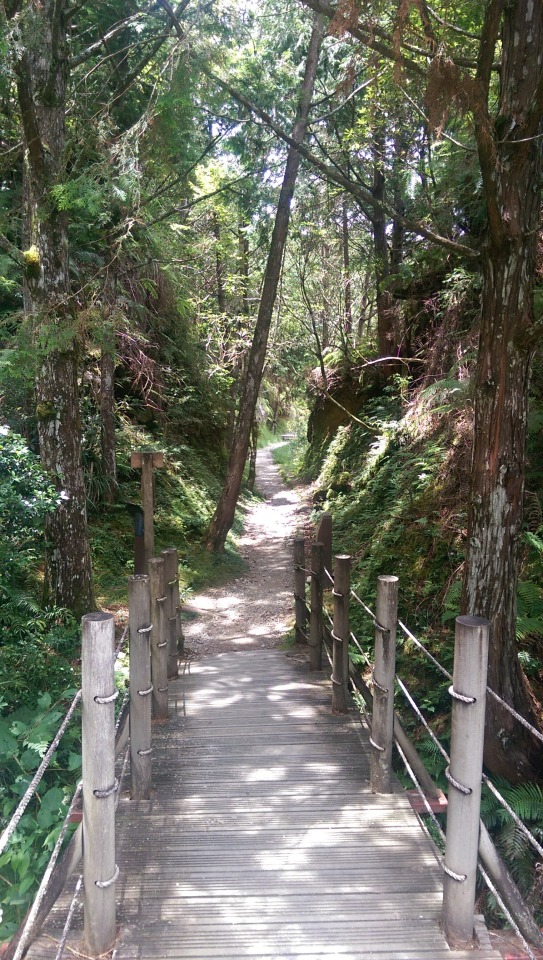
Landslides and the bridges constructed over them bear witness to the ever active geology of the area ...
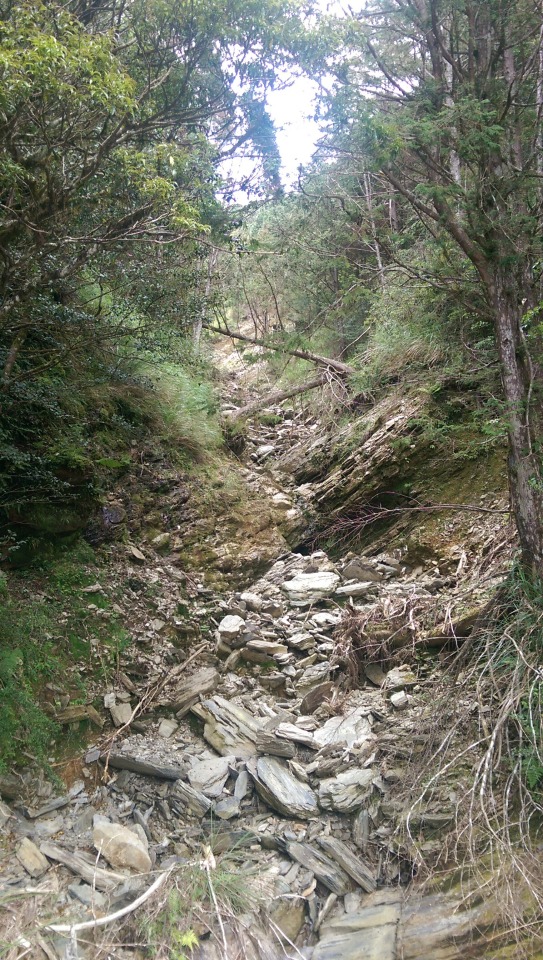
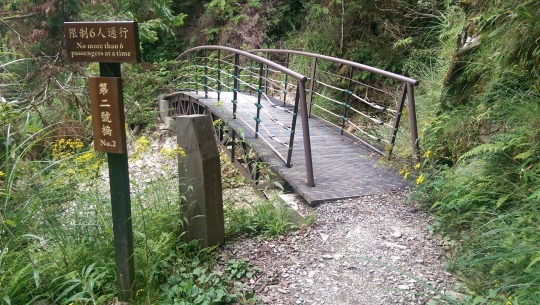
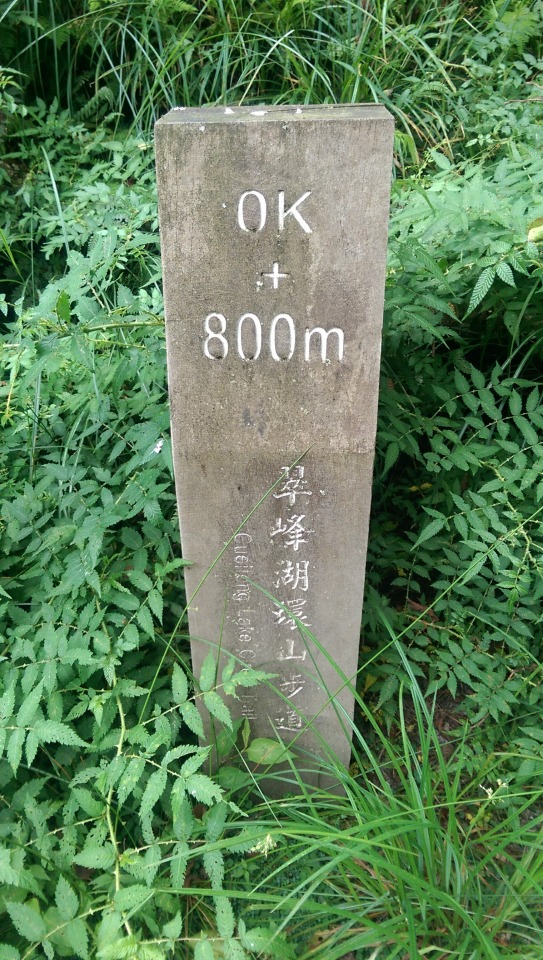
There’s even a short section where someone has planted flowers on either side ...

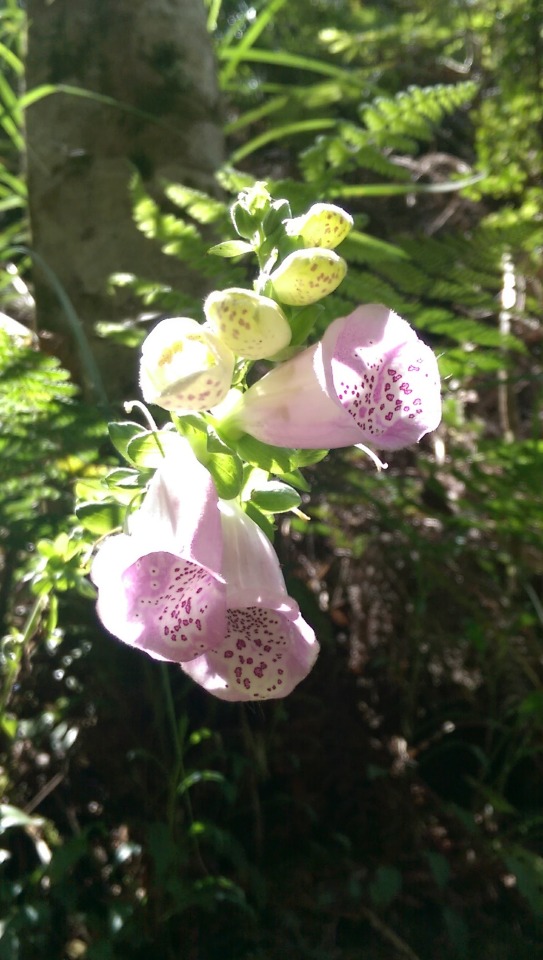
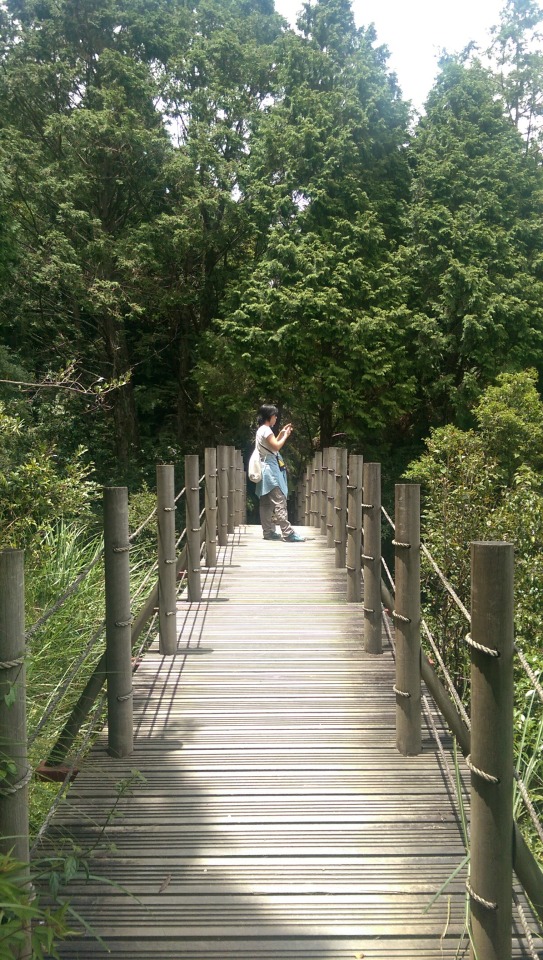
You can spy the lake through the trees along the way ...
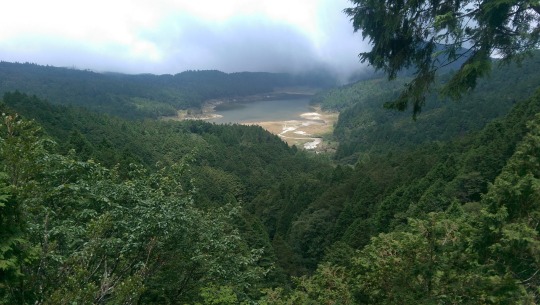
And visit this cement and wood oil storage hut converted to an information centre about the lake. It had to be a cement hut on the inside to prevent freak fires from igniting the oil stored there ...
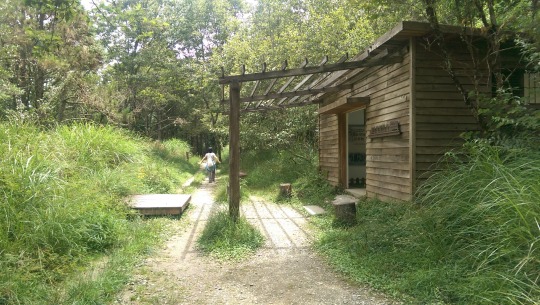
And then there’s three viewing platforms which give a full view of the lake ...

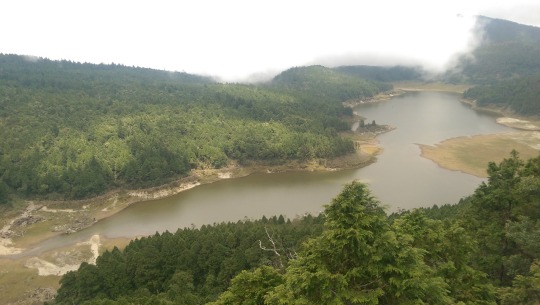
That took us about 1 hour there and back, meaning we had chalked up about 4.25 hours hiking in the day thus far. With a warming afternoon sun shining down through fluffy white clouds and blue skies, we rode back to Taipingshan to visit the settlement there. Remember the first picture I took at dusk? Here’s more or less the same view at about 2pm in the afternoon ...

Taipingshan Village is now one of Taiwan’s premier tourist attractions but it was once one of the main logging stations on the East coast. This government website gives a brief overview of how the site was established for the industry. The village consists of one tree lined street rising sharply up the mountain to a temple at the end, with former logging buildings placed on either side, some now converted to shops an cafes. There was also a tourist railway but that was not open when we visited.
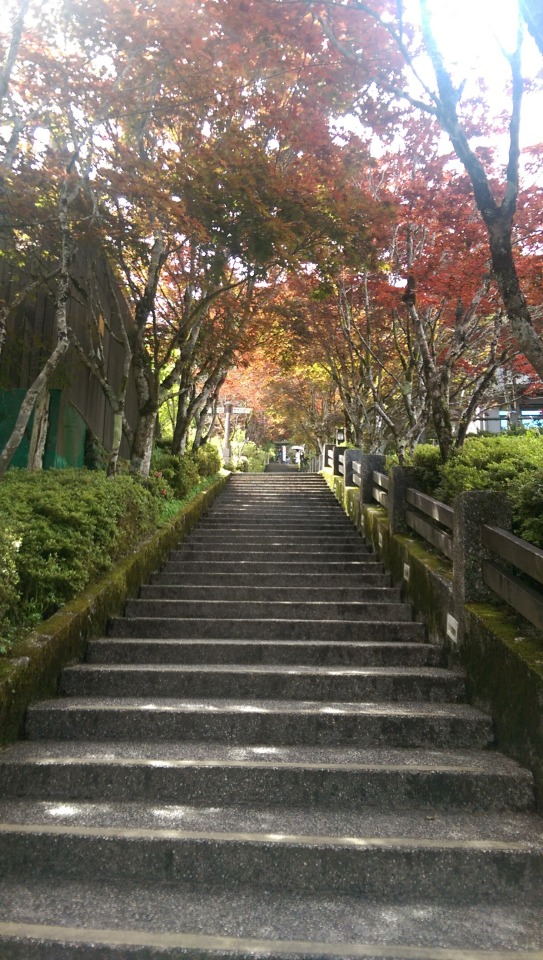
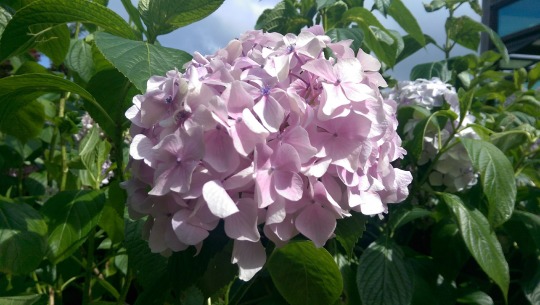



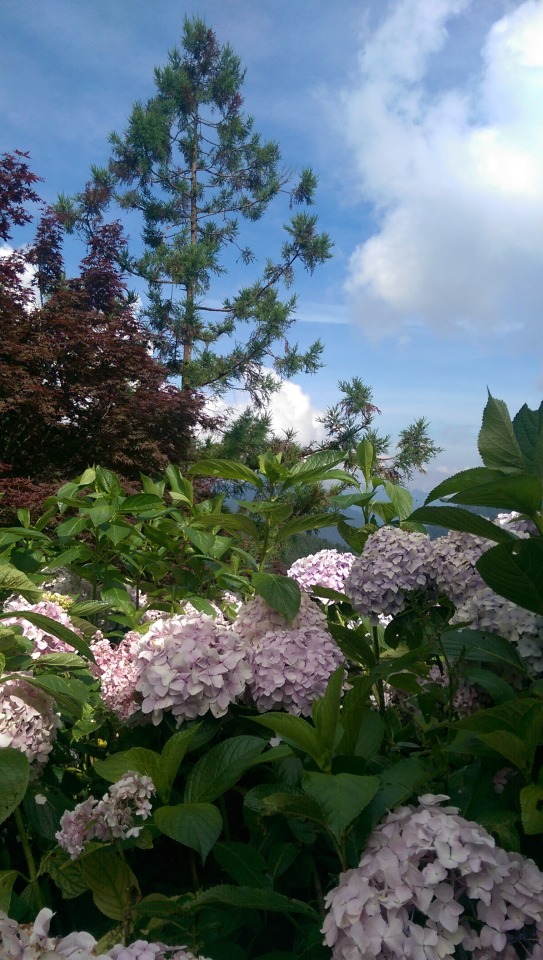
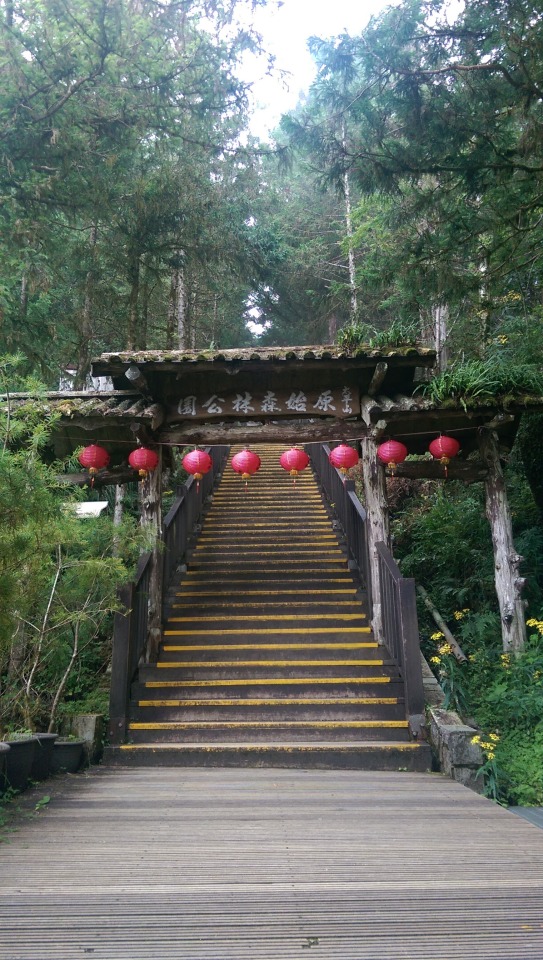
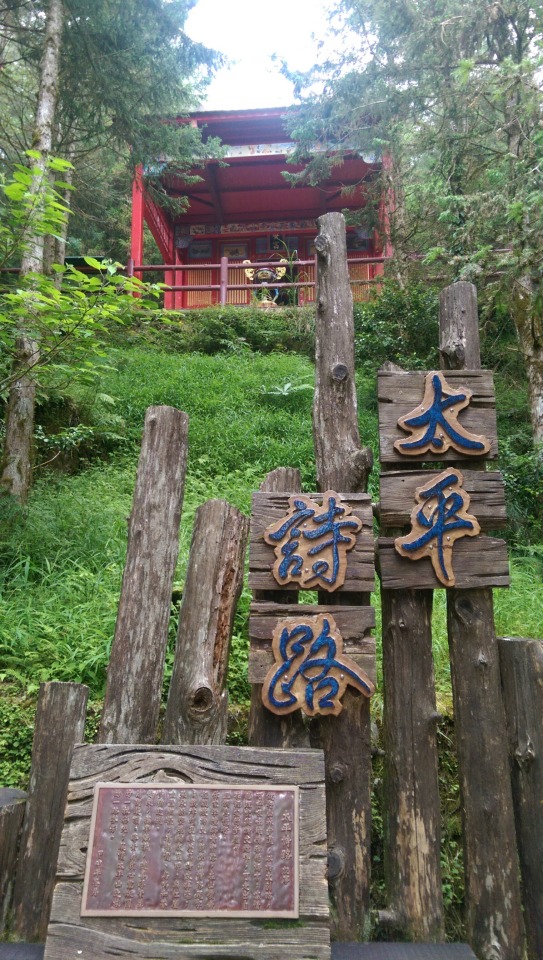

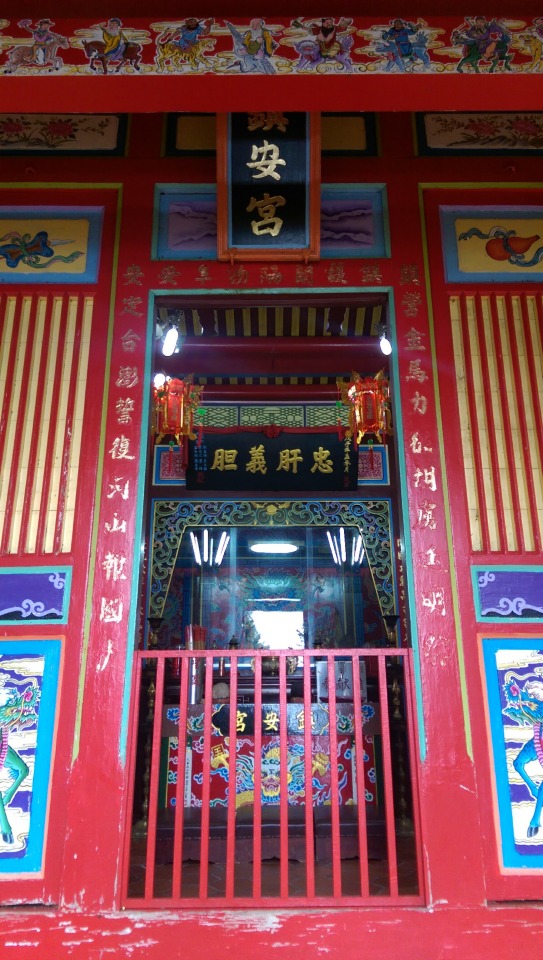
The view looking down from the temple ...

This sign shows that we only briefly glimpsed the area, with numerous trails yet to explore ...
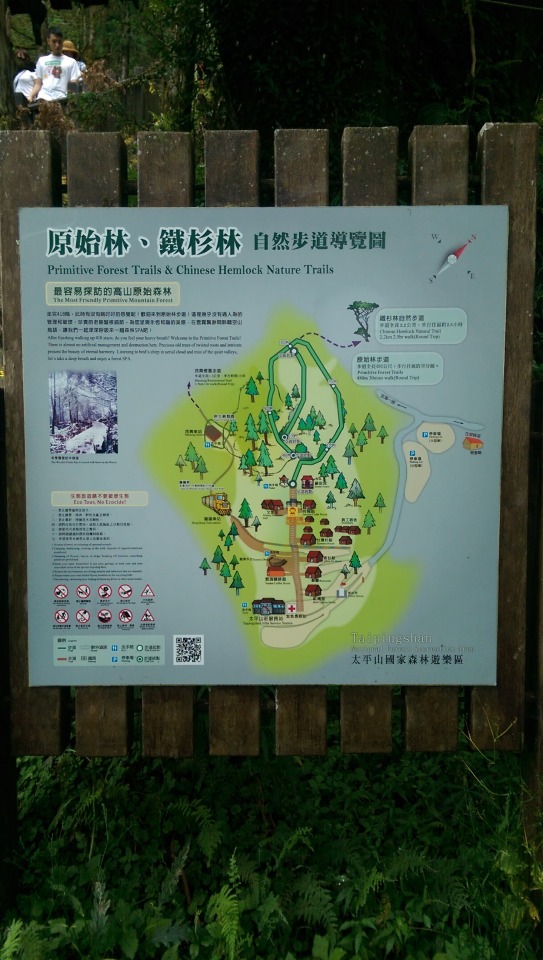
Having rested up, it was getting late in the afternoon so we decided on two more stops before heading back to the Chi’lan resort for the night. First up was Jianqing Historic Trail (見晴步道):
At Jancing, you can see the gorgeous views of Yilan Plain in the east and Holy Ridgeline in the west at the same time in good weather condition. As to Jancing Historic Trail, it was built on part of the old「Forest Railway- Jancing Line」 and the total length is 2.35 km. However, due to the landslide, only 0.9 km is accessible to visitors. The old「Forest Railway- Jancing Line」is about 5.5 km, it still retains the natural beauty and historical heritages along the railway as decades ago. Nowadays, you will see the railway tracks, wooden log cart and bogies on the trail, which can invoke the memory of old logging business.
Sadly, the sea of clouds had once again stymied any chance of amazing panoramic views but the trail itself was very atmospheric in the fog and an interesting walk ...
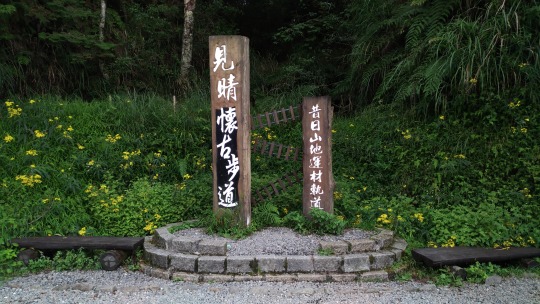

The entrance to the 900m trail ...
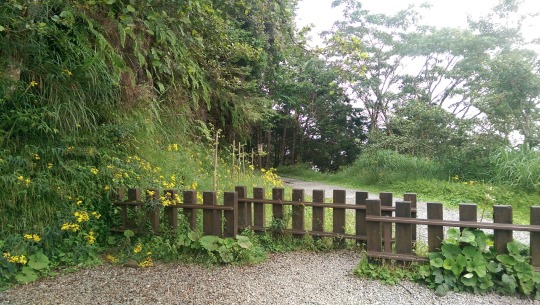
... and then you simply follow the path of the railway tracks ...
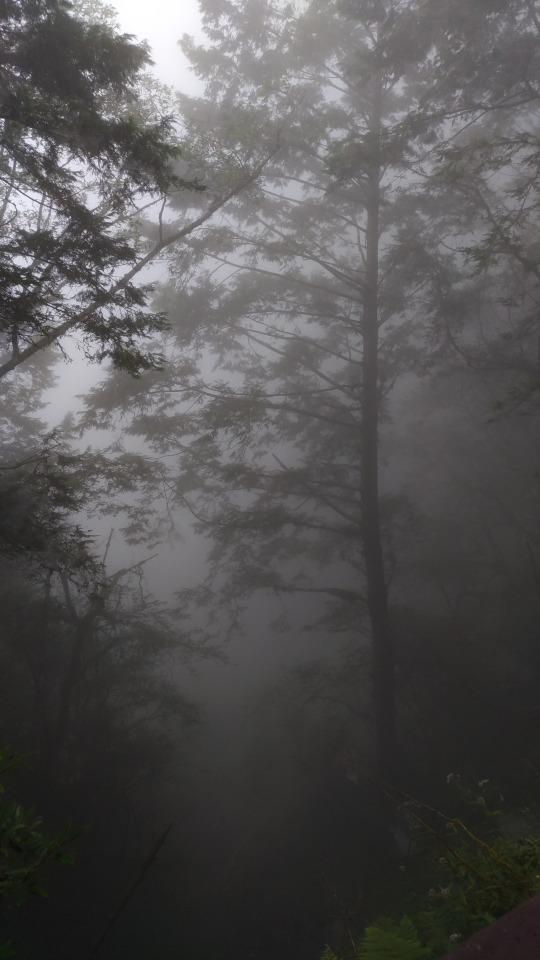
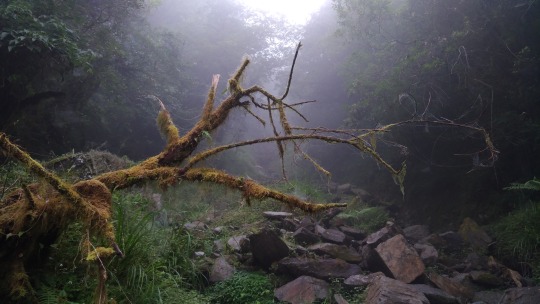
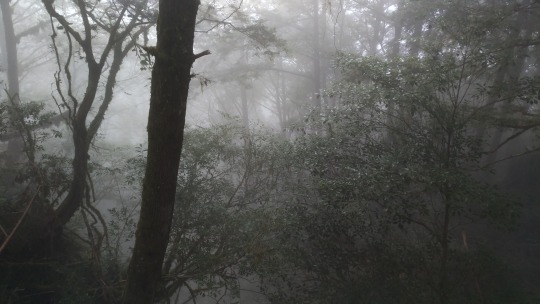
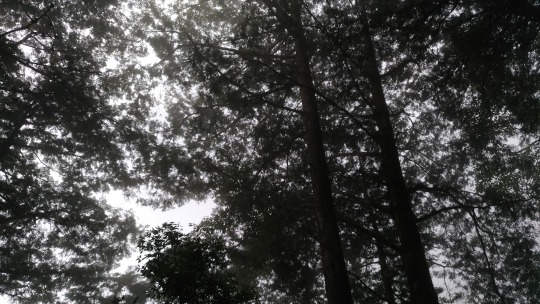
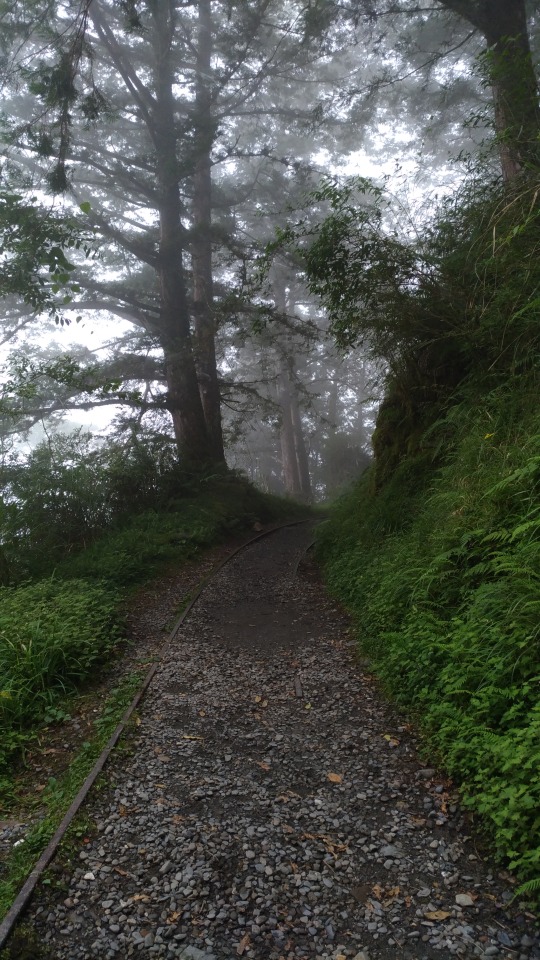


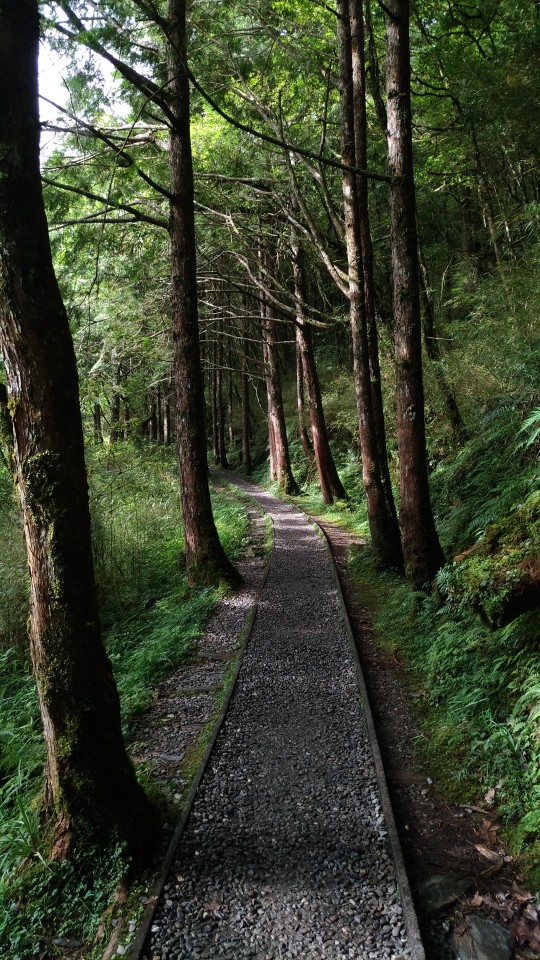
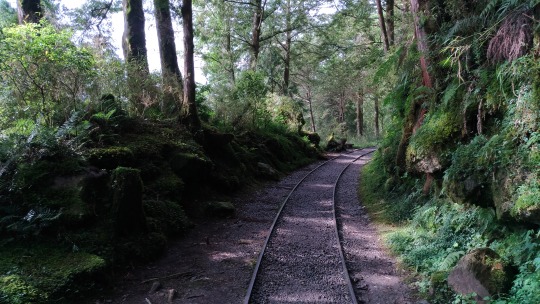
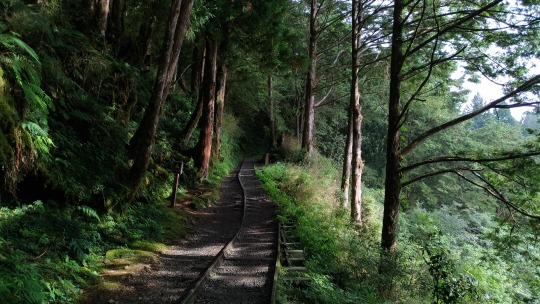

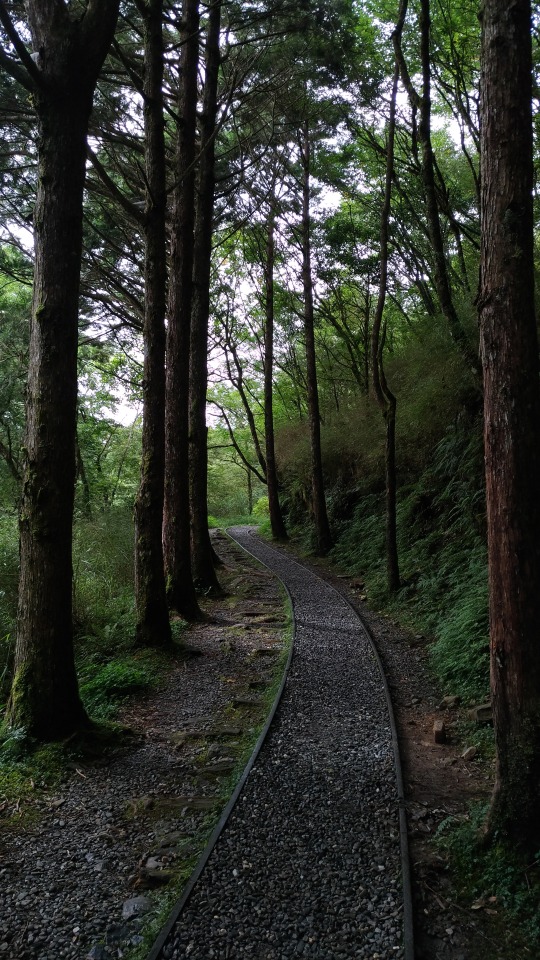
In places, you can see room has been made for two parallel tracks to allow switching of engines ...
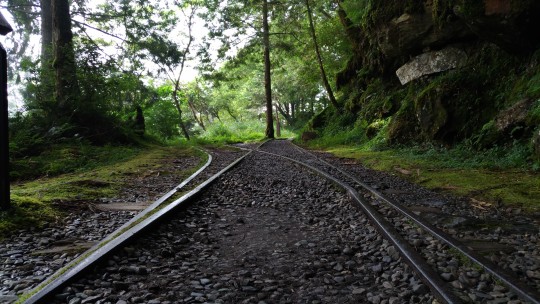
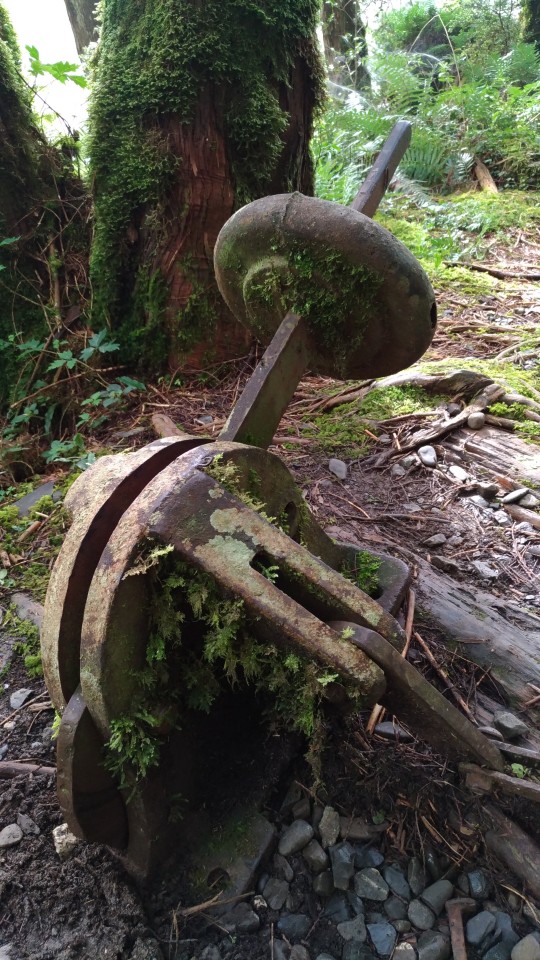

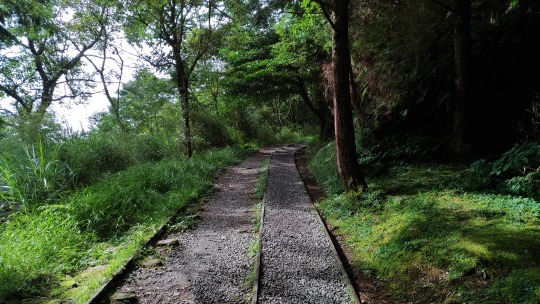
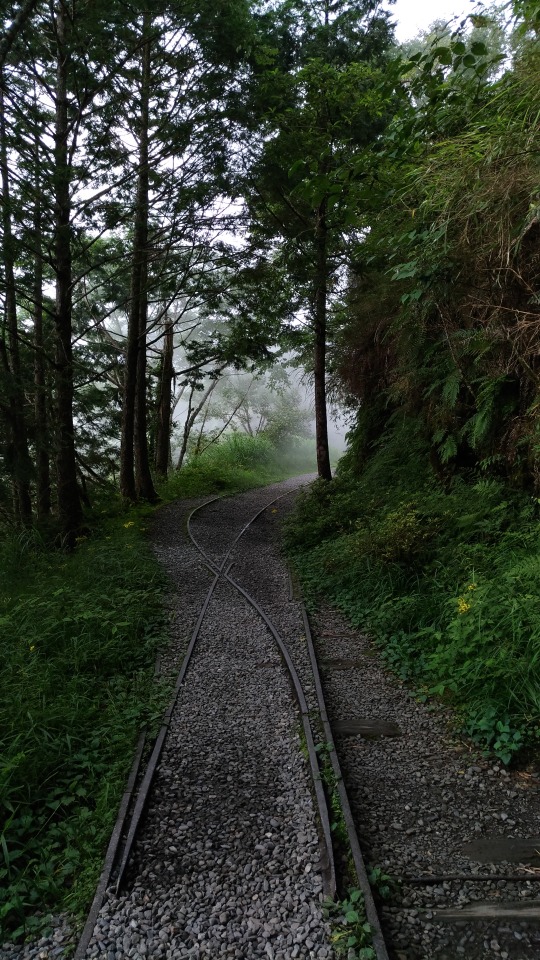
Probably what Jianqing is most famous for are the three sections of still roughly preserved railway that span across edges of the mountainside ...
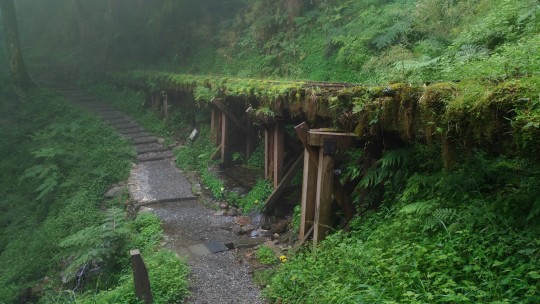
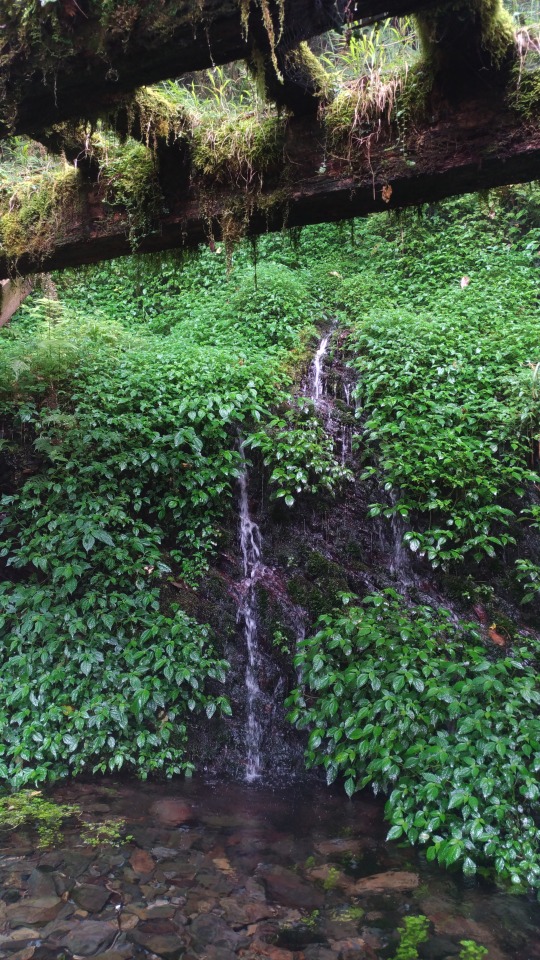

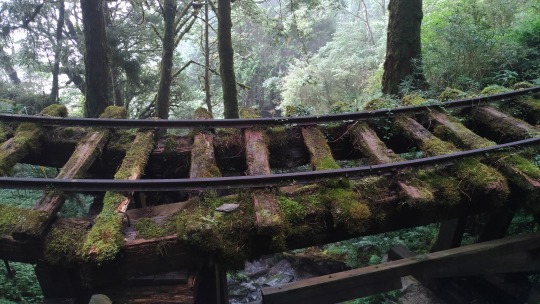
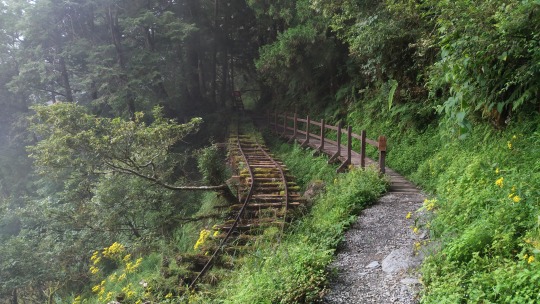
... and the bridges ...

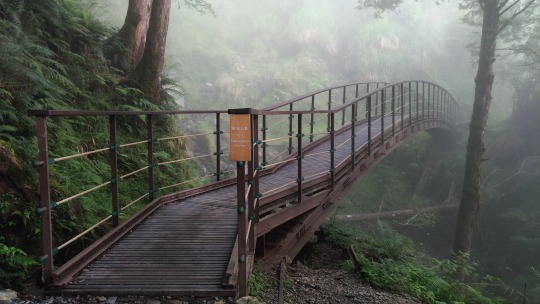
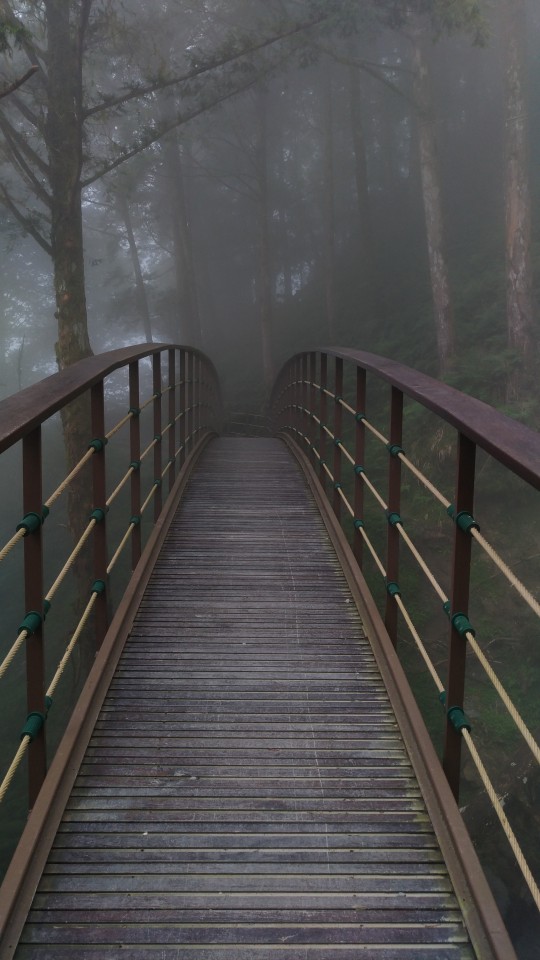

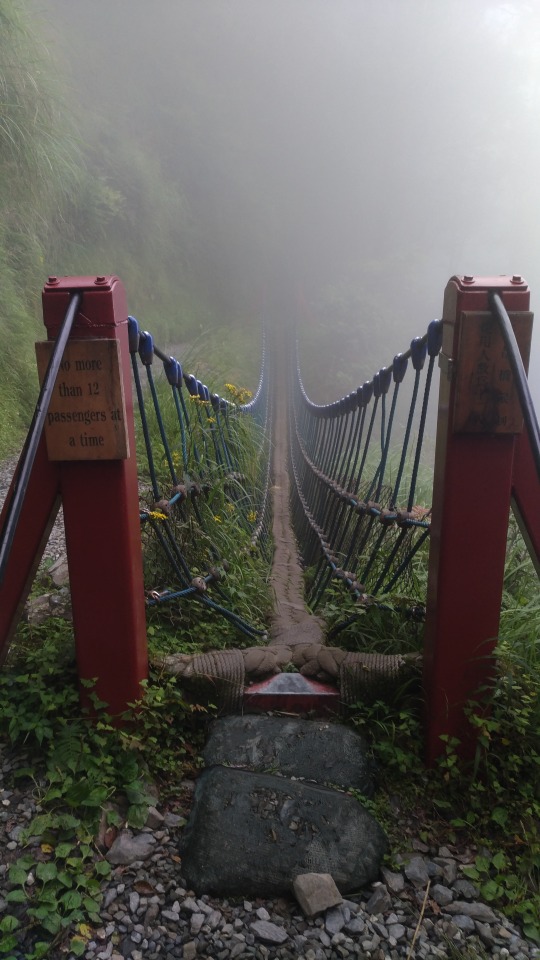
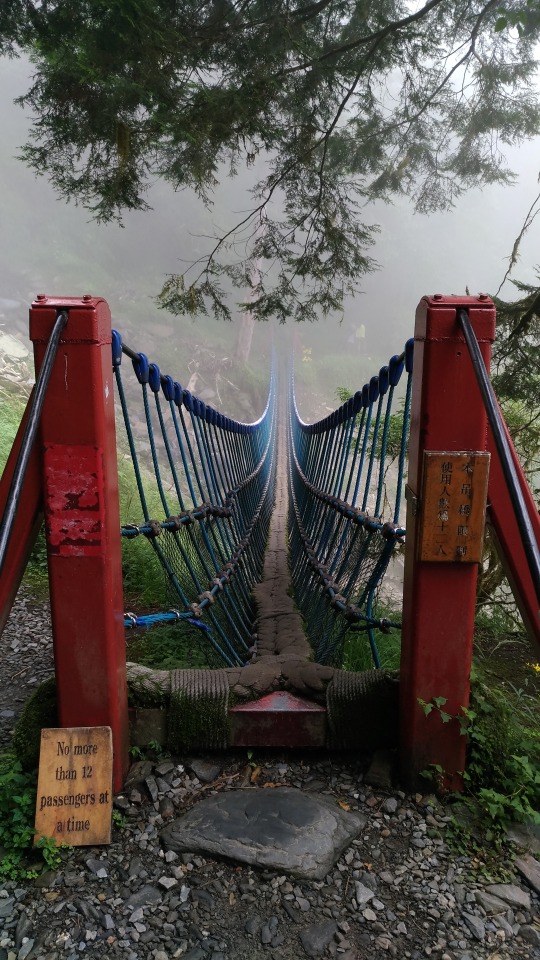
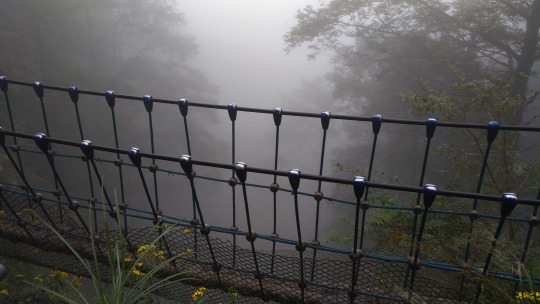
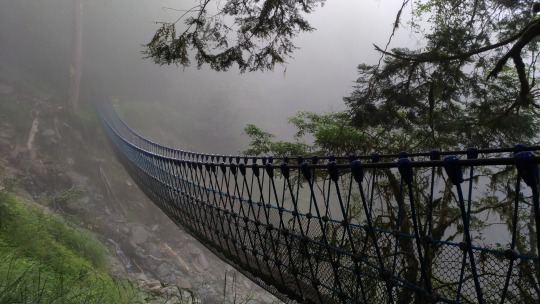
And then, rather abruptly, the trail comes to an end. As the sign below explains, the original line was an incredible 5.5km long and from this a 2.35km trail was repurposed but a typhoon in 2013 resulted in damage too costly to repair so we were agonisingly left with only 900m.

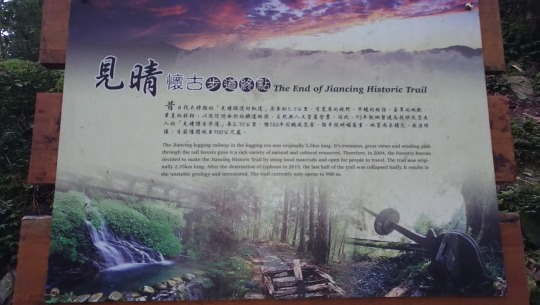
Since it was getting late, we headed off back down Taipinglin Road (太平林道) stopping off briefly at Zhongjian Visitor Centre (中間遊客中心) ...
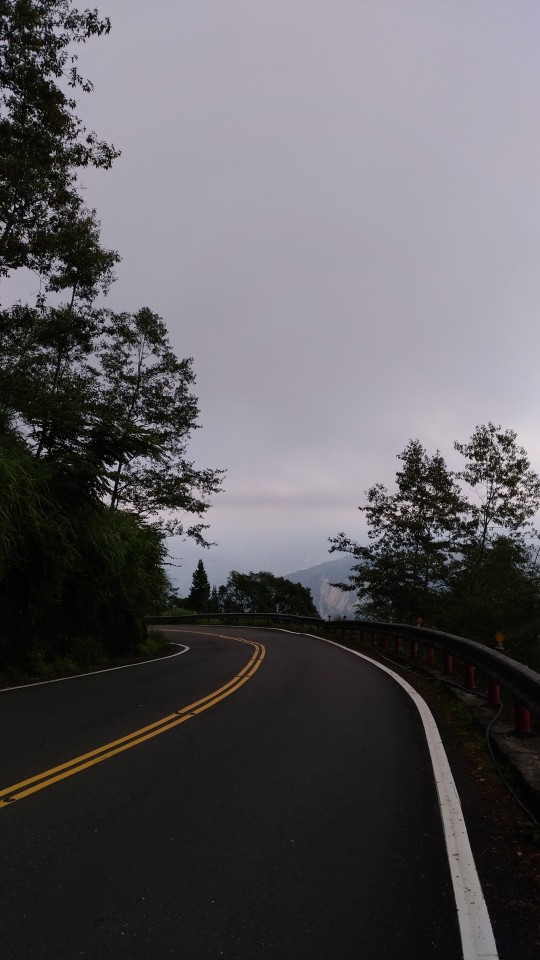
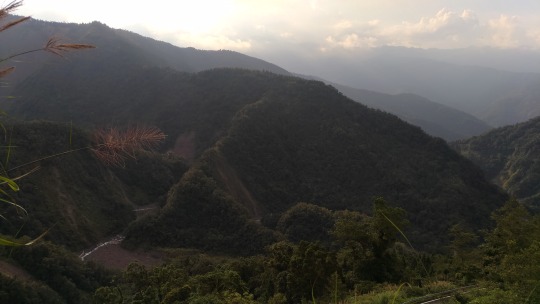
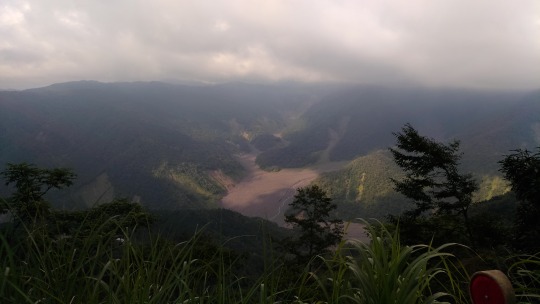

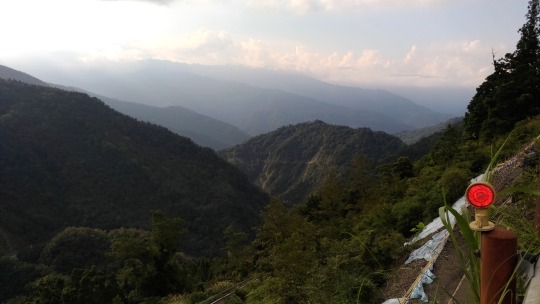
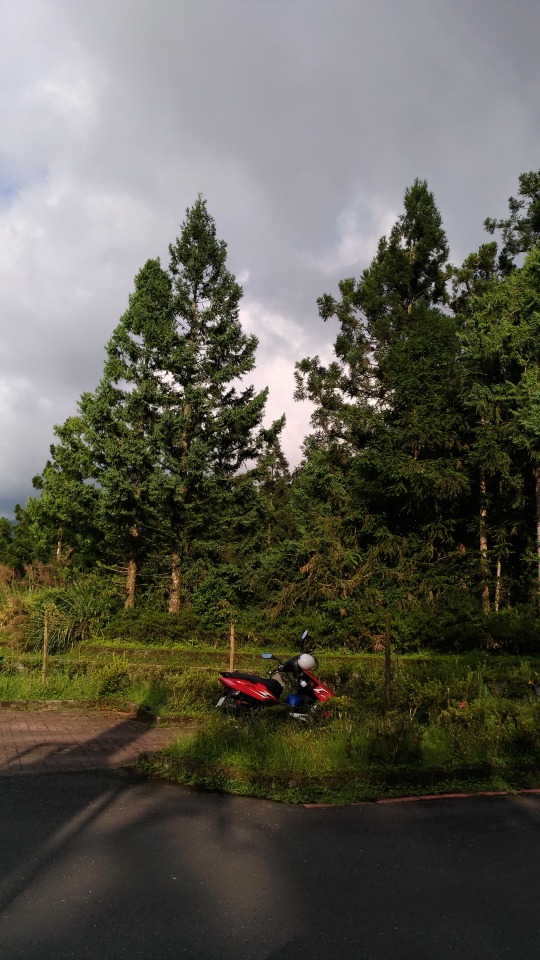
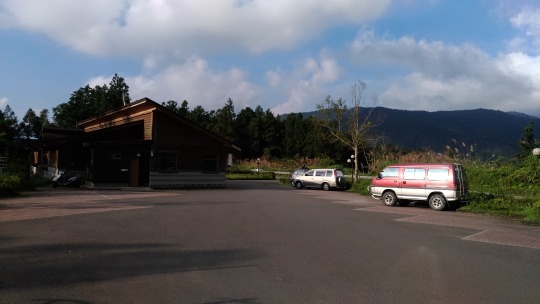
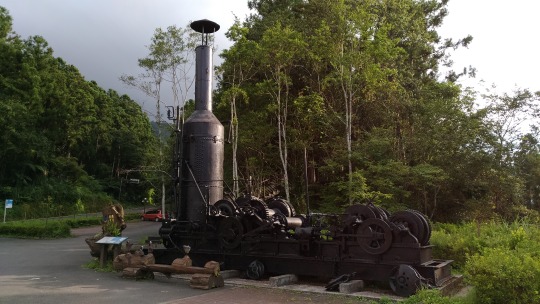
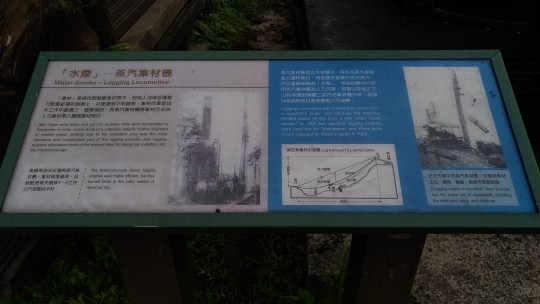
It may seem counterintuitive but going down is always a more tiring process than going up, whether it is hiking, motorbiking, or flying. The reason is that gravity is a harsh and unrelenting mistress who instantly punishes any disrespect shown to her. After forty minutes of constant hairpins on a slope that varied wildly between 1:20 and 1:10 and sore from constant braking (whilst praying the big bike and SUV racers didn’t slam into us from behind) I’d had about enough mountains for the entire day, if not the holiday. I was quite relieved then when we finally rolled into Jioujhihze Hot Spring for our last stop of the day. I don’t have any pictures here because I was too busy lying in the hot and cold pools to take any but I will say it now ranks in my top 3 of Taiwan’s natural outdoor hot spring spa resorts because it featured a) clean changing rooms with free spin drying machine b) properly paved pool area with gentle slope so no stubbing toes on jagged rocks c) reasonably and sufficiently cold cool pool and likewise the hot pool was entirely refreshing d) a nice view in the evening, and e) cheap. I will also say that it looked like Fred Flintstone had been called into life and consulted on the design. If anything you should visit just to try out the rock pools, by which I mean pools carved into single standing rocks. It was all in all just what we needed after an exceptionally long day that featured hours of mountain driving and well over 6 hours of hiking.
Below - Information boards at the hot spring spa resort highlight the attractions in the area (apologies: photos taken at sunset).
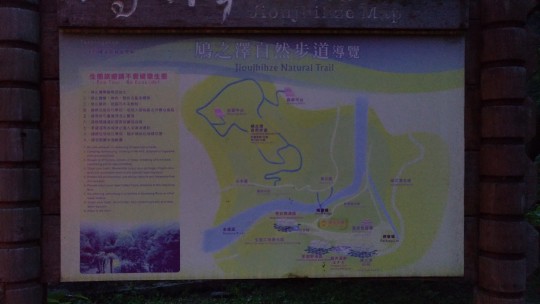

DAY 3 - SANXING / DONGSHAN
The next day we were up early-ish again with a mission to do a 3~4 hour easy gradient hike up to the Geba Waterfall, followed by exploring the farmlands of Sanxing ...
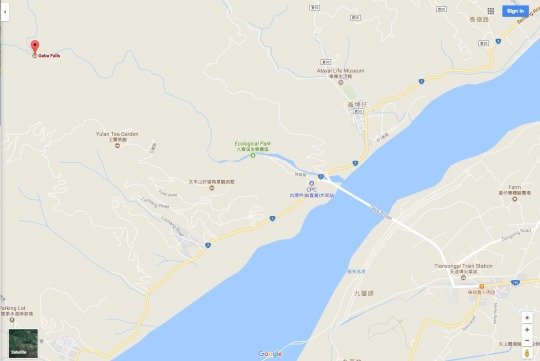
After breakfast at Chi’lan, as we sauntered back to our bike there was a brief commotion outside the main entrance. Turns out some of the local residents had sniffed out the day’s delivery of fresh fruit ...
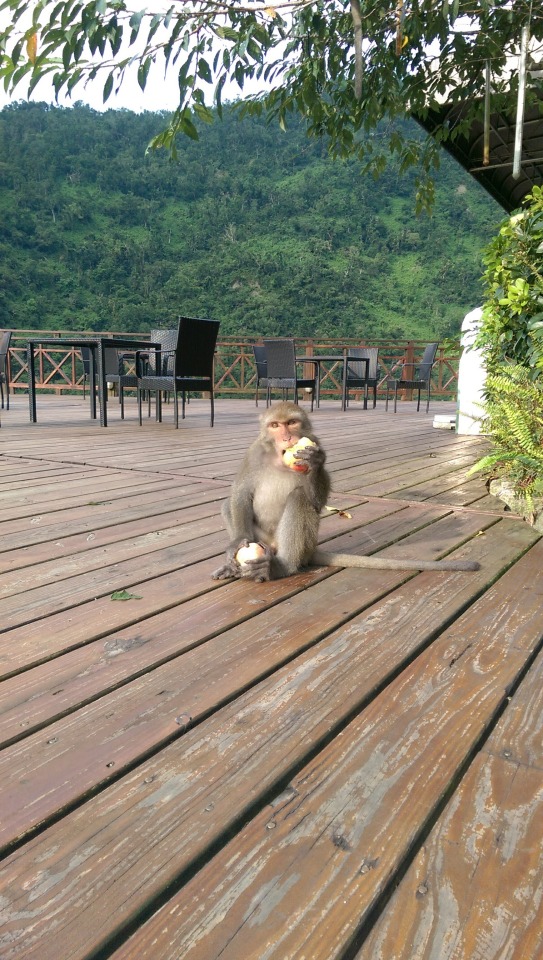

I took the opportunity of the clear morning light to get some shots of the (mock Tudor - why?) resort and the surrounding valley ...
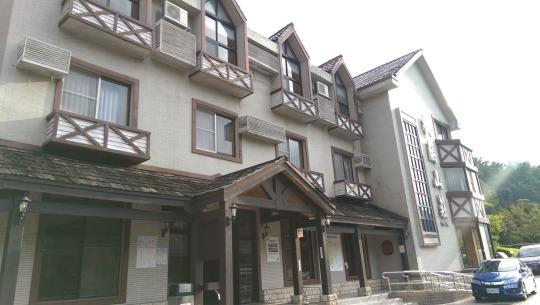
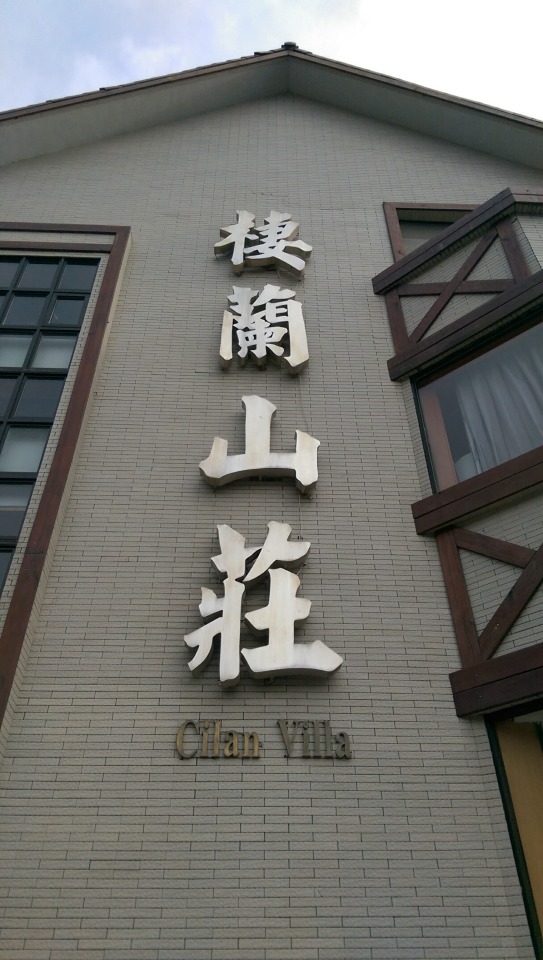
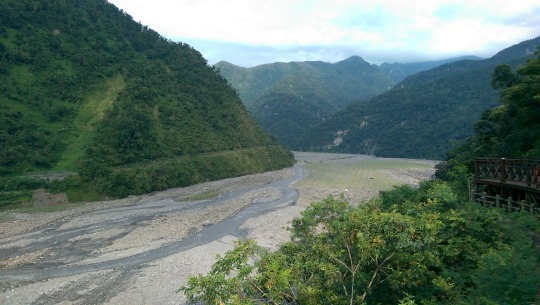
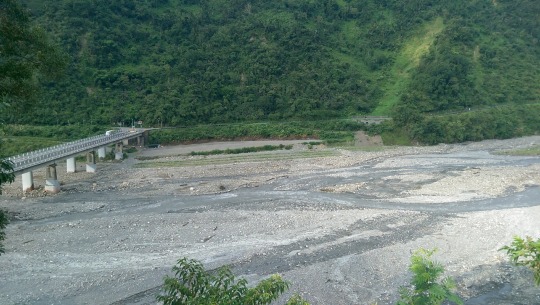
Those rows of green on the river bed floor? They’re watermelon farms, a speciality of the area. With a typhoon bearing down on us as I type I wonder if the farmers have harvested all that (weighty) fruit and how much will be lost if and when the river swells to a flooding torrent. The truck you see crossing the bridge in the bottom picture is carrying vegetables and fruit from the farming valleys in Lishan high in the mountains. The trucks thunder along the road daily. Here’s one resting up across from the indigenous village that sits at the base of the trail to the waterfall ...
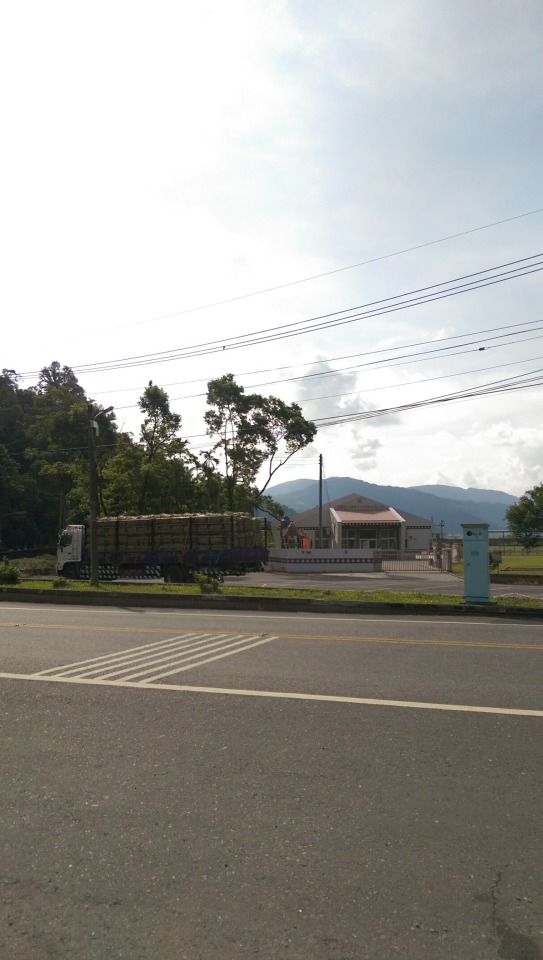
It’s a charming little village with very friendly people and their even more affectionate pets (one small cute puppy adopted EVA as his new mother on sight) ...

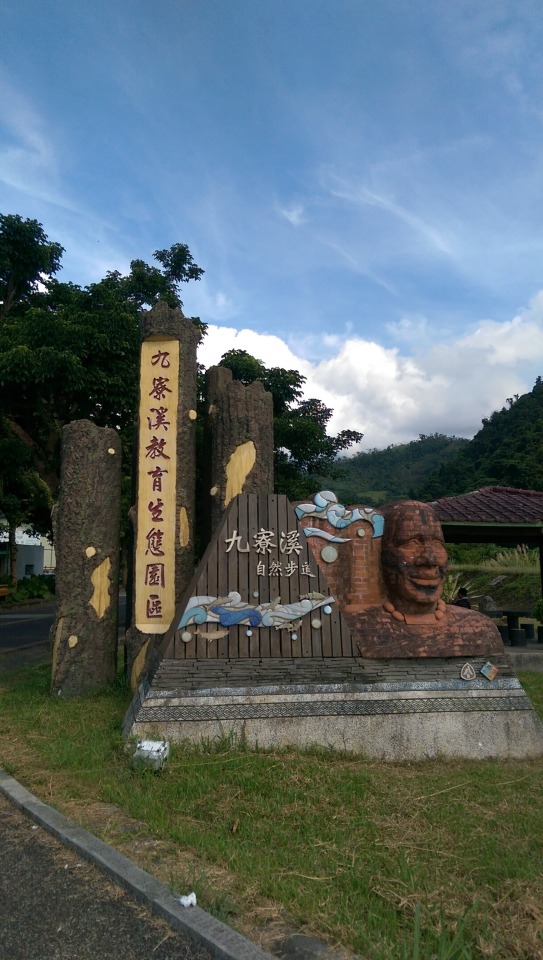
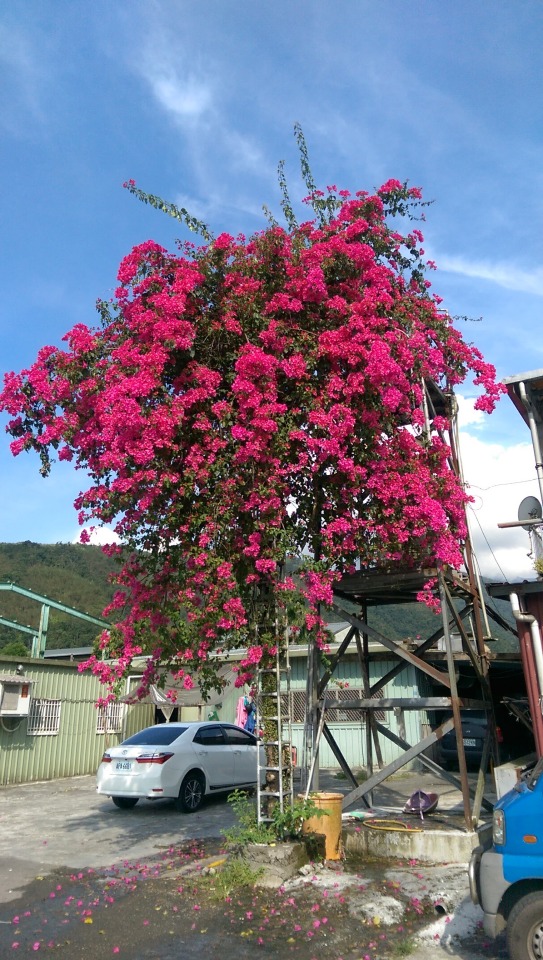
Before you get to the trail head, you walk along Ecological Park (九寮溪生態園區) which itself is very nicely maintained ...

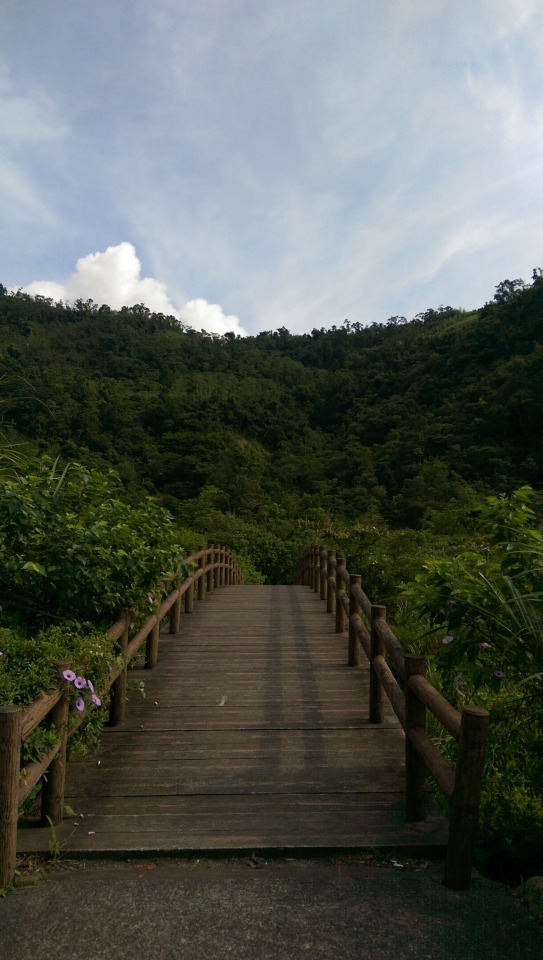
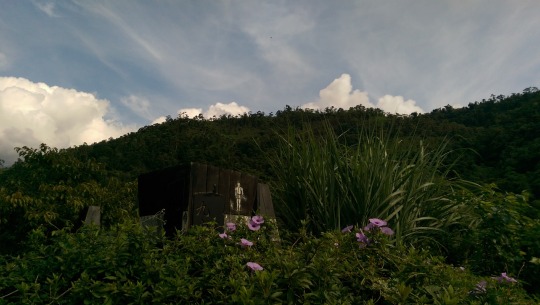
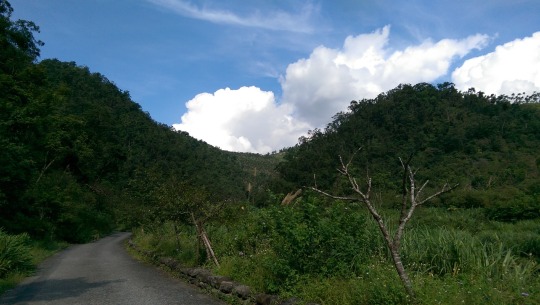

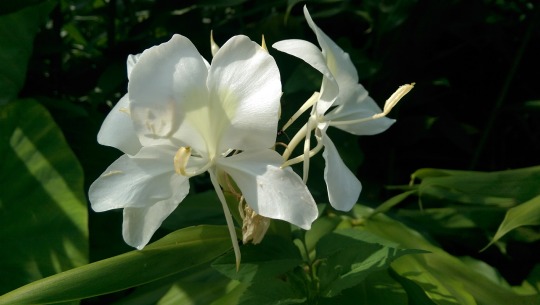
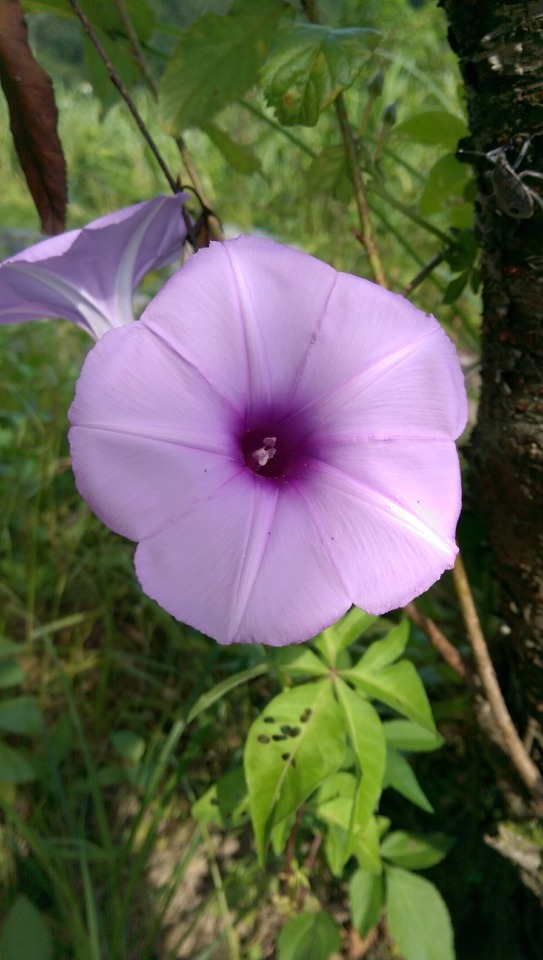
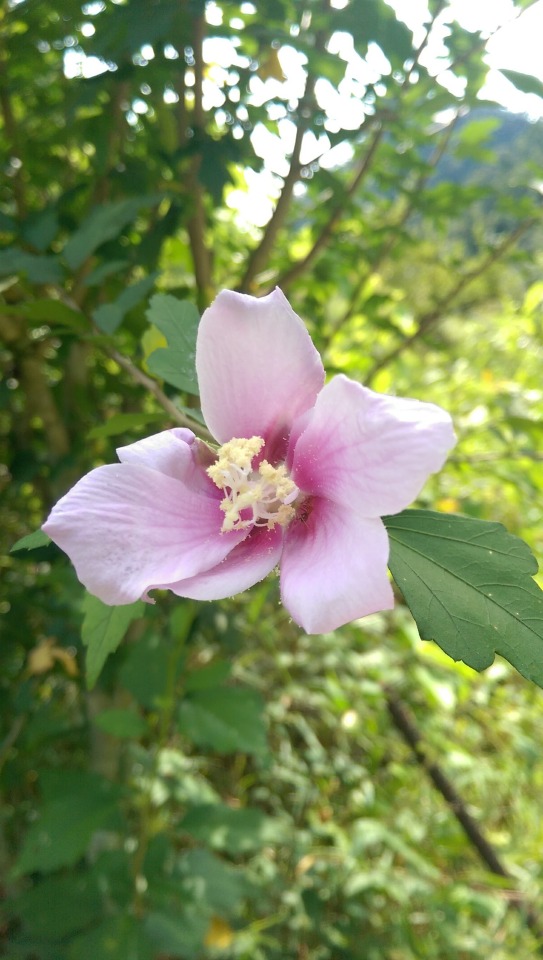
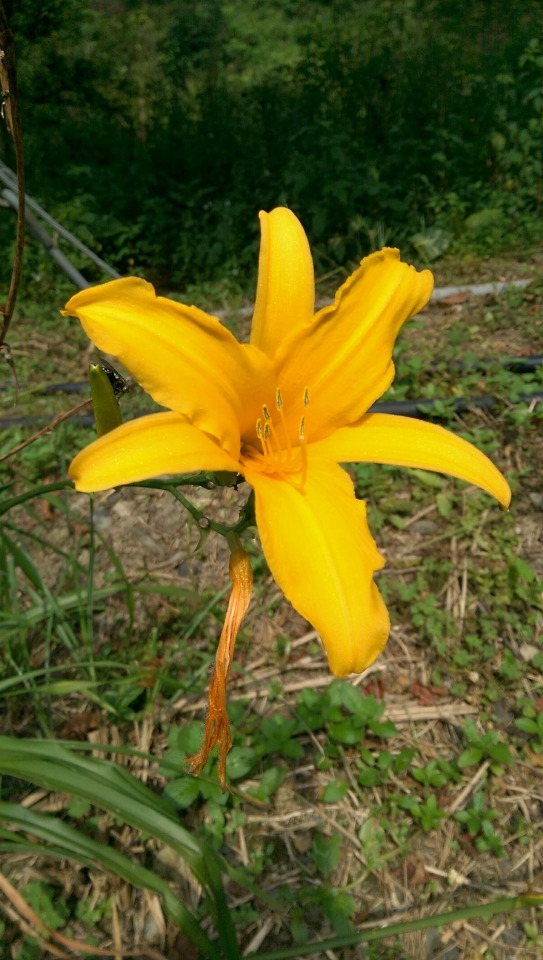

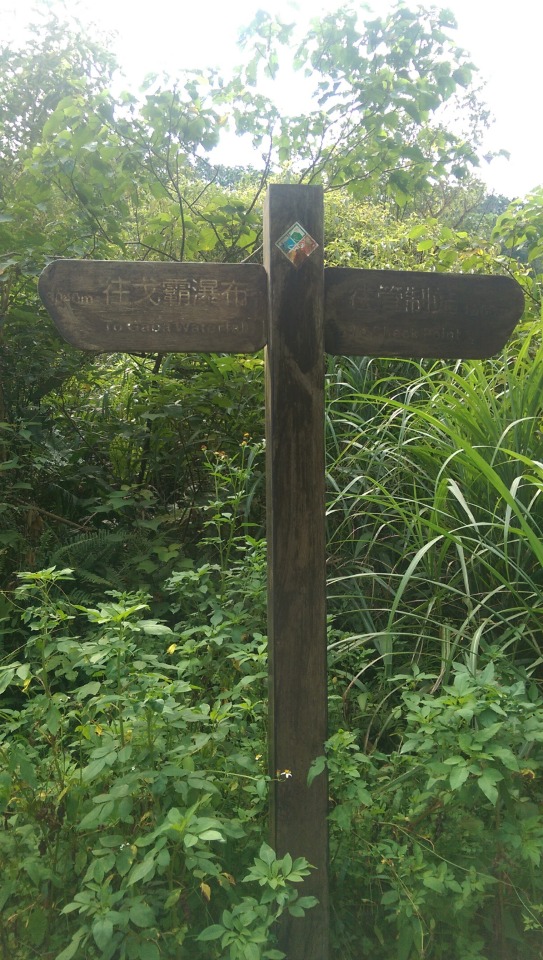



Alas ... as can be seen above the trail was gated off and closed for repairs. Only later, after we had given up and were taking a break with drinks and nibbles in a restaurant at the village were we told that the repairs didn’t mean the trial is impassable. We plan to return to complete this trail in November (and at the same time check out the Fushan Botanical Garden (福山植物園) which requires booking one month in advance). Despite this blow, we enjoyed the walk through the ecological park around the river, although the bright sun and heat, even in the morning was relentlessly intense ...

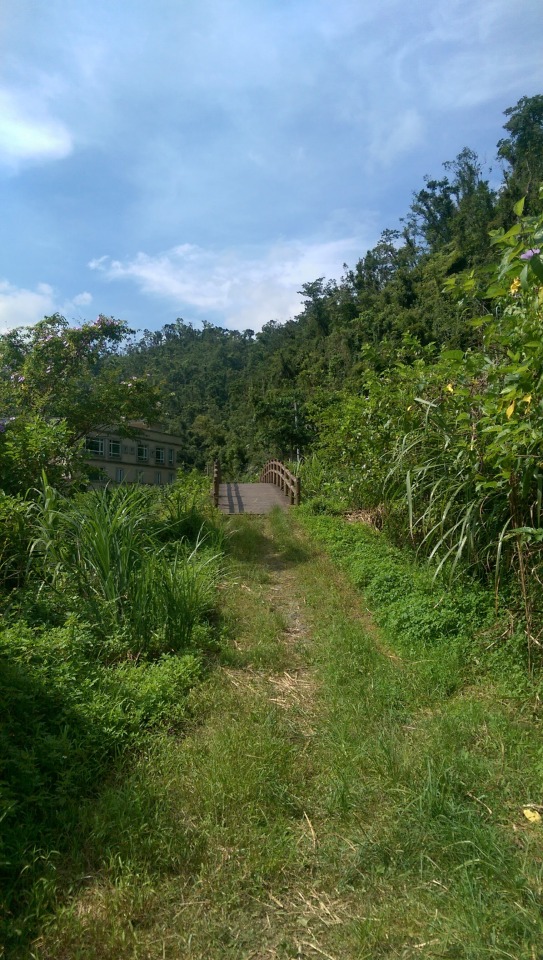
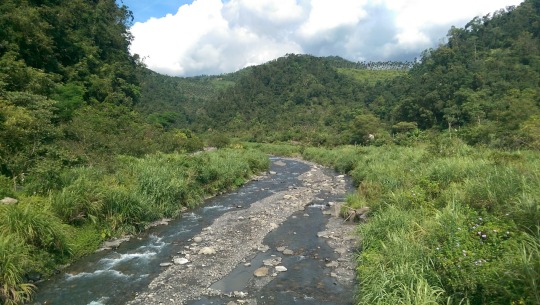
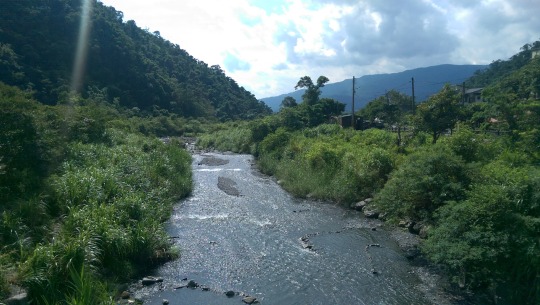
With our plan for the day up in the air, we quickly decided to check out another waterfall on the south east side of the Yilan delta, the Xinliao Falls (新寮瀑布) near Dongshan Township ...

The trail up to the falls is an easy 900m walk along the river and it’s a popular tourist location so it was quite busy despite the heat ...


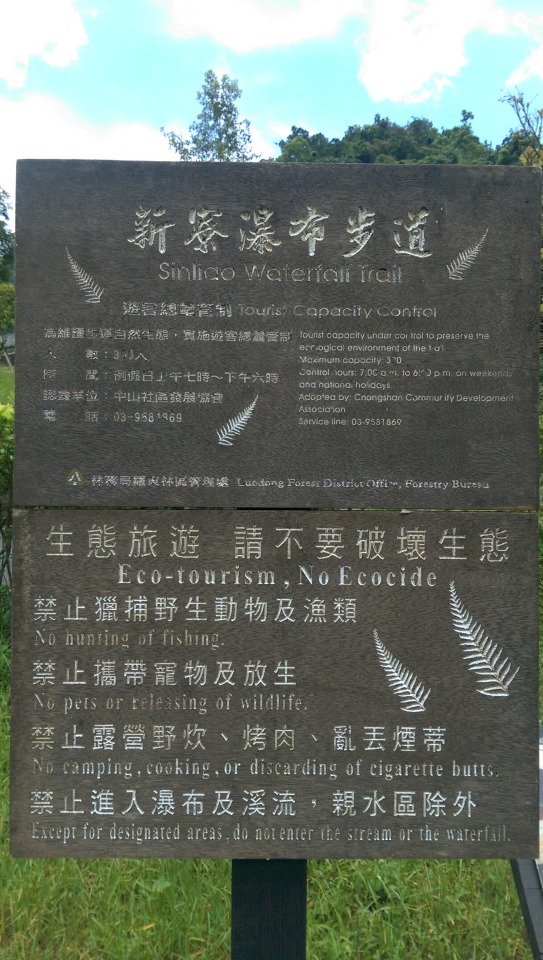
There’s a viewing platform from which to see the entire fall and the pool below it ...
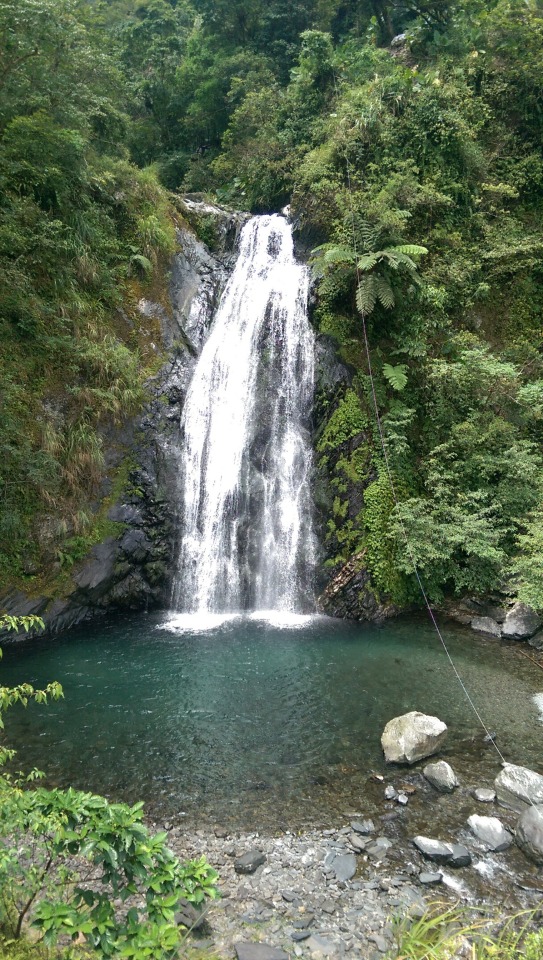
Although the path down to the water is ‘closed’, this did not prevent many people, us included, from jumping in and the clear waters were cold but intensely relieving to sit in after a hot, dusty hour riding the farmland roads ...

A group of school kids wade in the water alongside us ...

Refreshed, we briefly checked out the nearby Ren Shan Botanical Garden (仁山植物園) but since we were tired we declined the effort to walk up around it (it’s on the side of the mountain) ...

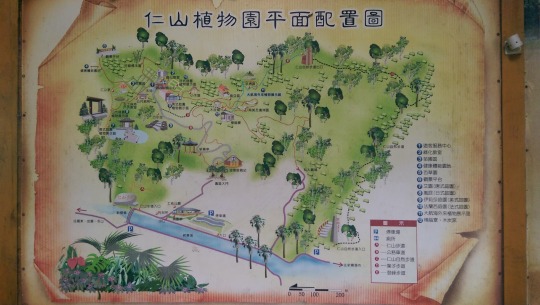



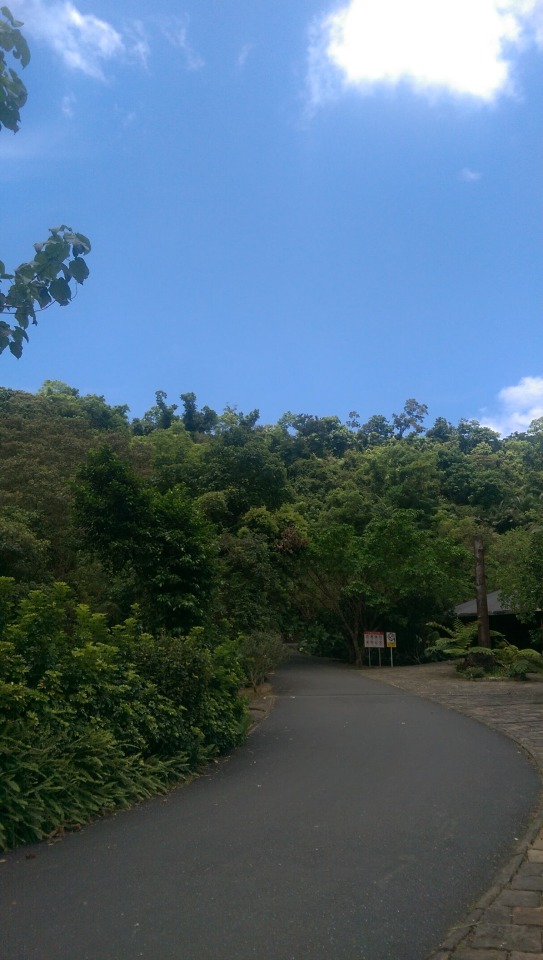
I never realised when I came to Taiwan that it had such an abundance of endemic species including monkeys, bears, leopard cats, pangolins, dolphins, and butterflies.
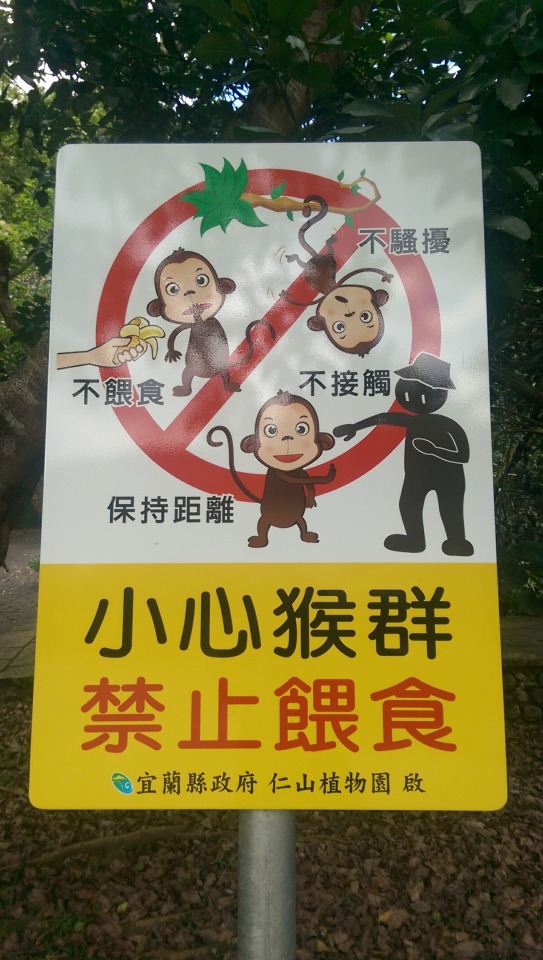
By now it was getting to be late afternoon so we decided to head back to Sanxing and check out a museum dedicated to its most famous agricultural product: the scallion ...
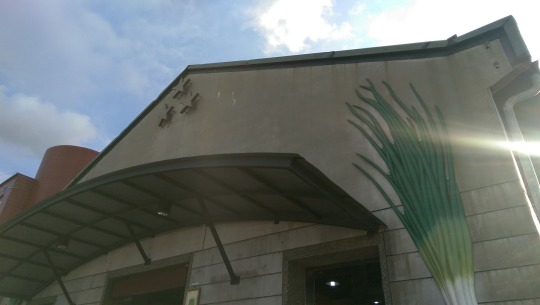
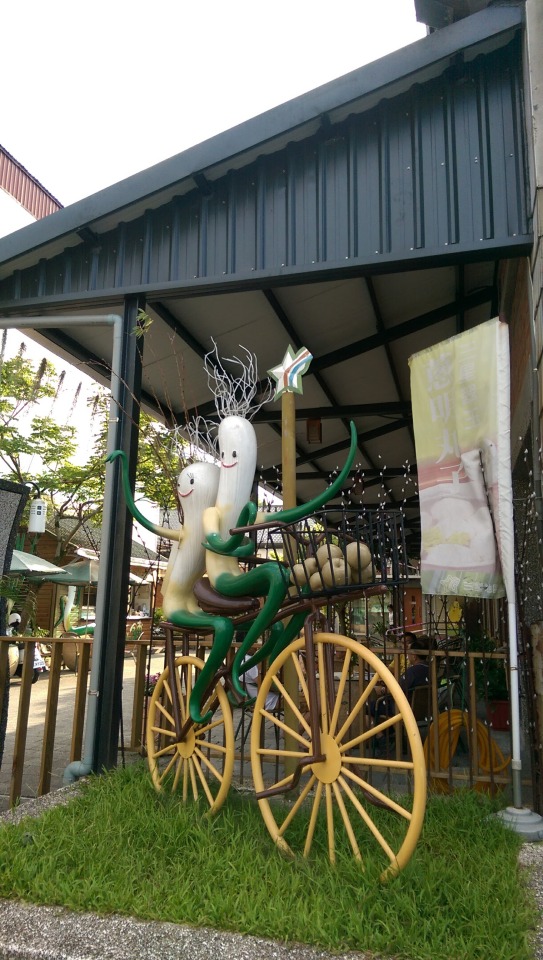

It’s amazing the variety of products in the museum shop that the scallion was adapted into. We bought scallion pepper and rode off for dinner in Luodong through the sun setting on the rice and scallion fields ...

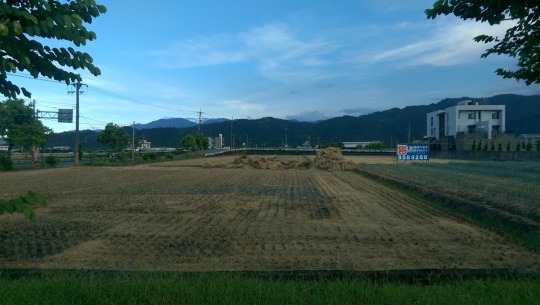



Below is where we booked our stay for the night, a delightful old Qing style three-sided farm house converted to a B&B ...
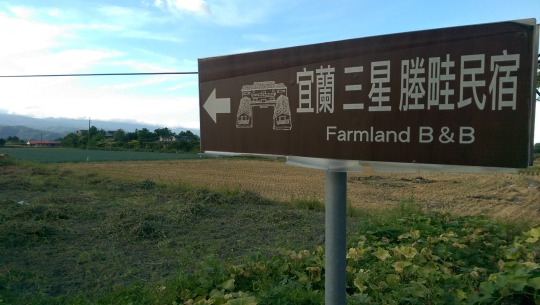

DAY 4 - KAYAKING IN DONG’AO
Having oriented ourselves the night before, we set off at about 7:30am for the small cove town of Dong’ao where we had booked a sea kayaking excursion. The road to Su’ao (over 2/3rds of the total distance) was flat and took about half an hour and then the rest of the time was spent on the visually dramatic, intensely overly used, and poorly paved, Up-N-Over the mountains on Highway 2 to our meeting point at Dong’ao Train Station (it took us exactly 1 hr 5 mins)...
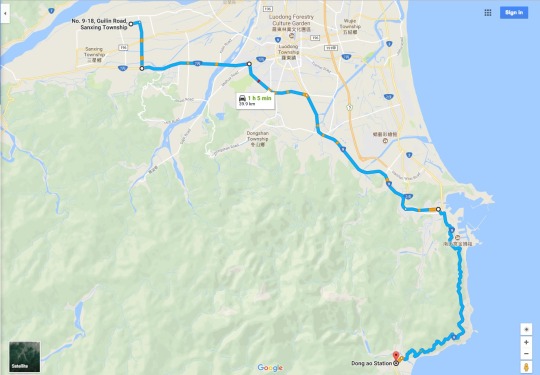
We had chosen the 9am start time which in retrospect was a bit of a mistake since that was probably the busiest time as there were about forty to fifty people in our group. Thankfully the weather was clear and the seas fairly calm.

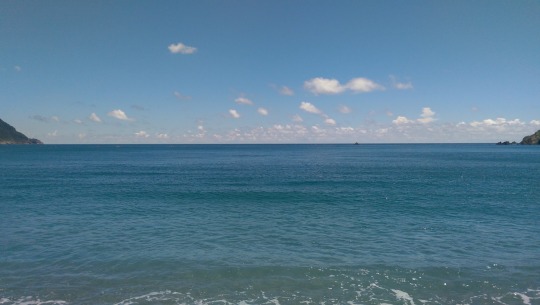
Here’s the beach, from left to right looking East at the gleaming Pacific Ocean ...
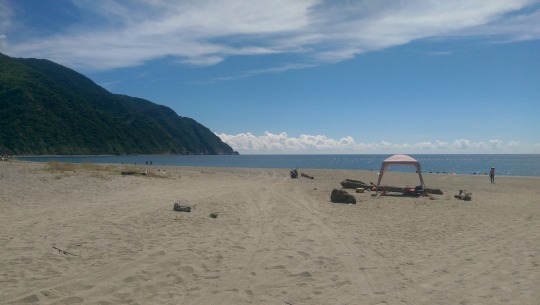

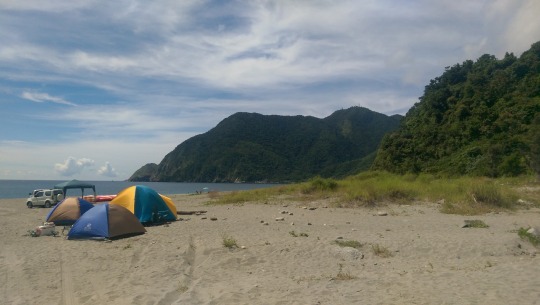
As is the case with many of the beaches on the East Coast of Taiwan, some parts are sandy but the default tends to be small stones which turn into burning rocks under the midday sun ...
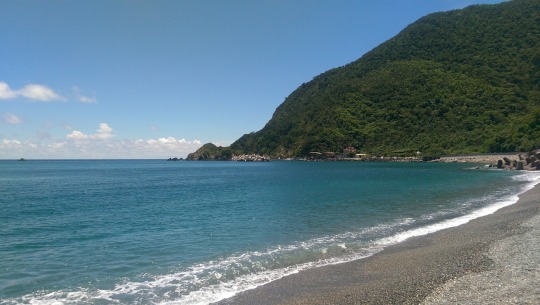
Unfortunately, it turns out that an earlier group had gone out and been battered by winds and were unable to return in time and thus we were short on kit, thereby necessitating a motor boat to go out and tow them back up the coast, and so we had to wait on the beach in the burning sun for over an hour watching other groups take to the water and leave us behind (we were split into four groups). Finally, the company decided to put us on the back of the truck and drive us up the bay for a starting point closer to where we would be kayaking, thereby reducing our time paddling out there (and the time we had rightly paid for!). Here EVA gets ready to board our inflatable speedy kayak ...
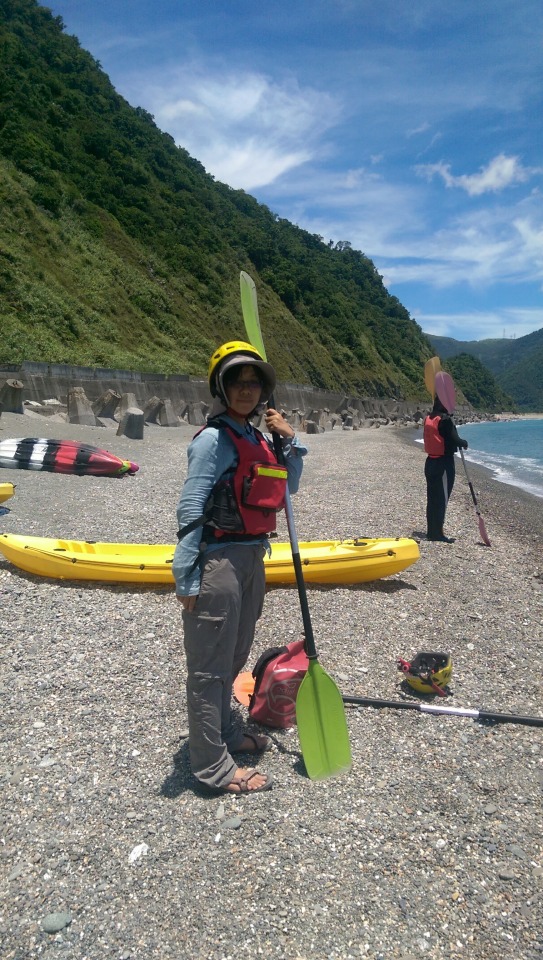
And then, finally, we were off! ...
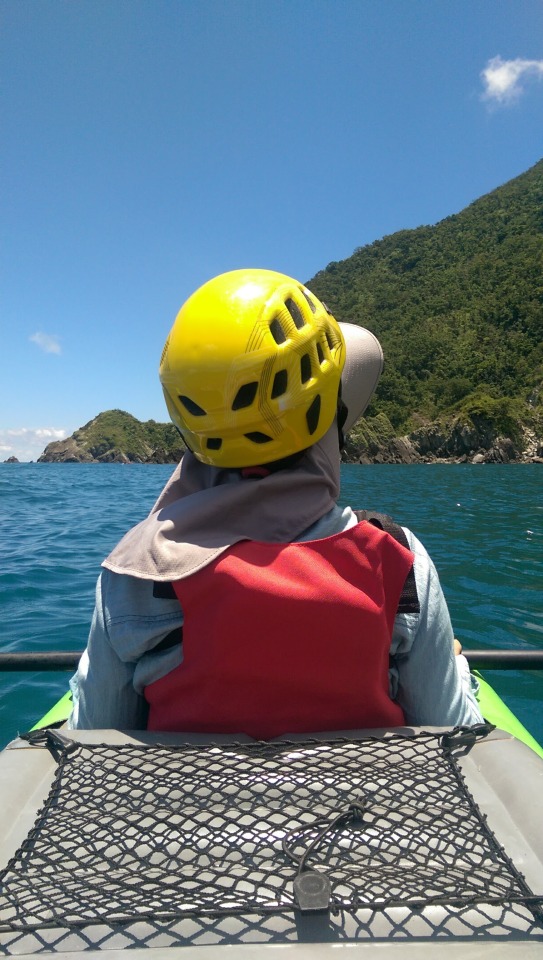
The view of the bay and the mountains behind it from the water was spectacular ...
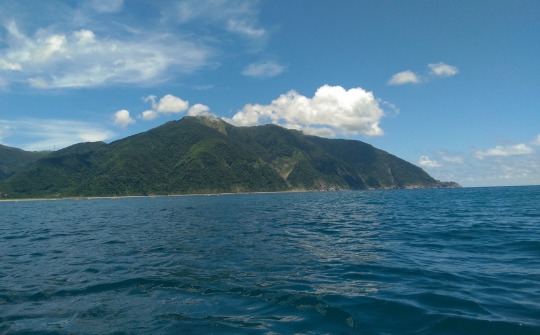

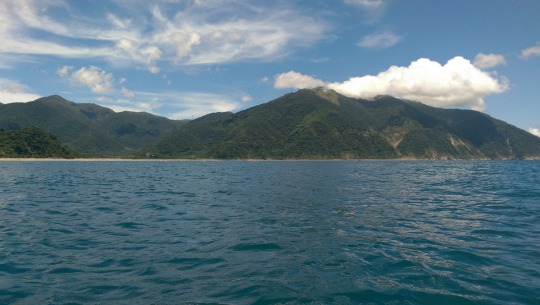
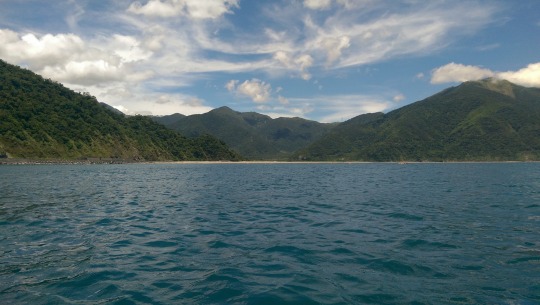
There’s a little shallow cove that we paddled too which features a small cave ...

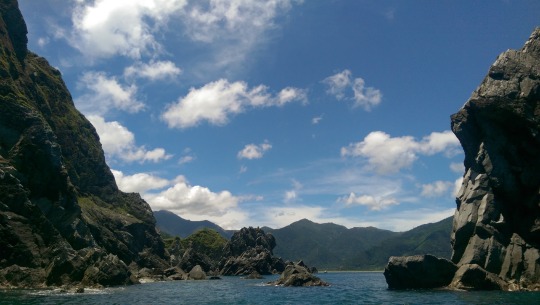

Some people swam into the refreshing, clear waters, and we took group photos of all the kayaks strung together whilst we played around trying to stand up and balance each other.

One of our two guides. The clever people cover themselves from head to toe because it takes about 10 minutes on the water to start burning ...

This prominent solitary rock at the entrance to the cove struck me as having curiously anthropomorphic features ...

And then, it was time to go back to the shore. Good fun but limited in variation. The company do offer trips out to more dramatic coves further away and dawn and dusk trips. maybe we’ll try that next time or kayak somewhere else. It certainly seems to be a holiday activity that rising in popularity in Taiwan recently.
Back on the hot beach and soaked in sea water having failed to make a competent shore landing without falling in the surf, we decided that the next destination should be Dong’ao’s famouse natural cold springs about 5 minutes bike ride from the Train Station. I didn’t take pictures there but there’s lots online about it . Three things made this location memorable. Firstly, although it sounds a bit industrial, the railway bridges over the cold springs are an ideal place for the train spotter to watch all the different locomotives shuttle between Yilan and Hualien, from local slow trains to the new Taroko and Puyuma Expresses. Secondly, thankfully there are a number of stalls selling food one of which was a lady doing BBQ Taiwanese sausage that hit exactly the right spot after hours on the beach and sea. Finally, a note about the water. It really is cold, and by cold I mean take your breath away icy. I cleaned my sunglasses in it and they remained frosted for about ten minutes after I took them out of the water. I wouldn’t recommend just diving in, unless of course you like shocks to the system. I’ve been in many cold pools (including nearby Su’ao) in my time in Taiwan and this was pretty much the coldest. It made the Xinliao falls feel like a hot spring. All that said, my god was it refreshing. Final note. the cold springs are a major Taiwanese tourist spot so come ready to share the place with the screaming hordes ...
Sated and comfortable again, we headed back up Highway 2, stopping to take pictures of the stunning panorama’s along the coast ...

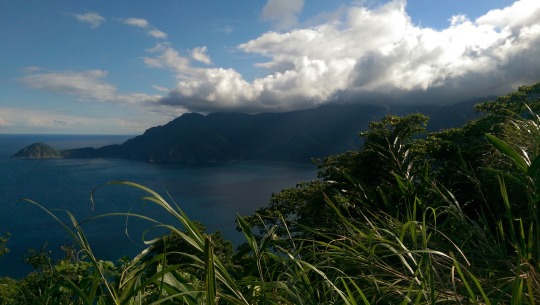
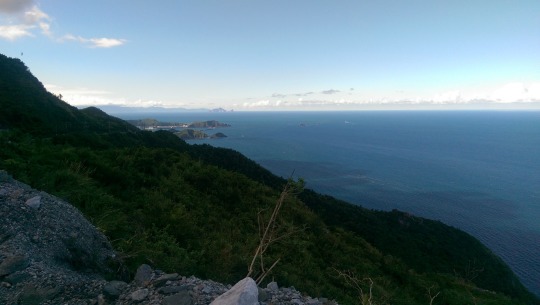
See those rocks jutting out? That marks the busy ports of Nan’ao and Su’ao from where you can even see Turtle Island in the distance ...
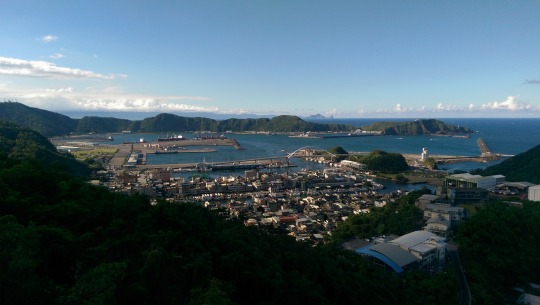
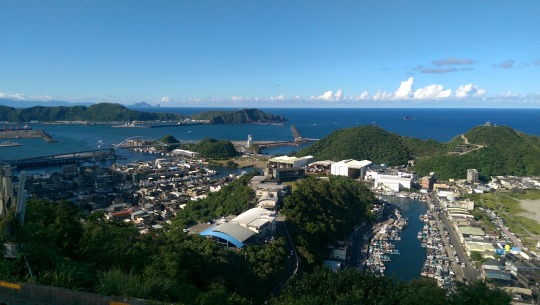
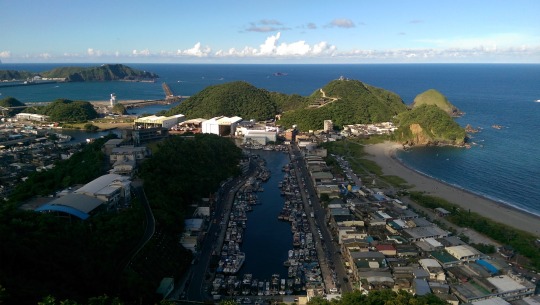
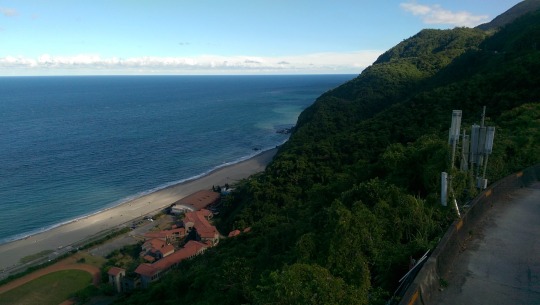
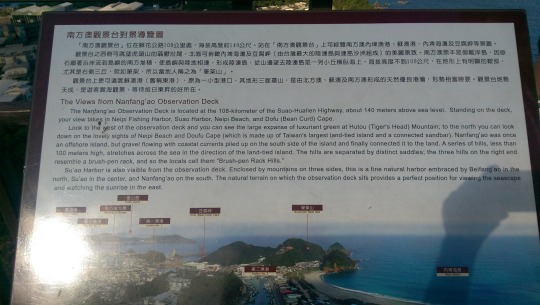
Finally, we rode back to Luodong and met up with our CouchSurfing hosts who showed us their favourite local vegetarian restaurant (we had actually been there the night before also but the food was so good we were happy to eat there again) and then they took us out to the beach to hang out with their friends around a beach fire under the stars and a flaming huge moon. A perfect end to a long but stimulating day.
DAY 5 - MINGCHI AND HOME
Since we wanted to get back home with enough time to unpack and relax, we decided on only two activities on our final half day in Yilan, a visit to the Atayal Life Museum (泰雅生活館) very close to the Geba Waterfall and an exploration nearby (ish) to find a natural hot spring we had learned about. The Museum was well constructed and almost entirely empty so we sauntered around at our leisure ...
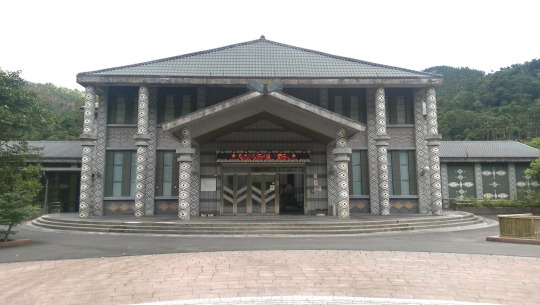
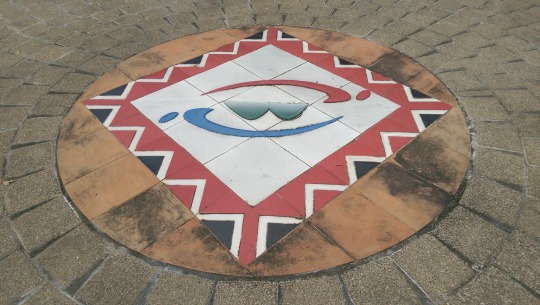

The information boards below detail both the various indigenous groups in Taiwan as well as research showing that Taiwanese indigenous groups may have been the origination of a group of peoples who later colonised a vast area of Austronesia stretching from Sri Lanka to East Island. A short note here. It is an egregious and widespread error to use the term ‘Austronesian People’, one that I often see on blogs and in media. The term ‘Austronesian’ refers to a language group whereby ethnographers and anthropologists found linguistic commonalities between diverse groups of people across this area, suggesting a possible shared language root or origin thousands of years before. In the time that has passed, different groups of people such as the New Zealand Maoris, Australian indigenous, and Taiwanese first nations have developed their own specific languages, cultures, customs. Inside Taiwan alone, there are at least fourteen different languages, many of which are mutually unintelligible. There’s no such thing as an ‘Austronesian people’ today.
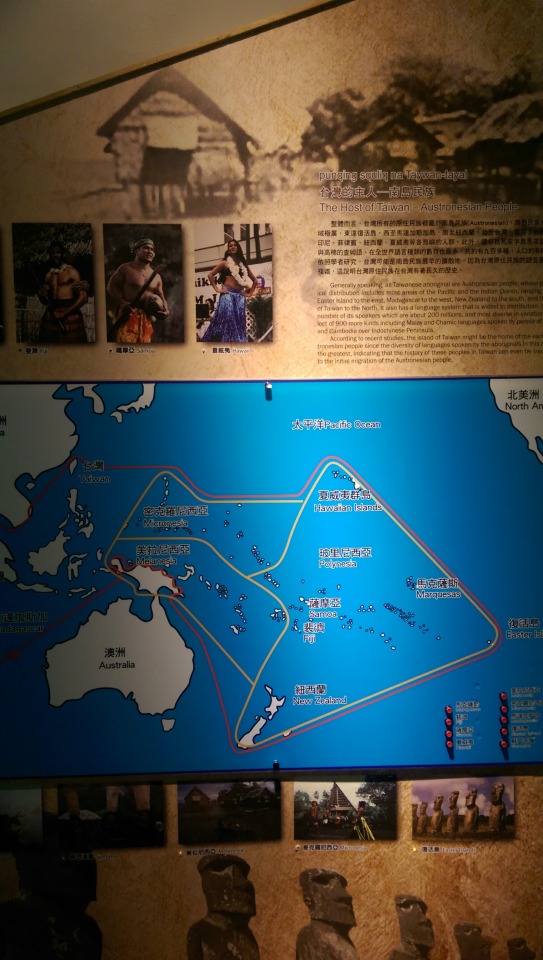

Atayal house construction and model examples ...


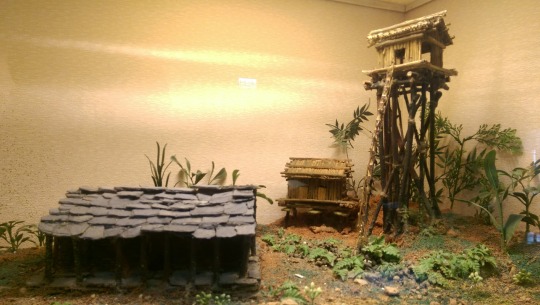
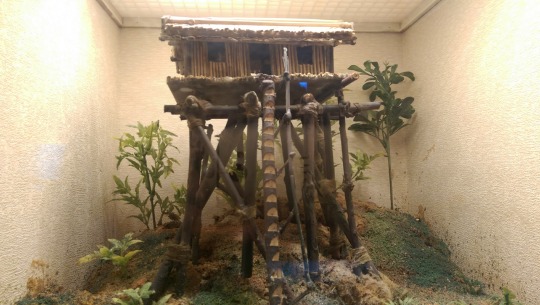
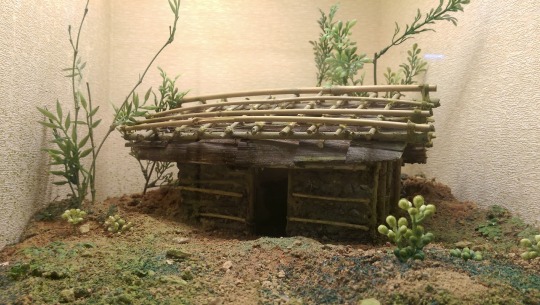
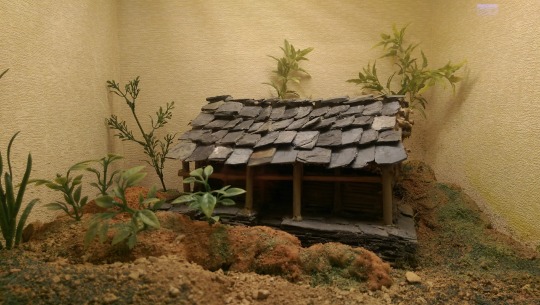
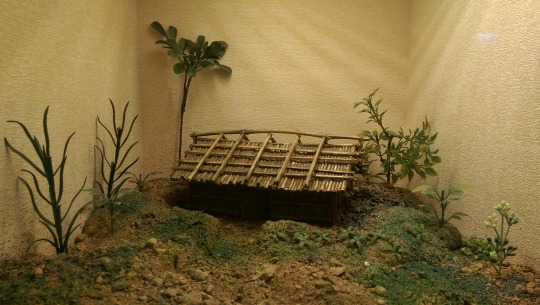

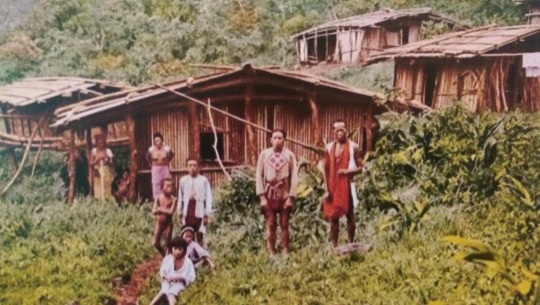
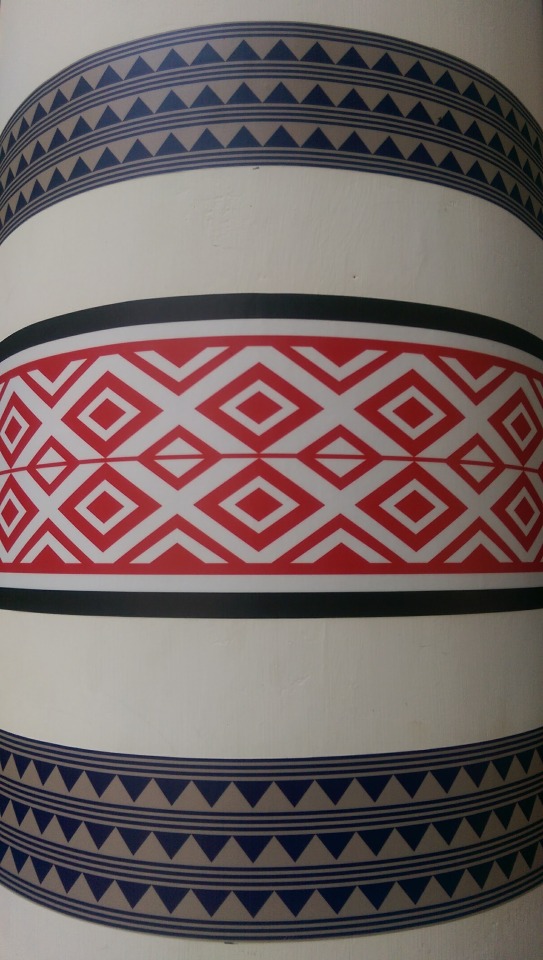
This was the section where people could dress in traditional Atayal clothing and have pictures taken. We declined to participate. (We did however make some bead keychains, which now adorn my key bag.)
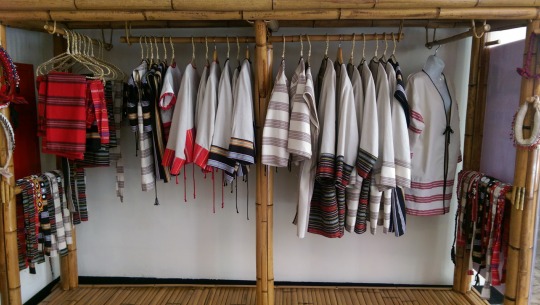
The Atayal are perhaps the largest and most geographically widespread of Taiwan’s indigenous groups and there’s also a museum dedicated to them in Wulai that’s also very instructive.
After this, we drove up the valley to the Fan Fan natural hot spring but after arriving and not being sure hoe exactly to get to them, we abandoned that idea and instead went to another known hot spring location nearby where Highway 7 meets with 7甲. To get there, turn off 7甲 up Highway 7 and almost immediately you see this little temple and turning off to the left ...
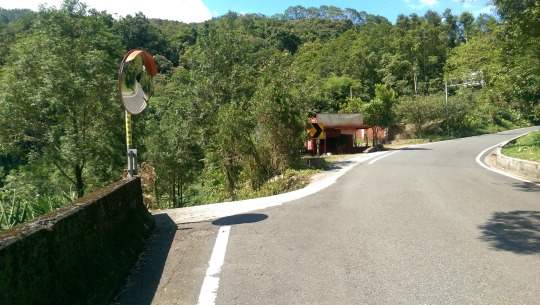
Turn down that steep rough concete road until to you come to a suspension bridge where you park up and walk from there ...
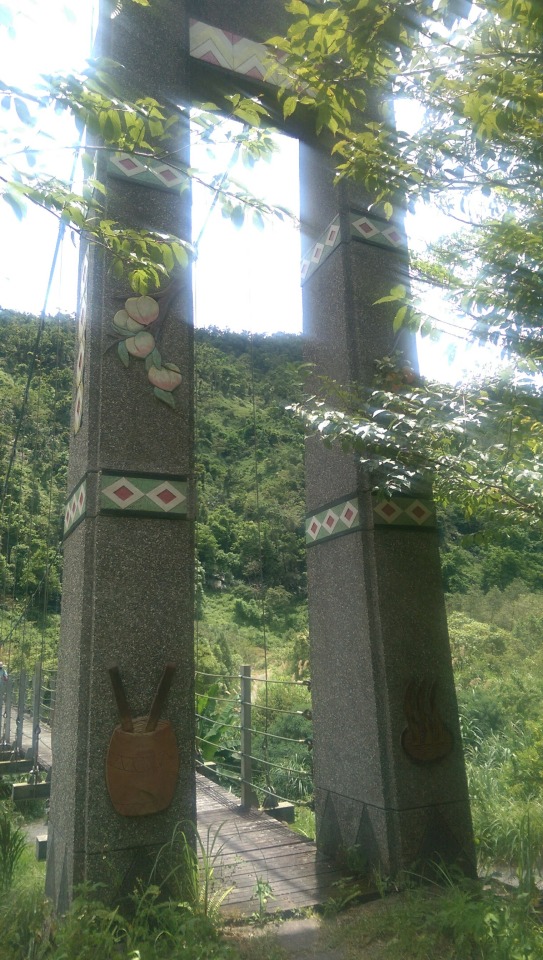
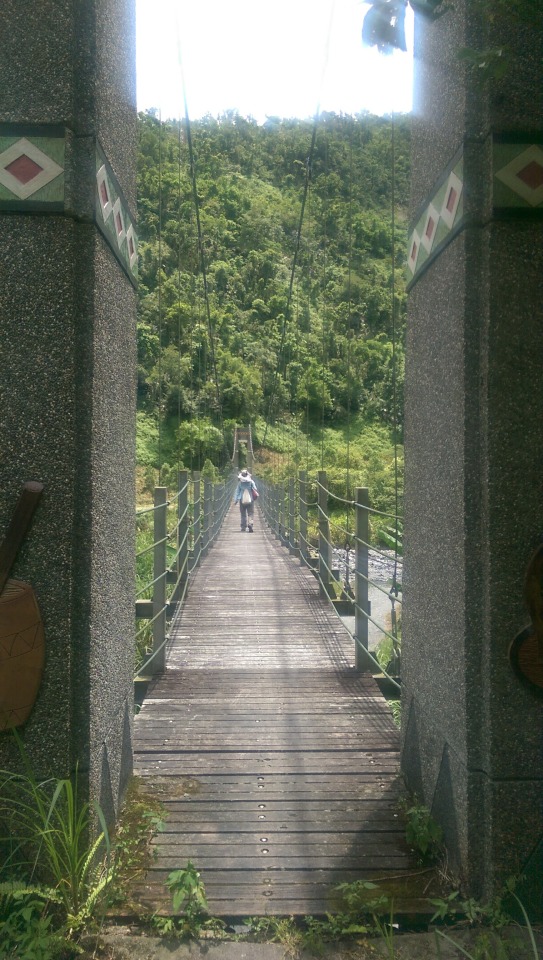
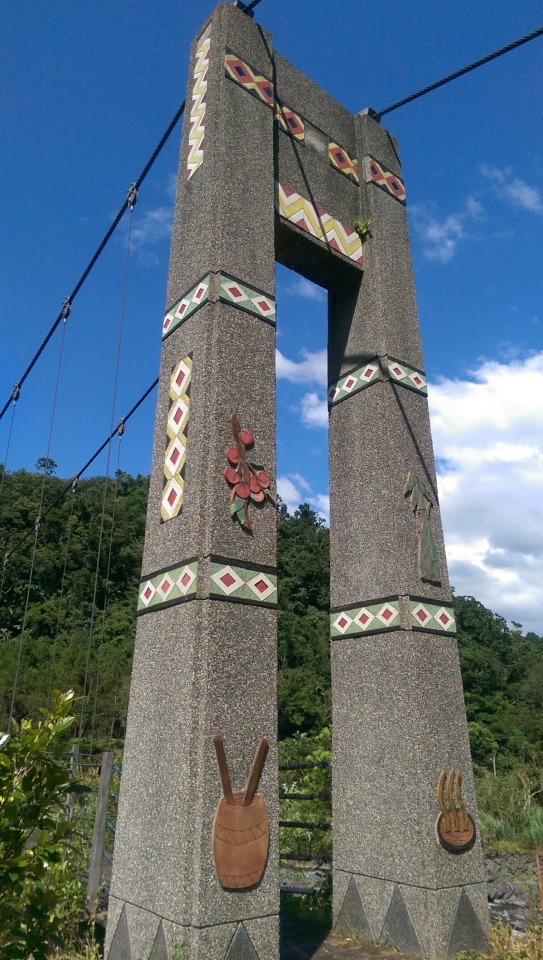
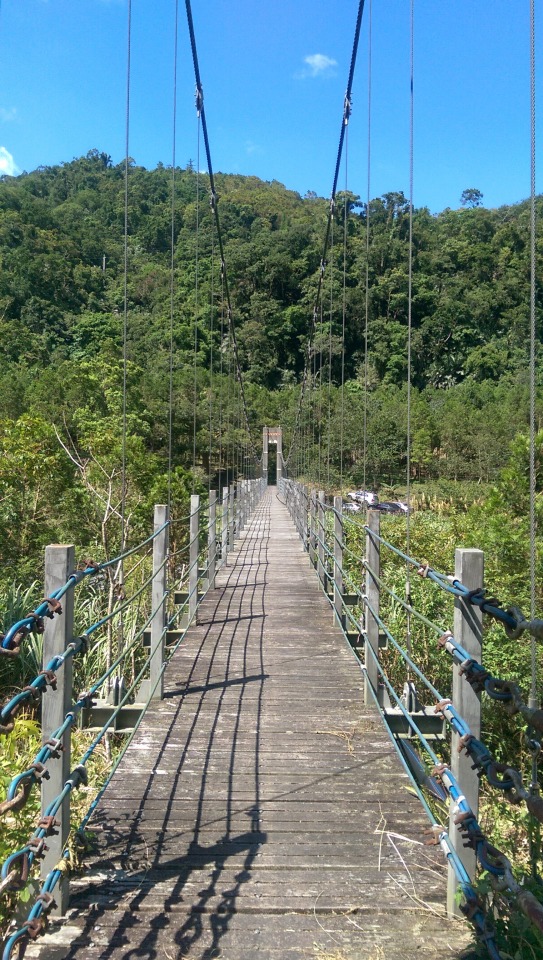
Walk along the path through the orchards ...
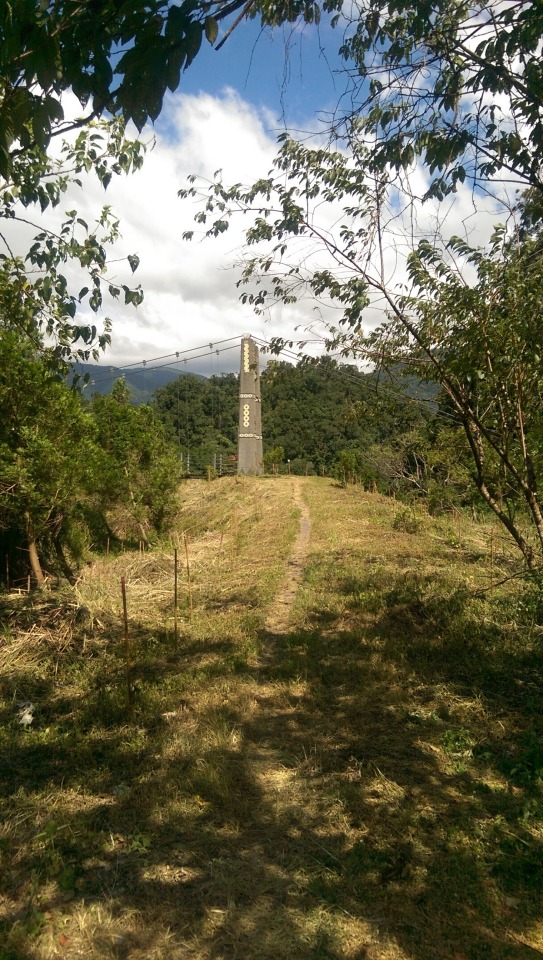


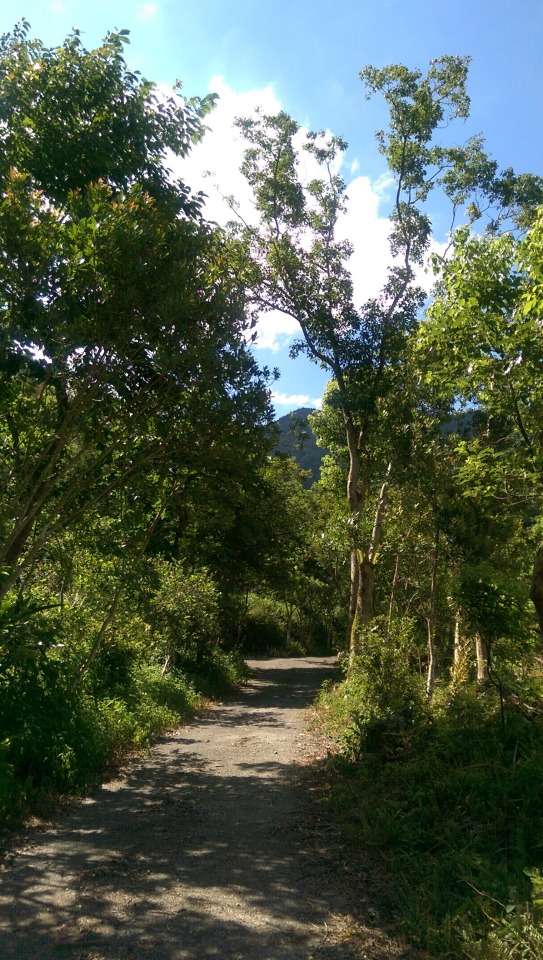
At this point, take the small path to the right ...


... and down to the river bed ...

The hot spring we found out was broken and all that remains is one small scalding murky pool next to a glistening, cool, fast moving, mountain river. Here’s EVA enjoys the hot spring ...
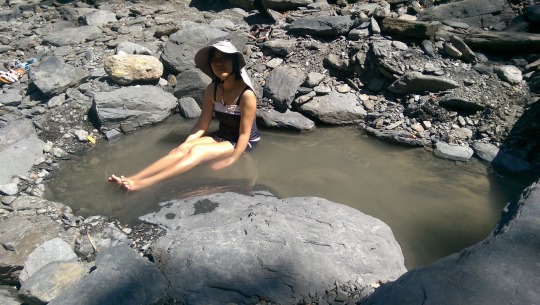
There weren’t too many people there and the river was perfect for cooling down ...


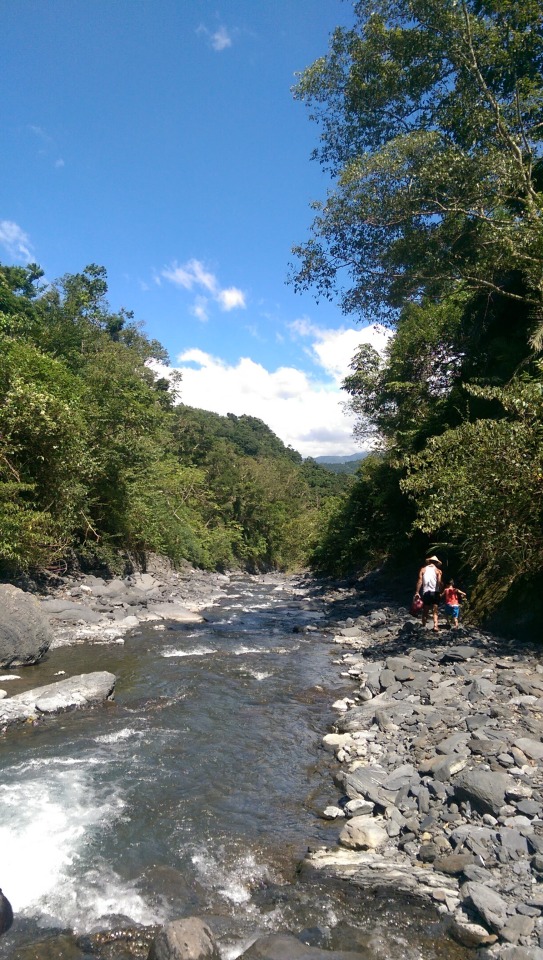

And then, after lunch of fried rice and greens cooked by an Atayal chef and former policeman at a roadside stop erected to sell watermelons, and infested with flies, we drove back to Luoding and were lucky enough to catch the cheap, fast local train that only took 1.5 hrs back to Nanggang. On the train home we were treated to amazing views like this below ...
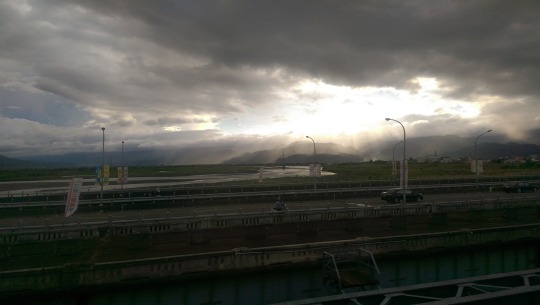
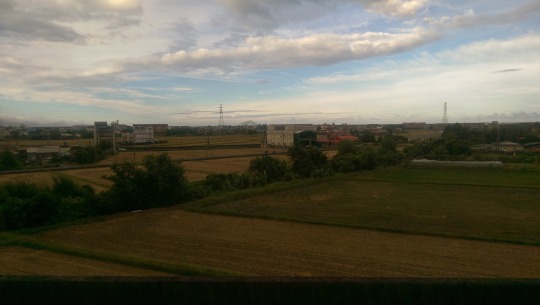
... but sadly also this twenty-something floor monstrosity ...
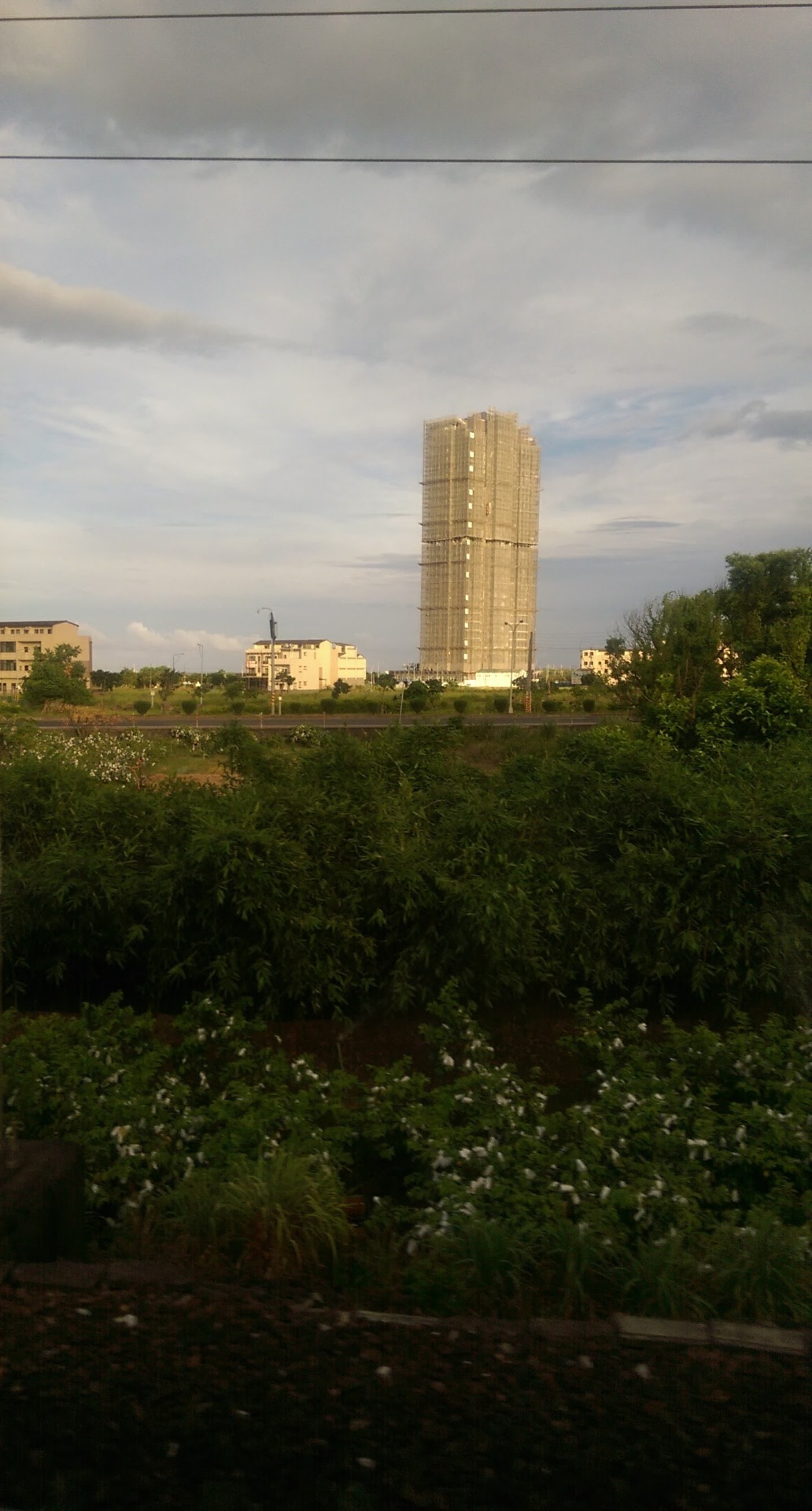
Whoever green lighted that, thereby blighting the Tucheng and the North Yilan coastline, should be made to spend the next twenty years cleaning chewing gum off the streets with a blunt spoon.
All in all a great holiday with plenty of other places left still to visit.
7 notes
·
View notes
Link
In any future war between Britain and China, the winner could be decided in a matter of hours — and Britain is unlikely to be the victor. For years now, Chinese businesses have been quietly positioned at the heart of British infrastructure. Were a conflict to erupt, their employees could, willingly or otherwise, be mobilised by Beijing. In fact, they would be legally compelled to.
What could this mean in practice? To put it simply, if he were so inclined, President Xi Jinping could, at the flick of a button, turn off the lights at 10 Downing Street — not to mention freeze Britain’s financial system and paralyse its hospitals.
Perhaps that’s why there has been such a concerted effort by British politicians in recent weeks to address their country’s dependence on trade with Beijing. These efforts are certainly well-intentioned, but as someone who has spent years charting China’s silent campaign of global interference and subversion, I fear they could be too late. In my recent book, Hidden Hand, my co-author Mareike Ohlberg and I detailed the threat the Chinese Communist Party poses to Western democracy. Here, for the first time, a small but disproportionately concerning new aspect of that can be revealed: how China is slowly taking over Britain’s nuclear power and electricity systems.
On the face of it, you could be forgiven for wondering why Chinese investment is so troubling. Why should we care that its businesses are investing in Britain, when those from other countries — including a number of unpleasant ones — do the same? The answer is straightforward. China is different because its businesses can be, and are, used as an extension of the ruling Chinese Communist Party. Referred to as a “party-corporate conglomerate”, there is a deep intermingling of China’s business elite with the “red aristocracy” — that is, the Communist Party families that rule the nation. Even President Xi, who pledged to crack down on corruption following the CCP’s 18th National Congress in 2012, has family members with secret offshore bank accounts and hundreds of millions in assets squirrelled away.
SUGGESTED READING
The West's utter failure to see China's end game
BY MIKE MARTIN
At its heart, however, the party-corporate conglomerate is built on the strength of China’s powerful state-owned enterprises. While we in the West once believed that, under the auspices of “globalisation”, drawing China into the global economy would see independent private enterprise prevail, under Xi the opposite has occurred. In 2016, for example, President Xi declared that the party’s leadership is the “root and soul” of state-owned companies and they should “become important forces to implement” the decisions of the party.
More worryingly, the following year China’s parliament passed a law that obliges all Chinese citizens overseas to provide assistance to the country’s intelligence services if requested: Article Seven stipulates that “any organisation or citizen shall support, assist, and cooperate with state intelligence work according to law.” And that applies to heads of Chinese corporations as much as to any other citizen. If China’s shadowy Ministry of State Security tells the boss of Huawei in Britain to do some spying, then he is obliged to obey. Anyone who dared to refuse could be escorted back to China quick-smart — never to be seen again.
Such occurrences are, however, rare. Chinese companies have Communist Party cells active inside them — the secretary of the cell is the most powerful person in the company. After all, he (and it normally is a he) represents the masters in Beijing and can over-rule the company’s board. However, conflict between a company board and party cell is hardly common. In 2016, President Xi decreed that the positions of party secretary and chairman of a Chinese company’s board should be occupied by the same person.
All of this applies to the state-owned China General Nuclear Power Group (CGN), which owns a third of the nuclear power station being built at Hinkley Point and hopes to be involved in the construction of two more nuclear plants, at Sizewell in Suffolk and Bradwell in Essex. The personnel of CGN is typical of any CCP-sponsored company. Until a few months ago, its chairman in Shenzhen was a man called He Yu, who doubled as the secretary of the company’s Communist Party cell. He was instrumental in securing CGN’s investment in the Hinkley power plant.
His replacement, Yang Changli, was appointed secretary of the party committee and chairman of the CGN’s board in July 2020. As business executives, their aim is to advance CGN’s commercial interests, but as senior cadres of the CCP their first loyalty must be to the party.
Nor are He and Yang the only ones at CGN with disturbing ties to the CCP. Outside of China, Zheng Dongshan, the man who runs its UK subsidiary, has also been a member of the parent company’s “CCP Leadership Group”. However, before he arrived in Britain in 2017, “Comrade Zheng” took the precaution of resigning from his party positions. Even so, it’s safe to say that he still toes the party line. If Beijing asks CGN UK to do something, then it must — even if it could spell disaster for the UK.
SUGGESTED READING
China isn't just buying Western businesses. Is it also trying to buy Western minds?
BY CHRIS DEERIN
Allegations of its connections to the CCP probably explain CGN UK’s recent attempt to create an acceptable face for the company to the British public. In 2019, it set up a UK advisory board featuring knights of the realm, including former Chairman of Crossrail Sir Terry Morgan and once top civil servant Sir Brian Bender. Like Huawei’s local board, which bristles with titles (Lord Brown, Dame Helen Alexander, Sir Andrew Cahn, Sir Michael Rake), they are, in effect, there to help the company’s public relations.
And CGN needs all the good PR it can get. In 2017 a CGN engineer was jailed in Tennessee after he was convicted of enlisting US experts to transfer to CGN sensitive American nuclear technology with military uses. It clearly rattled the White House, which blacklisted the company two years ago, accusing it of stealing American nuclear technology. Only recently, FBI director Christopher Wray said that the bureau has around 1,000 active investigations into technology theft carried out for the benefit of China.
Of course, there is nothing to suggest that CGN has any plans to steal commercial secrets relating to Britain’s nuclear energy system. But it is still worth noting the recent warning by a senior US official to the UK government not to engage with CGN because the company is part of Beijing’s efforts to use civilian nuclear technology for military purposes. It is part, he explained, of Xi Jinping’s program of “civil-military fusion” — that is, to break down barriers between civil and military institutions to allow personnel and technology to be shared.
Meanwhile, the role of Chinese companies in keeping Britain’s lights on goes well beyond CGN’s role in nuclear energy. In recent years, they have also invested heavily in solar and wind power, the future of Britain’s energy supply. CGN itself owns two wind farms in Britain.
Perhaps more importantly, Chinese state-owned company China Huaneng Group is currently building Europe’s largest battery storage facility in Wiltshire. As Britain shifts to renewable energy, battery storage will be essential to the stability of the whole system. So who constructs it is a question that should concern us all.
And yet, true to form, the chairman of China Huaneng Group, Shu Yinbiao, is also the company’s Communist Party secretary. To be fair to Shu, he certainly isn’t as involved as the company’s former boss Li Xiaopeng, the “princeling” son of the former prime minister Li Peng, known as the Butcher of Beijing after he sent in the tanks to crush students protesting in Tiananmen Square in 1989. Li Xiaopeng, who remains on the board of China Huaneng, is now a top Communist Party official in Beijing, a member of the Central Committee of the CCP and Xi Jinping’s Minister of Transport.
However, the security risk of China’s investment in the generation of Britain’s electricity pales in comparison to the threat it poses to Britain’s electricity distribution system, the transmission networks that get the electrons from the power plants to the power points in your home.
Here, Britain already had a serious problem. When the London Electricity Board was privatised in 1990, it was bought by an American company, which was later sold to EDF, the French company, which in 2010 was bought by Cheung Kong Group. This Hong Kong conglomerate is owned by the legendary billionaire Li Ka-shing.
SUGGESTED READING
China is playing the West for fools
BY ISABEL HILTON
The shrewd tycoon has kept Beijing at arm’s length. But he has also been willing to get into bed with the China International Trust Investment Corporation (CITIC), the huge state-owned conglomerate known for its links with China’s military and intelligence services. One Western intelligence expert wrote that CITIC was “swarming with secret agents”. True or not, by operating as CITIC’s “long-term ally” and sponsor, Li Ka-shing facilitated the CCP’s venture into global capitalism: CITIC now owns a vast property portfolio across Western capitals, including a high-end residential development in Mayfair.
Since then, Li Ka-shing has passed control of the CK Group to his son Victor Li, who has further embedded the CCP within the company. In 2018 he was appointed an executive member of the the Chinese People’s Political Consultative Conference, sometimes referred to as China’s upper house. A vital element of the CCP’s overseas influence operations, the Conference describes itself as “an organisation of the patriotic United Front of the Chinese people”.
But it is in Britain where Victor has reaped the most success. In addition to its monopoly on the supply of gas to the north of England and across Wales and southwest England, his CK Group also enjoys a monopoly on the supply of electricity to London through a company called UK Power Networks, the old London Electricity Board. It also controls electricity distribution in the south and south-east England.
Such a startling fact bears repeating: CK Group, with its close ties to the Chinese Communist Party, is responsible for supplying electricity to everything that makes London function — its road transport system, its rail network, its office buildings, ATMs and even the Bank of England. Imagine if CK Group were to be weaponised: all of these and more could suddenly grind to a halt. It’s a terrifying prospect, one that could have been plucked straight from a Hollywood playbook. All it would take is a phone call from Beijing, a flick of a button and much of Britain could descend into darkness.
0 notes
Link
Shi Dongshan (December 29, 1902 – February 23, 1955), born Shi Kuangshao, was one of the most prominent film directors and screenwriters in pre-Communist China, together with Chen Liting, Cai Chusheng, and Zheng Junli. His most notable film was Eight Thousand Li of Cloud and Moon, released in 1947. He served in the Communist government after 1949, but was later persecuted and committed suicide in 1955.
0 notes
Text
Giulia Sautini - Design Methodology | Art Jewelry Workshop
Art Jewelry Designer Giulia Santini

From Tuscany in central Italy, art jewelry designer Giulia Santini ( Zhu利亚桑蒂尼) was born in 1982, She has two bachelors in a foreign language and literature studies speaks seven languages, fluent in Chinese.
15 years of Industrial product design experience. In 2012, she decided to devote herself to the art and design field she loved. In 2013, she founded the independent wearable sculpture brand IKONA, which was founded to bring the jewelry design to the artistic height of wearable concept sculpture.

Giulia’s work reflects her own desire to share her personal life experiences. The concept of the work is full of self-recognition reflected in the unpredictable space and time, as well as the internal and external conflicts. She believes that the art of goldsmiths is extremely misunderstood under the suspicion of contemporary social utilitarianism.
In the process, the artist’s ground-breaking choices for wearing works, such as the analysis of his emotions and philosophies, are also greatly neglected – they ignore the religious status, cultural values and the importance of jewelry art in the long history.
In all ancient civilizations, the oldest forms of art, there is no doubt that jewels and decorations are made in precious, long-lasting ways, for specific rituals or passages of personal decoration, culturally regarded as important.
Personality and inner growth
Italian artist/ jewelry designer/ linguist/ engineer Giulia Santini takes you through the elements of the world (water | fire | earth | wind) to explore the face and inner state of the self.
Artist: Giulia Sautini (Italian jewelry designer)
Hosted by: Li Zhenxiang (Director of Art Education, ART23)
Date: 2011.07.15 Sunday 19:00
Location: No. 23, Qiming Sanma Road, East 2nd Gate, Qiming Community, Dongshankou, Yuexiu District, Guangzhou
Organizer: ART23 Contemporary Art Museum
Language: Chinese/English
Fee: 129/person
Workshop content
• One-on-one communication with Giulia Santini • Create your own creative jewelry design with Giulia Santini • Understand the connection between design and self
Participation notice
• Participants are carefully selected to jewelry materials (natural stones, etc.) that match their mental state and bring the event site. The artist will design the plan according to the actual situation of the participants. • Bring photos of different ages to participate in workshop activities • Prepare a short self-introduction and present the story behind the photo to the artist

Giulia designs solutions for workshop participants

Giulia interacts with the participants


sketches designed by former participants
Organizer

The ART23 Contemporary Art Museum is located in Dongshankou, the old city center of Guangzhou. It was founded in 2015 by an elite team with advanced academics and rich experience in overseas exhibitions. The ART23 Contemporary Art Gallery offers an international standard open art studio. , professional exhibition space and academic discussion and exchange platform. Organizing exhibitions for outstanding artists in the world and planning projects for overseas artists to promote contemporary art and promote international art exchanges.

Subway station Dongshankou F/E exit, Dongshan Department Store direction take the route to the Bank of China near Dongshan Department Store, turn left at Qiguang Hotel on the side of Home Inn and go straight to the second alley.
Opening hours Tuesday to Friday 14:00-18:30
Saturday to Sunday 11:00-19:00
Parking Jincheng Hotel
Venue No.23 Qiming 3rd Road, East 2 Gate, Qiming community
Giulia Sautini – Design Methodology | Art Jewelry Workshop was originally published on Shenzhen Blog
0 notes
Photo

Jingfu Temple is located in Beijing Xishan, rolling hills and rolling, is a distance from the nearest mountain in Beijing, deep trees, streams trickle, the ancient faint. Its name and West Road, driving the crane to the West to the color, since ancient times is the feng shui treasure, spring climbing spring is a good place.
var quads_screen_width = document.body.clientWidth; if ( quads_screen_width >= 1140 ) { /* desktop monitors */ document.write('<ins class="adsbygoogle" style="display:inline-block;width:300px;height:250px;" data-ad-client="pub-9117077712236756" data-ad-slot="1897774225" >'); (adsbygoogle = window.adsbygoogle || []).push({}); }if ( quads_screen_width >= 1024 && quads_screen_width < 1140 ) { /* tablet landscape */ document.write('<ins class="adsbygoogle" style="display:inline-block;width:300px;height:250px;" data-ad-client="pub-9117077712236756" data-ad-slot="1897774225" >'); (adsbygoogle = window.adsbygoogle || []).push({}); }if ( quads_screen_width >= 768 && quads_screen_width < 1024 ) { /* tablet portrait */ document.write('<ins class="adsbygoogle" style="display:inline-block;width:300px;height:250px;" data-ad-client="pub-9117077712236756" data-ad-slot="1897774225" >'); (adsbygoogle = window.adsbygoogle || []).push({}); }if ( quads_screen_width < 768 ) { /* phone */ document.write('<ins class="adsbygoogle" style="display:inline-block;width:300px;height:250px;" data-ad-client="pub-9117077712236756" data-ad-slot="1897774225" >'); (adsbygoogle = window.adsbygoogle || []).push({}); }
Jingfu Temple is located in the western suburbs of Beijing Xiaoxishan National Forest Park, located in the mountainside about 200 meters above sea level, by side by side three courtyards, Yuhuangge, Lvzu Temple, Guan Di Temple, according to local records: Sheng, the temple built a room nearly 100 rooms. From the mountain to pick up the next step, there are berths paved road side by side to take two carriage, so far people also said there for the ancient incense Road.
Now the temple only a mountain gate, no beam structure, Xieshan Ding, stone coupons, the amount of book Jingfu Temple word. The courtyard of the Ming Wanli years “after the temple on the shore in mind” cliff monument. The temple also has the beginning of the first day of the reign of the new year, “the new Jade Emperor Pavilion inscriptions” monument, the Qing Emperor Yongzheng “Jade Emperor sacred sacred sacred monument” monument, Daoguang three decades “to establish Lvzu inscription” monument, Base.
Jingfu Temple pleasant environment. It is built in the middle of the two mountains, but also built in the mountainside, in its front is no shelter of the Beijing city, standing in the gate looked, Beijing city panoramic view. Here Dongnuanxialiang, the four seasons are 2-3 degrees worse than the city, plus the vegetation here is very good, summer days into the temple will feel the slightest coolness, through the heart and spleen.
If it is in the spring of the morning, will see these mountains jumped on a mist above, like a mirage-like realm, and as heaven. Summer evening, will see the bright sunset with thousands of gold hidden in the mountains, the scene is very spectacular. Especially when the storm is approaching, the black clouds rolling in this mountain raging, thunder and lightning, between the glare of the lightning to tear a black hole and reveal the white sky of the moment, will feel their own small in nature , And this time Jingfu Temple where the mountain you will see it stand tall, despite the thunder and lightning, raging storms, such a landscape is rare.
Jinquan hole: the temple gate on the north side of a cave, deep 4.25 meters, 2.9 meters high, the bottom of a small Wang Quan spring and winter is not dry, the roof has a small hole in the cave can look for the temple, Every day many people come here to fetch water. Here the spring cool and sweet, cold biting, because the water here is good to attract people from all over the city in Beijing to come to fetch water.
Spring: adjacent to the north side of the monastery there is a spring, which is hidden in the green stone seam in a spring, fetching water to bow to get in. Qinshi stitch can only accommodate a person bowed in the inside, bluestone walls all the way through the water vapor, no matter how cold in winter, the stone within the spring will never freeze. In the top of the bluestone is a weight of tens of tons of large bluestone, the above book a huge “Buddha” word. From the appearance of this one actually with the spirit of the village of India, there are similarities.
Washing heart: and Jingfu Temple across the Dongshan beam, had built a wash heart Pavilion, now even the ruins have gone.
Stone carvings: Jingfu Temple next to a lot of cliff stone, such as: “wait and see”, “Buddha”, “Quan sound”, Guanyin Bodhisattva, painting and calligraphy dignified atmosphere, full of beauty, cited tourists hang around, take pictures.
Jingfu Temple has a long history and cultural accumulation, from the first day of the reincarnation to Guangxu twenty-nine years, has been built, so it is called a history of the vicissitudes of the temple. The monastery around the historical sites are more, the Ming Dynasty famous Jingtai Di (Zhu Qi Yu) of the tomb, there are Ming Wanli emperor’s seven concubine cemetery, that is, Dong four tomb. To the Qing Dynasty, the small Western Hills area around the “Western Hills eight homes” and “three mountains and five parks,” said, and for the eight flag soldiers of the resident, has survived the yellow flag, is the blue flag and other villages and towers and other relics. At the same time, the small Xishan area monuments are widely distributed, constitute a unique cultural landscape. In addition to Xiangshan, lying Buddha Temple, eight places, there are Fu Hui Temple, Fahai Temple, to possession of the temple, invited on the hole, Jingfu Temple, no Liang Dian and other historical sites, in addition, Mei Lanfang, Ma Lianliang, Liu Banong, Liu Tianhua, Tong Lin Court and other celebrities cemetery and the Montenegro fought monument. Jingfu Temple and the above landscape shine, for the cultural history of Xiangshan added a strong sum.
Xiangshan Jingfu Temple with its rich Buddhist connotation, incense heyday, to promote harmony. After the restoration of Jingfu Temple, not only the reconstruction of a Buddhist temple, but also to restore a concentration of tourism and cultural connotations of the attractions. After the restoration of the Jingfu Temple, as Zen culture jungle, Mingxin see sex, wide variety of Bodhi, Dharma Li Sheng, compassion, will pray for the Haidian, pray for Beijing, pray for the Chinese.
Xiangshan Jingfu Temple, the ancient temple with a long history of culture was originally published on View Get
0 notes
Text

Unshakable Faith (2023)
Episode 12 Breakdown

Ji Danyang offers to help tidy Officer Hongmei's room in exchange for borrowing her bracelet again. The experts crush another bead for testing and request more, so he asks Nurse Bai where they came from and she advises that Dr Bai found the stones in Dongshan mountain when collecting herbs.
Police Captain Chen asks Ji Danyang for his opinion on how the meeting room is being listened in on, but he makes a hasty escape when Officer Hongmei arrives and asks for the bracelet back.

Truck driver Lai Guangrun visits Security Captain Li in secret to pay him for his assistance in killing Zhang A Shui and asks him to get more info on the new water tank the experts are building. Security Captain Li refuses to help even at gunpoint, but wavers when his sweetheart is threatened. Security Captain Li returns to his job onboarding the new factory staff and calms an argument between a Master Welder and Secretary Lu.
Ji Danyang arranges for Nurse Bai to lead him and Officer Hongmei on a field trip up Dongshan mountain to search for rutile, and while the women cope easily with the exercise, Ji Danyang struggles with the climb. They celebrate when they reach the top and set about testing the stones they find against a magnet to find those with the most titanium.


Officer Ding spots Dr Bai in the neighbourhood while he stakes out the accomplices house to see who will collect the notes from the well, but is pulled away to help when a nearby house catches fire. Dr Bai collects the box from the well and picks the lock to read what's inside and Officer Ding is scolded for falling for an obvious diversion.

Officer Hongmei helps Officer Ding follow Dr Bai and spots a man whom she recognises from her train trip to Lumen with Ji Danyang. They later learn that he regularly commutes to and from Lumen, transporting produce.
The police team tighten security around the next experts meeting, turning away a baffled Secretary Lu. During the meeting, Ji Danyang and the team notice a weird sound coming from the speakerbox on the meeting room wall. Ji Danyang and expert He Xiwan give highly technical, but ultimately insubstantial, speeches to stall for time while the police team follow the wires from the empty broadcast station to a factory house block. They search the building room by room, wherein somewhere the truck driver Lai Guangrun is listening on a radio and taking notes.

...........................................
"What a lesbian dorm should look like" I presume the subtitles mean what a womans dorm should look like. Also that's the second time our math man has insisted on going into Hongmei's room, even insisted on tidying her room! (I kinda love that she's a slob) but then he needs her help shifting the wardrobe lol.

I love that our math man is only good at maths, and can't drive, fix a car, move large furniture or climb a mountain (but Hongmei can).

"After all, you're a gay man." had me spitting out my drink. I've got a lot of gripes with these AI subtitles, but the unintended queerness is making up for it.
It's a good move by the experts to keep the meeting running, as long at the eavesdropper has something to listen to then he's in one place as they look for him.
I'm on the edge of my seat for the last section where they search house by house!
3 notes
·
View notes
Text

Unshakable Faith (2023)
Episode 10 Breakdown

Ji Danyang is placed in detention while the police team interview everyone at the hospital, but is soon released and advised not to leave the factory for a while. Interviews with the electrician Liu Simao, truck driver Lai Guangrun and Nurse Shanshan determine they have decent alibis. Nurse Bai is taken off the Specialist Medical Unit while her story is verified and Security Captain Li and Secretary Lu are investigated further.
A cigarette of the same style found in Dongshan hills is found outside the hospital along with a sharpened oil painting palette knife that is confirmed to be the murder weapon.

Nurse Bai is upset and she and Dr Bai have heated words about what Zhang A Shui told her. In secret Dr Bai burns the letter he received, unread.

Electrician Liu Simao is transfered off the factory maintenance team and argues with Secretary Lu about the loss of his reputation.

Nurse Leader Ge consoles Nurse Bai about the demotion and they discuss how better to turn down Secretary Lu. Nurse Leader Ge suggests Ji Danyang is a much better match for Nurse Bai and recommends not waiting and losing your opportunity for romance like she did, and she conspires to buy movie tickets to set the pair up on a date.

Ji Danyang is inspecting the cut-out notes he received and wants to check something out at the library but Officer Hongmei stops him from going out. He asks Nurse Bai to go to the library for him and look for magazines that have words cut out of them.

Officer Hongmei and Police Captain Chen interrogate a KMT prisoner who gives them futher clues about Snow Wolf and Lizard - one is a former teacher, and although he recognises the photo of Dr Bai he can't confirm that Dr Bai was with the KMT.
....................................................
Everyone is on edge after the murder and suspicion and accusation is everywhere. Ji Danyang and Officer Hongmei's friendship has gotten positively frosty with the recent investigation, and he's far more angry about Nurse Bai being demoted than he is about being confined to the factory again.
I feel sorry for the electrician Liu Simao, but that threat towards Secretary Lu is going to come back to bite one or both of them.

Nurse Ge is a wonderful mentor, and the AI subtitles' tendency for pronoun mix-up gives us the delightful image that her lost love was a woman. It's cute that she decided to set Nurse Bai and our math man up on a date.
"Expert in seduction" again! Wtf is up with these subtitles?

But... look at that face...

*sigh*
3 notes
·
View notes
Text

Unshakable Faith (2023)
Episode 6 Breakdown
The experts start work on their submarine project, code name Water Drop.
Officer Hongmei checks in on Ji Danyang who is still shaken from witnessing the death of the accomplice, returning his blood splattered jacket that she had washed. With the team of experts now onsite, Officer Hongmei no longer needs to shadow Ji Danyang 1-on-1, and their friendship becomes strained from miscommunication.

Officer Hongmei has major concerns about Security Captain Li letting the truck the spies came in on through without proper clearance, but Police Captain Chen guides her to keep their shared suspicions quiet until they have further evidence.

The full police team is hunting for signs of Zhang A Shui, checking all hospitals and local doctors that might have treated him, including Dr Bai. Officer Hongmei finds blood at Dr Bai's house that doesn't match his injury, raising more questions about his involvement and allegiance. Zhang A Shui remains in hiding, secretly extorting Security Captain Li for assistance to leave town.

Nurse Leader Ge and Ji Danyang recommend Nurse Bai to the Project Chief for his needed acupressure massage, resulting in her being appointed to the Specialist Medical Unit.

The experts team search the Dongshan hills for a titanium ore that is vital to their submarine plans, and the KMT follow them, looking for an opening to strike.

.....................................
When the 1 on 1 shadowing is called off, Hongmei thinks our math man must be glad to be rid of her and he is sad by that, but can't fight that it was his desire not to be tailed. However well they work together professionally, they need to work on their interpersonal skills.

Officer Hongmei is improving on her subterfuge skills, under the unflappable Police Captain Chen. No matter what barbs she tries to throw his way he just laughs.

There is so much going on with Dr Bai that Ding Yongdai is playing so well.
Our wonky AI generated subtitles have translated our math man's title in a variety of ways thus far - Expert in Accounting, Expert in Fraud, Expert in Planning, Expert in Conspiracy and Expert in Stratagems - but this episode gives us the baffling "Expert in Seduction" said in absolutely no context that would account for it.

I think you said the quiet part out loud, Nurse Bai, but who can really blame you.

3 notes
·
View notes
Text
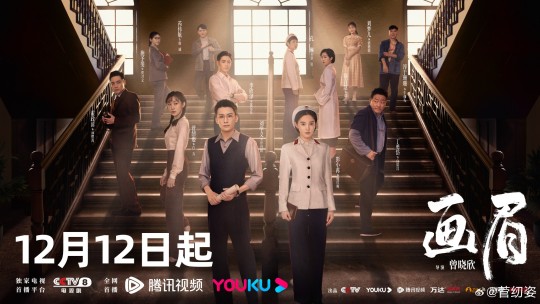
Unshakable Faith (2023)
Episode 31 Breakdown

In the factory courtyard Nurse Bai is chatting with He Xiwan when Assistant Rui runs through, chased by police. He grabs He Xiwan and holds her hostage and when he slashes Nurse Bai's arm with his knife, Officer Hongmei shoots him. Ji Danyang and He Xiwan check on Nurse Bai while her wound is being treated and in the police office, Officer Hongmei is annoyed that they couldn't capture Assistant Rui alive.

The police team want to see what reaction Assistant Rui's death causes in their other suspects so Officer Hongmei stakes out the library, watching the fake Li Qiuchen. Officer Hongmei follow him through town, but is interrupted by Nurse Bai who has been watching her. The fake Li Qiuchen evades her and meets with seamstress Miao who advises him of Assistant Rui's death.

Dr Bai's patient tells him he's found the cellar they've been looking for. At home, Dr Bai starts preparing the medicine Snow Wolf wants to use, and puts the key Xu Wenzheng gave him into an envelope.
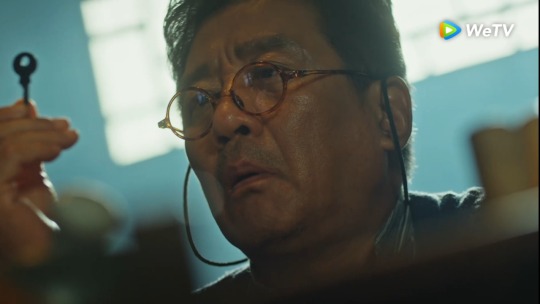
The police team discuss who Assistant Rui had regular contact with, including Nurse Bai treating his nosebleeds. When Nurse Bai is giving Expert Chief Chu a massage, Police Captain Chen calls him asking him to leave his office for a few minutes. Officer Hongmei and Officer Ding watch Nurse Bai from a neighbouring window, but she only cleans while she waits for Expert Chief Chu to return. The police team are split among themselves regarding their suspicions of Nurse Bai, but Officer Hongmei can't deny her frequent involvement in their investigations.

Officer Hongmei receives the unexpected invitation from the fake Li Qiuchen to climb Dongshan with him, accepting for the chance to investigate him further. As they climb they both question the other and both evade giving any full answers. Afterwards, the fake Li Qiuchen is awarded at a public ceremony as Officer Hongmei watches on, declaring it his father's wish to donate the copper mine to the city.
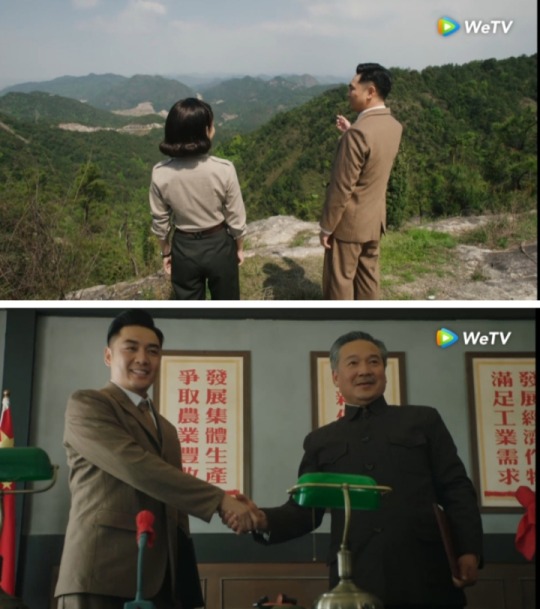
The expert team gives Factory Chief Han and the Police Chief a tour of the survival chamber test lab inside the air raid shelter, and expert Lei Peizhang is bitten by a poisonous spider while they're visiting. After curing the spider bite, Nurse Leader Ge advises Expert Chief Chu that they should have the lab disinfected and have medical staff onsite to do it, which he approves and Nurse Leader Ge, Nurse Bai and Nurse Shanshan visit the lab to disinfect it.
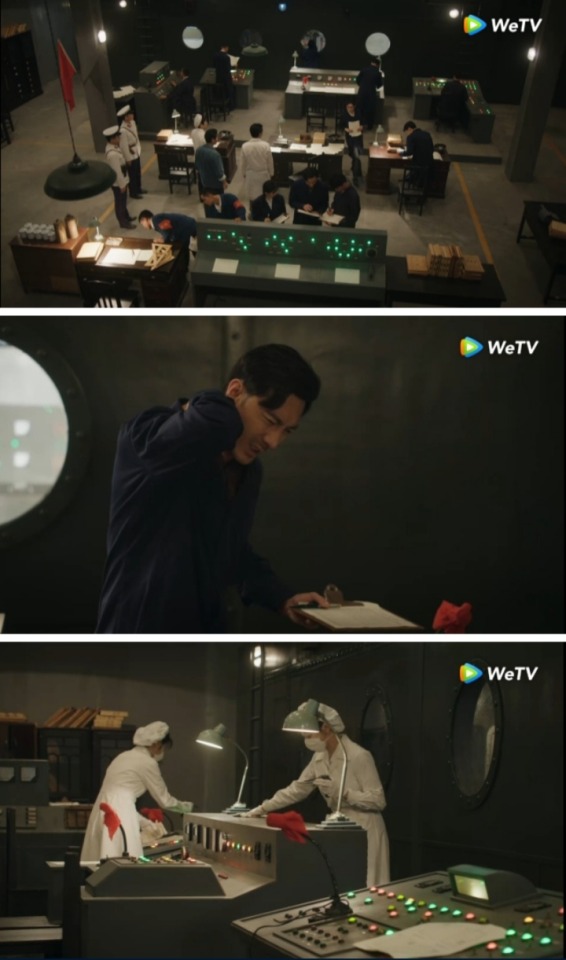
Seamstress Miao and fake Li Qiuchen review the information from Nurse Bai about the air raid shelter's location, and the seamstress advises that there was an unfinished second air raid shelter on a neighbouring face of the mountain that she could try to find.
Officer Hongmei receives the key and an anonymous letter, guiding the police team to search the nearby destroyed Shiqiao Village.

............................................
Another spy bites the dust!
I do feel bad for the likes of Assistant Rui, he was kicked out by his sister's husband as a kid and was begging on the streets when he was recruited to the Nanshen class, similarly Nurse Bai had been kidnapped and it was the KMT that found her before Dr Bai could. They were indebted to those who saved them, unfortunately their saviours chose to train them to be weapons.
Too many coincidences are now working against Nurse Bai, right when things are ramping up for her. Some of the police team are like "Nurse Bai can't be a suspect, she got injured!", completely forgetting that Security Captain Li jumped between Hongmei and a grenade and was still a spy. Dont fall for the pretty face!! Also don't let our math man know you're suspecting Nurse Bai or you'll never hear the end of it.
Do I want her to survive this? I want Dr Bai to survive this, but I suspect he won't. The narrative theme is following a fairly traditional idea that the "bad guys" don't get to get away with it, this show will end with all the spies we've seen being caught (maybe with the exception of Commander Kou but he's stuck in Taiwan so he'll lose all of his agents or be demoted instead). Like Lai Guangrun said to Dr Bai, you can't escape your past, so unless it unveils that he has been undercover for the CCP since before the liberation, no matter how many good deeds he does now (like giving the key and location of Snow Wolf's cellar to Hongmei, where I'm suspecting her father is buried), he was aligned with the KMT who are this story's bad guys, so he can't get out of this unscathed. The best we can hope for him is to be arrested, but seeing as Nurse Bai is also on the losing side and thus also needs to pay for her actions, I'd expect some sort of self sacrifice to protect her that causes his death.
As for Nurse Bai, she's our second female lead so because of that position I'd expect her to live, and have a moment of partial redemption at the end - like she's learned that the KMT lied to her about the CCP killing her parents (which has been her motivating reason to be involved) and she turns on them at the last minute.

2 notes
·
View notes
Text

Unshakable Faith (2023)
Episode 16 Breakdown
Lai Guangrun confronts Dr Bai about saving Ji Danyang, but Dr Bai tells him he did so to remove suspicion, and now that he's now gained the trust of the experts it's time to arrange the meeting with Snow Wolf he asked for, but the truck driver is non committal.

A now drunk Officer Hongmei compliments the still sober Nurse Bai and thanks her for her friendship, but soon turns somber and asks if her father was really on Dongshan or not because she needs to find witnesses. Nurse Bai denies it again but learns that the civilians will be asked as well and relays this to her father when she gets home.
Security Captain Li is told that sabotaging the pool construction is his last mission and then he can go find his sweetheart, but he's skeptical and tells Lai Guangrun for money and passports to be arranged first.
The police team learn from the wood cutter that Dr Bai was on Dongshan, and at the same time Dr Bai comes to the office to confess. Ji Danyang is busy doing calculations from his hospital bed despite Officer Hongmei and Nurse Bai bullying him into resting when Officer Hongmei is told that Dr Bai is being questioned. Dr Bai admits being on a different part of Dongshan on that day, and didn't speak up because he didn't want to cause trouble for Nurse Bai's position at the hospital, but they've both regretted this. When asked about the herbs Officer Hongmei saw at his house, he advises that he bought them from a local woman.

After he leaves, Police Captain Chen and Officer Hongmei review Dr Bai's habit of showing up to tell his story only once they had heard from the wood cutter, much like how he only told them about Zhang A Shui visiting him after they had found the blood at his house.
The Police Chief receives a painting from Zhou Jun for the fake art competition, and Police Captain Chen identifies the scene as the factory house block that his radio set up was in, stating that they are being taunted.

Expert He Xiwan is abducted when her car got a flat tyre when she was on the way to meet someone at the railway station. Lai Guangrun blindfolds He Xiwan and ties her up in a barn, taking a photograph. The electrician Liu Simao hooks up a phone cable in an alleyway and Lai Guangrun calls directly to Police Captain Chen and gives him instructions on how to find her. They search the area and find a note hidden in a hut with the photo and a message to cancel the pool construction and hand over Ji Danyang's notebook if they want to see her alive.

The police team have to rely on the clues from the photo - grain barn & lion clock -, all the while suspecting a mole in the factory.

........................................
Dr Bai isn't quite in the clear from the police team's suspicion, but he's anticipated that and has sown enough good will to keep him afloat for now.
Our math man can never win an argument against Hongmei but he will continue to try.


Another AI Subtitle Fail: " in 2005" what year do these subtitles think we're in???
I know I said that Lai Guangrun was a terrible painter but actually his paintings are pretty good, but that one of the cliff?!?!?!? I swore out loud at the screen when I saw that. Fucker loves to taunt.

The fucking electrician is a spy too?? I feel betrayed! I felt sorry for him!

More terrible AI Subtitles, but I got the gist of it and I hate that the truck driver made me laugh with that.
2 notes
·
View notes
Audio
《专属爱称》(Exclusive Love) | 木及少年 - Muji Shaonian
Stream here: Kugou Music | QQ Music | Kuwo Music Lyrics here.
#muji shaonian#zhang dayuan#wang yilong#su er#lin yadong#li mingxuan#li dongshan#yang boyi#audio#exclusive love
8 notes
·
View notes
Video
youtube
[ENG SUB] 木及少年 Muji Shaonian | 《专属爱称》Exclusive Love MV
#muji shaonian#zhang dayuan#wang yilong#su er#li dongshan#li mingxuan#lin yadong#yang boyi#vivi translates#exclusive love
6 notes
·
View notes
Photo

Muji Shaonian’s new song 《专属爱称》(Exclusive LOVE) is now online!
#muji shaonian#zhang dayuan#wang yilong#li dongshan#su er#li mingxuan#lin yadong#yang boyi#exclusive love#dayuan
5 notes
·
View notes